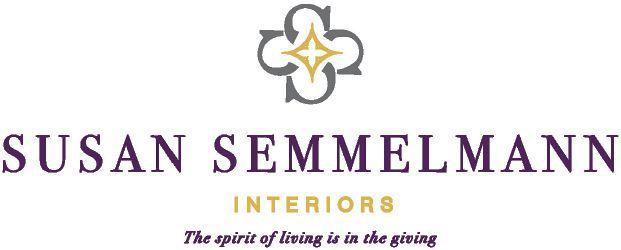
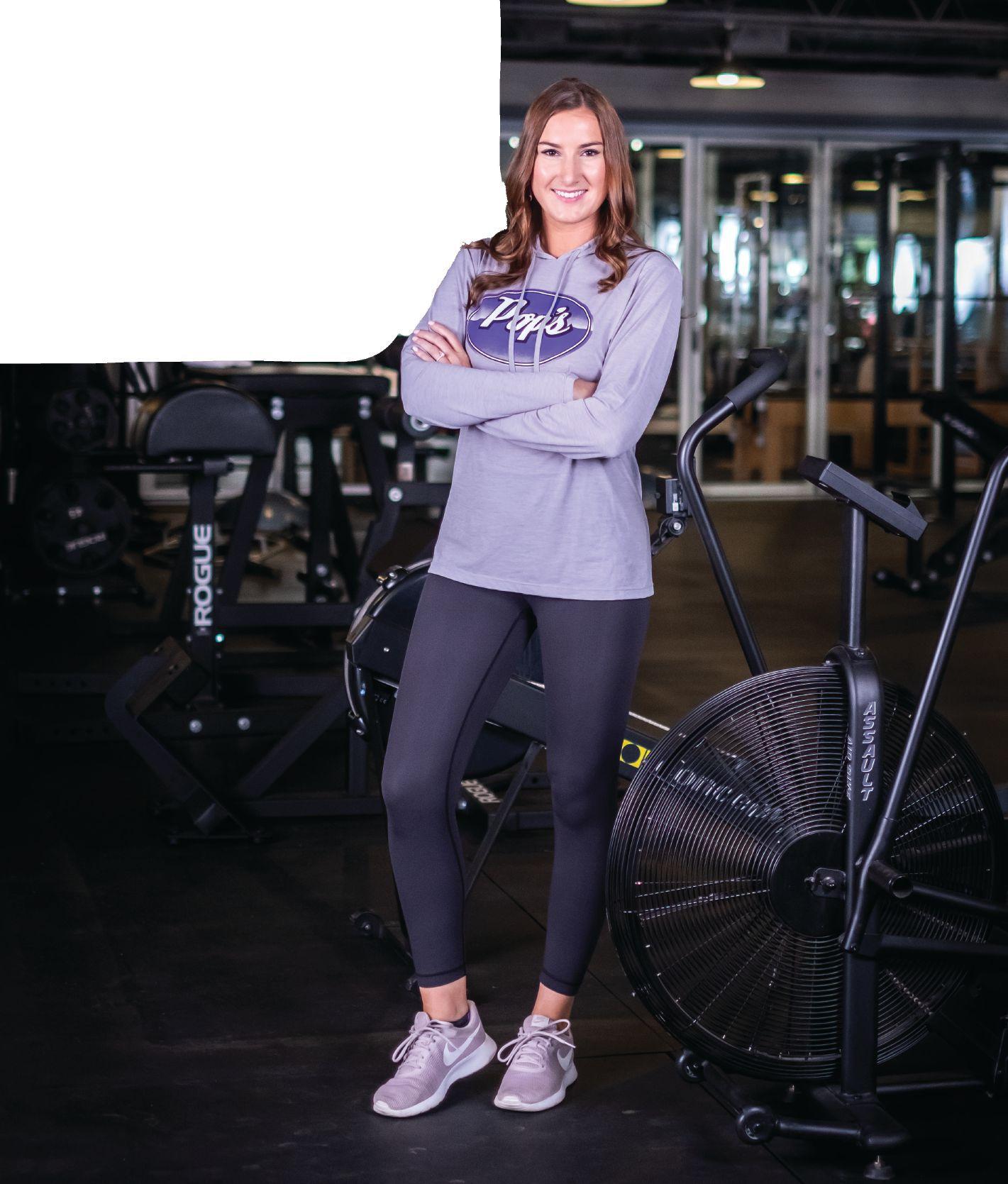







Whitley Penn is a proud supporter of the community. We are dedicated to volunteering and inspiring others to support organizations in our local markets.
We strive to help our employees be the best that they can be and achieve all that they desire. Our commitment to our employees and our values are what make us one of the Best Places to Work.
whitleypenn.com
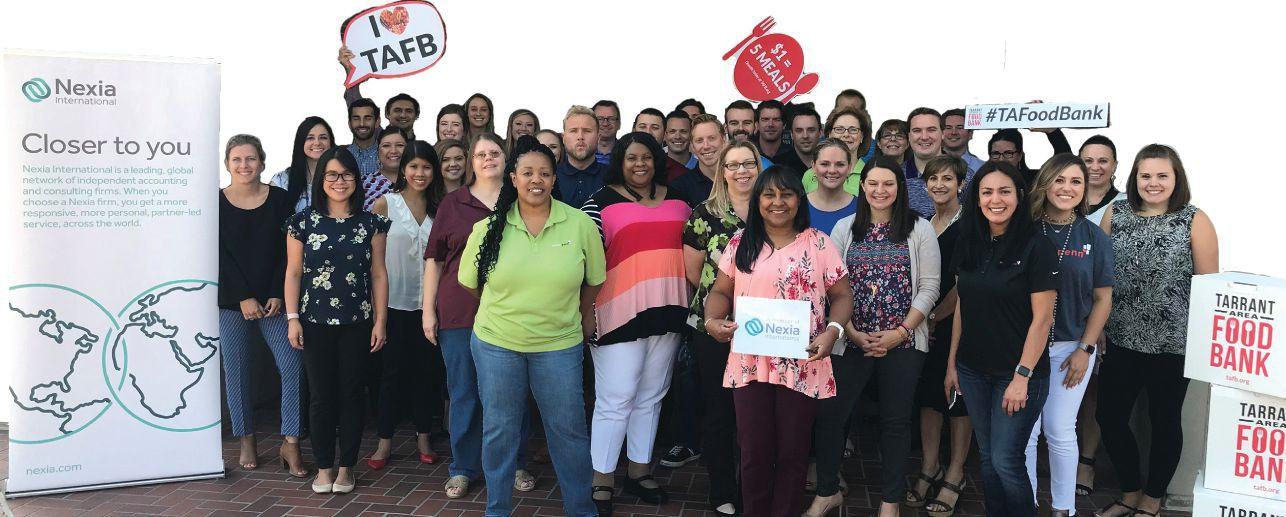
November / December 2019

Sure, perks like Topgolf outings, onsite gyms and stellar health benefits are nice. But there’s more that drives our 2019 roster of Best Companies to Work For in Fort Worth, grounded by the core values each business strives to represent in the way it treats its workers.

6 Publisher’s Note
Bizz Buzz

9 Bizz Buzz: Three real estate agencies merge to become Fort Worth’s largest locally owned brokerage in transactions.
11 Around Cowtown: Fort Worth Inc.’s Dream Office, State of the County
12 Face Time: Building an educated workforce starts in preschool, according to Mayor Betsy Price.
14 Stay Informed: It only takes a spark to start a one-stop digital resource for entrepreneurs and small business owners.
Executive Life & Style
20 Tech: A visit to the Camp Bowie studio in the business of making mini-mes.
22 Distinctive Style: After a five-year break from the fashion industry, Sheridan French is back with her sights set on 2020.
24 Wine and Dine: South Main yields sweet success for one old-school ice cream joint.
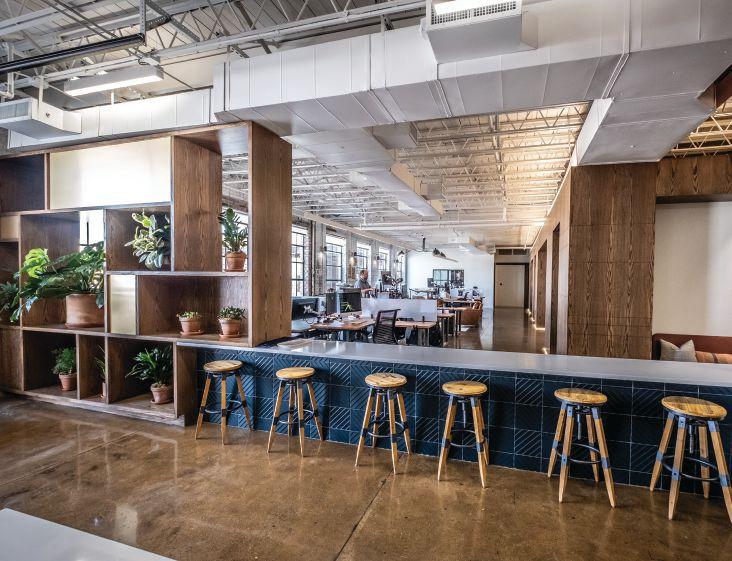

28 Off the Clock: From sculpting to knifemaking, some of Fort Worth’s biggest names in business are finding their inner artist.
30 Health and Fitness: Like sunlight, the light from your computer screen may be harming your skin.
32 Office Space: Red Productions’ new South Main office is, naturally, rife with stories.
Columns/Departments
84 Running Toward the Roar: A 2014 plunge in oil prices couldn't send Frank Starr's company down the drain.
86 EO Spotlight: Meet the woman who speaks five languages — and runs a company translating 150.
88 Analyze This/Wealth: Prepping your company for sale to an ESOP.
90 Analyze This/Real Estate: Leah Dunn’s secrets to success aren’t just for Realtors.
92 Analyze This/FW Chamber Report: The Fort Worth Chamber has big plans for Fort Worth’s smallest businesses.
94 Business Leadership/Successful Entrepreneurship: How to build up your company without running it into the ground.
96 Day in the Life: Being a “Best Company” starts with B. Literally. Just ask Stuart Balcom.
Special Advertising Section 65 Business Betterment
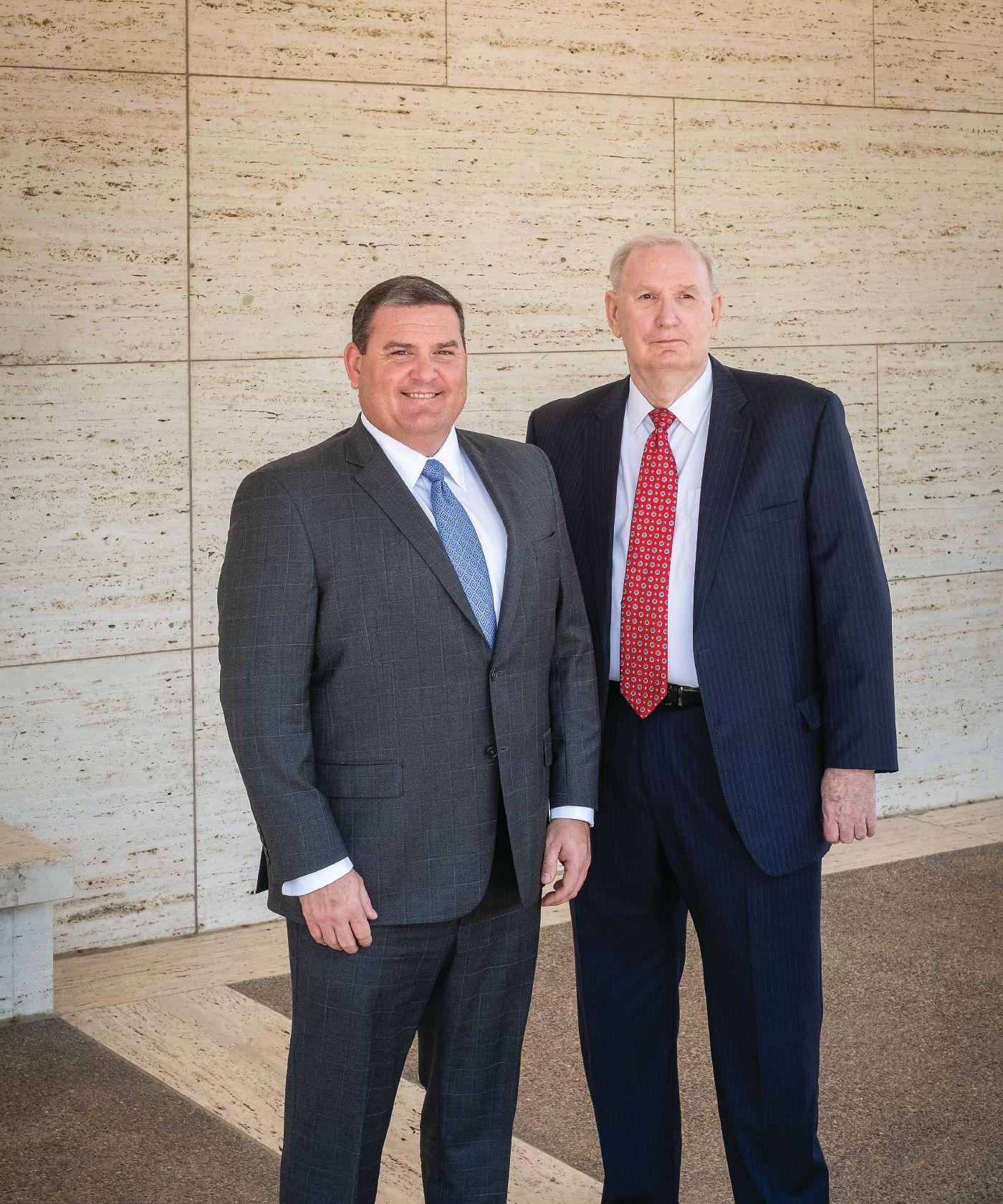
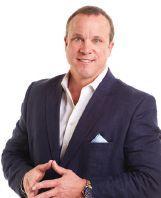
An estimated 7% of all adults have ADHD, which means I am not alone. I have all the symptoms, including being easily distracted and having a tendency to “misplace” things on a regular basis.
Last Saturday evening after going to an event, I misplaced my wallet somewhere in my home (not the first time). I know it’s in the house because I remember tipping the driver after I got out of the car. (As a side note, the driver called me a little later informing me that he had my glasses that I had left in the back seat. He dropped them off at my house a few days later.)
Back to the wallet. Since I’m sure it’s in the house, I have not canceled my credit cards I just put a freeze on them. Earlier this week, I borrowed my CFO’s company card to make a company purchase. He came into my office yesterday needing it back to order some office supplies. Hmmm I think it’s in my vest pocket at the house. Instead of driving home to check, we just put a hold on it and had AMEX overnight us a new card. I’m sure it will show up.
I do take some solace in knowing that some of the most successful people of all time were diagnosed with ADHD like Richard Branson, John F. Kennedy, Walt Disney and Albert Einstein.
For people with ADHD, information overload is a problem. When I started my career in the late 1980s, the Motorola “brick” cell phone was introduced, and it was just a phone. In the late 1990s, email became readily available (think Tom Hanks and Meg Ryan
in the movie “You’ve Got Mail”). In the early 2000s, the Blackberry PDA was introduced. It changed everything by combining cell phones with computers, such that we were able to communicate with anyone via multiple means, almost anywhere.
As an ADHD entrepreneur, I have a tendency to get distracted by shiny things. All of the tools that are designed to make us more efficient, in many cases, have made us less efficient. They say knowledge is power. And, while the value of information in the knowledge economy is indisputable, it also has the capacity to overwhelm.
The flood of information that swamps most of us daily can sometimes produce more pain than gain. Each day, the average office worker receives 121 emails. And it’s not just the incoming tidal wave of emails that causes us grief. It’s also the vast ocean of other technology that we use that can drown us in communication. Between the audible notifications for my upcoming calendar appointments, a call and text from my wife, five Slack messages from co-workers, and two social media pop-up alerts for our magazine’s posts, it’s not surprising that I get distracted by the alerts that flit across my computer screen.
I’ve decided it’s time to take action. As soon as I finish this pub note, I’m going to subdue this multiheaded monster of information overload and create a formal policy to establish clear digital communication protocols. Oh I just saw a Bleacher Report pop-up on Saturday’s TCU vs. Oklahoma State game. Hmmm what was I going to do right after this?

Hal A. Brown owner/publisher


We work in the moment. Cabana Lounge responds to the changing office landscape with thoughtfully integrated worksurfaces, embedded power options, visual privacy, and application flexibility that support the temporary moments of your day—just steps from your workspace.




At Gus Bates Insurance, our clients rely on us to help guide them through the complex world of insurance and investments. But before that, we always begin with a hello and a handshake. There are no cookie-cutter clients, so we offer no cookie-cutter solutions. We combine our experience and creativity with close, personal relationships to maximize your options. So call us today, and get on a first-name basis with your insurance provider.
817.335.9547 • GusBates.com
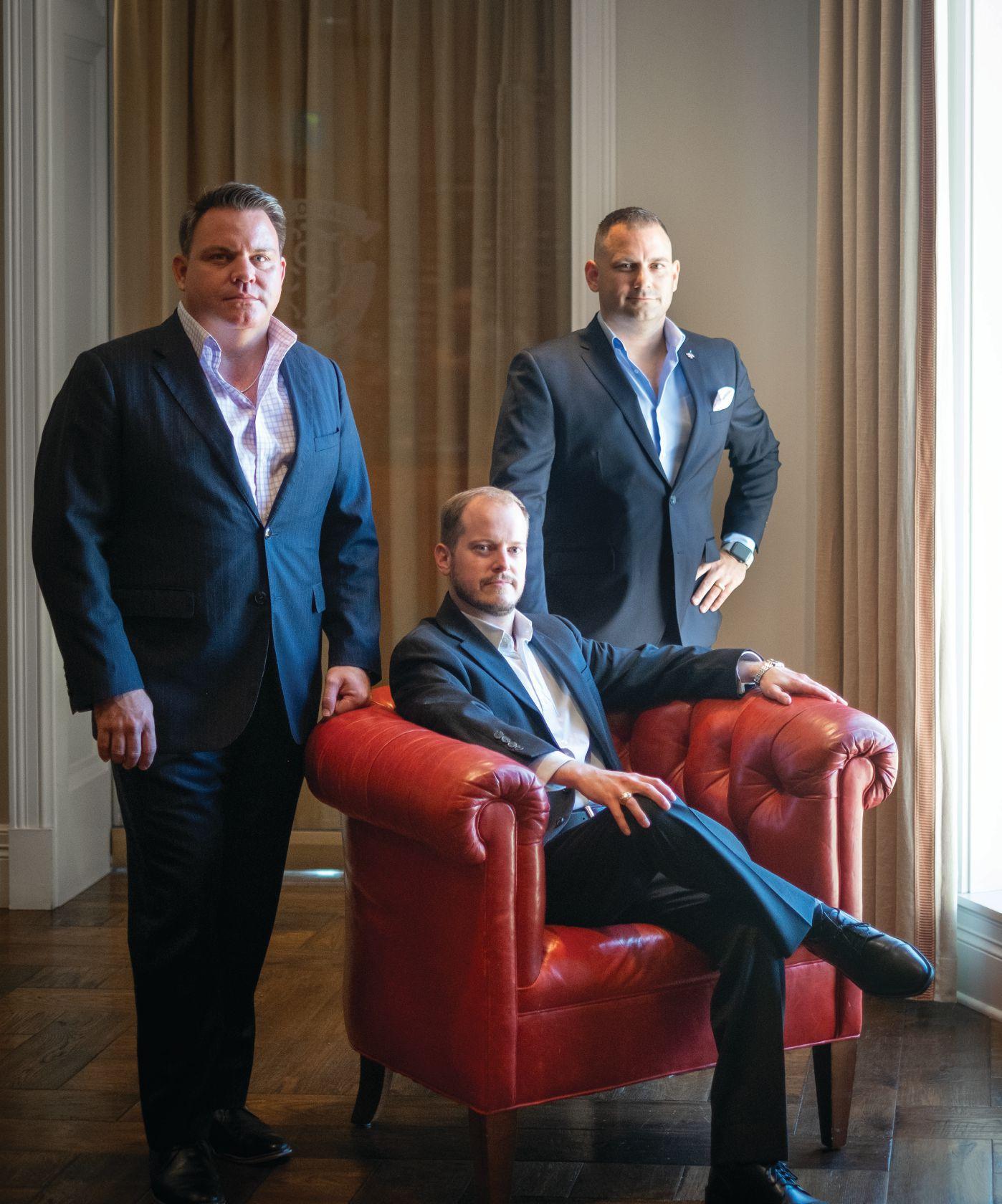
The RJ Williams and Northern Realty real estate agencies merge with the Fort Worth agent Michael Crain, and they pick a historic venue to launch the new Williams Northern Crain. BY
SCOTT NISHIMURA
What a launch party. In midOctober, the RJ Williams & Co. and Northern Realty Group real estate agencies and the agent Michael Crain feted their new merger in a party at the Fort Worth Recreation Building. The big circa 1927, red brick building at 215 W. Vickery Blvd., across from T&P Station, once housed Fort Worth’s recreation department and has been out of use for years. Owner Tom Reynolds — Northern’s landlord on West Magnolia Avenue — opened the building just for the party.
The venue befitted aspirations for RJ Williams, Northern and Crain. The three announced Oct. 1 they were merging and would be Fort Worth’s largest locally owned brokerage in transactions, with primary specialties in residential, commercial, property management.
The combined agency, called Williams Northern Crain, brings Williams’ 53 agents and Northern’s 19 under one roof. The agency also has expertise in urban mixed-use and the workings of Fort Worth City Hall. Northern Realty founder
Will Northern is chairman of the Fort Worth Zoning Commission. Crain, who recently left the Briggs Freeman Sotheby’s International Realty agency, is District 3 director to the Fort Worth City Councilman Brian Byrd and a former official in the President George W. Bush administration and Republican National Committee.
RJ Williams’ CEO Ty Williams will lead the residential division; Northern, commercial; and Crain, property management, the three said in an interview. Crain will also assist the residential side, primarily with
luxury, his niche at Briggs Freeman. The three will have equal ownership, they said.
“There’s no buyout of one or the other,” Northern said. “It was a mutual agreement that, together, we’re stronger.”
While the principals will lead specialties, “the three of us collectively are knowledgeable and available to help agents in each practice,” Northern said. “We'll have a broker hotline number, a separate dedicated line that our agents will be able to call whenever they need help, and it will be ringing all of us at one time. In addition, new agents will be assigned a mentor when they get started, so that there's a structure to help lift people up and get them educated.”
Williams Northern Crain will be temporarily based in RJ Williams’ current quarters at 650 May St. on the Near Southside, and Northern will leave his offices on West Magnolia. “We’ll be combining and then looking for a building to house us all,” Crain said.
Williams Northern Crain will continue its relationship with Trinity Habitat for Humanity, as broker of homes made for sale into the open market. Williams’ wife, Carmen, an RJ Williams agent, grew up in a Habitat-built home.
The merger resulted from the development and sharing of costs on a lead generation platform between Williams and Northern, in which the two agencies referred leads to each other.
Williams’ brokerage, 90% residential, was growing. Northern had residential, commercial and property management divisions, was “getting stretched thin” and wanted to focus on commercial, more than 50 percent of the business today.
“We were both looking for a true operations manager, and around the same time, we were both in talks separately with Michael to try and bring him on our respective organizations,” Northern said.
There’s no buyout of one or the other. It was a mutual agreement that, together, we’re stronger. – Will Northern
Williams bought his first home at age 18, using the cash from a settlement for a car accident he was in. He sold the house for his first flip. Williams, licensed as a Realtor in 2011, went to work for an agency before launching RJ Williams & Co. in 2016, named after his father. The agency, beyond being broker for Habitat homes, encourages its agents to participate in Habitat builds. RJ Williams is known for its education and mentorship programs for agents, and Ty Williams — like Northern and Crain — is a certified Texas Real Estate Commission educator.
Northern has explored numerous avenues, rehabbing historic property in the Texas Hill Country with his father, working as a landman in college, performing assemblages for an oil and gas company, rehabbing houses, and, finally, launching Northern Realty in 2010. Northern is Mayor Betsy Price’s appointee to the Fort Worth Zoning Commission. He’s been actively involved in the Near Southside Inc. economic development nonprofit, Price’s Steer Fort Worth young leaders’ group, and Fort Worth Chamber of Commerce’s Vision Fort Worth group.
Crain, whose final post with the Bush Administration was chief of staff at the U.S. Embassy in Beijing, brings expertise in running large organizations. He also was an official with the Republican National Committee during the Bush Administration. In Fort Worth, he and wife Joanna Crain launched the Foodie Philanthropy nonprofit.
Why residential, commercial and management under one roof?
“Oftentimes, our clients are not just dealing with a one-off property type,” Northern said. “There are referrals that come from the residential shop; someone buys a house, but they also own a business, and that business needs a home. Or that homeowner wants to buy investment property, and they don't have the time or the know-how to manage it.”
The agency gives agents opportunities to try different pursuits. Commercial, for one, is expensive for agents to try.
Compensation for agent will be “better than competitive,” Crain said. “There are no hidden fees, no desk fees; it’s pretty straight cut and dry.”

BY MATT PAYNE
Amajor renovation is in the works for the former TX Whiskey building on West Vickery Boulevard, recently purchased by Fort Worth real estate company M2G Ventures.
The renovation will include at least 27,000 square feet of “creative office opportunities” and “one large entertainment user,” according to M2G. There’s also space for between one and three food-and-beverage tenants, ranging from 1,500 to 5,000 square feet, along with on-site parking and enhanced patio opportunities. According to M2G, law firm Eberstein and Witherite are among the first to sign on as tenants.
The 40,000-square-foot building features wood plank ceilings throughout and Chicago-style brick walls alongside original fire doors. M2G also noted the building’s visibility from Interstate 30 and proximity to the Medical District’s 30,000 daytime employees, among other benefits.
The structure was originally constructed in 1927 by Adkins-Polk Wholesale Grocers, a regional grocery supplier founded in Fort Worth. In 1929, Adkins-Polk was bought out by Western States Company, a larger national wholesale grocer and subsidiary of Safeway, which owned Piggly Wiggly, Albertsons and Skaggs stores. After Western States Company moved out around 1950, Johnson Motor Lines occupied the building from 1951 to around 2011 before TX Whiskey bought and redeveloped the space.
According to M2G, construction is set to begin after the first of the year, with a goal to finish by summer 2020.
Find these stories and more business news on FWTX.com.
Brandom Gengelbach, executive vice president of the Fort Worth Chamber of Commerce, has been promoted to the organization’s top post, succeeding the retiring CEO Bill Thornton. The chamber hired Gengelbach as executive vice president of economic development in November 2016. Gengelbach led the chamber’s formation of its new 2018-2021 Fortify strategic plan.
READ MORE: Fort Worth Chamber Names Brandom Gengelbach Its New CEO
International real estate firm Engel & Völkers will soon open its first Fort Worth outpost, joining the tenant list at The Shops at Clearfork. The office will be located next to Ballard Designs, near the main entrance to the expanding development at 5049 Edwards Ranch Road.
READ MORE: International Real Estate Firm Engel & Völkers Joins Shops at Clearfork
Downtown’s long-awaited and much-needed grocery concept welcomed its first shoppers Oct. 22. Neighbor's House Grocery is the first of several street-level retail outlets that are part of the First on 7th project — a renovation of the 21-story tower, formerly known as Bank of America Center, at 500 W. Seventh St.
READ MORE: Neighbor's House Grocery, First New Tenant in First on 7th Project, Opens Doors


Fort Worth Inc. Dream Office
Fort Worth Inc. and friends celebrated the opening of the inaugural Dream Office, located in the River District, on Oct. 9.
1. Heather & Nathan Elswick
2. Warren Prescott, Hal Brown
3. Justin Park, Andrew Dorian, Chase Parker
4. Lorna Heath, Shana Crawford, Stephen Bailey, Hannah Davidian, Chris Wu


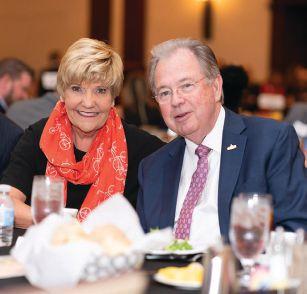
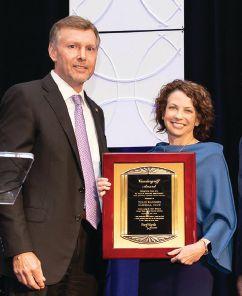
State of the County
On Sept. 26, Tarrant County Judge B. Glen Whitley delivered the annual State of the County address at the Worthington Renaissance Fort Worth Hotel.
1. Betsy Price, B. Glen Whitley
2. Lonnie Nicholson, Kellie Fischer
The Fort Worth mayor is using her post to help advance early learning initiatives and family-friendly work policies to get kids ready for school and futures in college, career and community.
BY SCOTT NISHIMURA
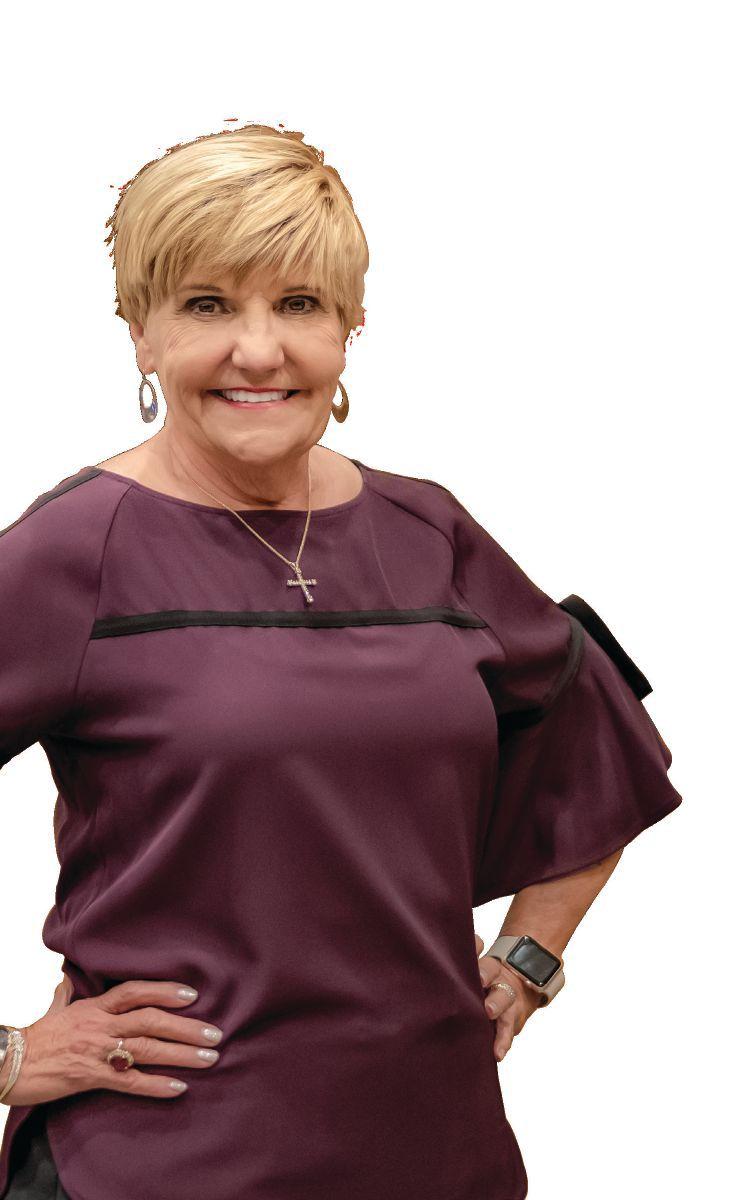
Fort Worth is in its fifth year of events under the Raising of Fort Worth umbrella to boost early learning. The newest stage of the initiative: building Fort Worth as “The Best Place for Kids,” a four-pillar strategy that includes developing a best-in-class child care facility model, mapping child care deserts in Fort Worth, and repurposing buildings for child care or upgrading existing facilities; inspiring family-friendly business practices; using summer school spaces as early education hubs; and publicly recognizing great places and spaces for kids.
A consortium of organizations, with Fort Worth Mayor Betsy Price, is leading the Raising of Fort Worth: The Miles Foundation, First3Years, Lena Pope, Early Learning Alliance, North Texas Community Foundation, Child Care Associates, Rainwater Charitable Foundation, Camp Fire First Texas, and Fort Worth Chamber of Commerce.
The implications of having inadequate child care are broad. Only 34% of Fort Worth public school third-graders read on level today, a critical workforce development issue. Fort Worth has a large percentage of young families. “If families have to drop out of the workforce because of children, what happens to them?” Price says of those kids.
The community is behind in its goal of having all third-graders reading on level by 2025 the 100 x
25 initiative. “If we’re going to hit our goal of 100 x 25, we have to work on preschool, cradle to third grade, and, ultimately, cradle to career,” Price said in an interview.
On facilities, Child Care Associates and Huckabee architects are building an Early Learning Innovation Studio that they call a best-in-class model.
Best business practices come off of research showing parents who have access to high-quality child care demonstrate higher performance and retention at work. Local chambers of commerce and business leaders are developing an online “business self-assessment” that employers can use to assess their family-friendliness in 10 areas with proven return on investment: core benefits such as health care coverage, paid time off, and maternity leave; culture; resources such as on-site child care, child care assistance, and backup child care; and workplace flexibility policies, including flexible hours and ability to work from remote or home.
The assessment will become the nominating vehicle for earning a Best Place for Working Parents designation and three Best Place for Working Parents Innovator Awards. Price will hand out the 2020 Innovator Awards at her annual State of the City address in February, in the Event, Policy and Family Resource categories.
“We want to recognize businesses that are doing great things,” Price said. The city of Fort Worth, for one, needs to re-examine its own leave policies, she said. “We have to start first with our child care policy.”
The goal of the initiatives isn’t to dictate policy to employers, Price said. “Our goal is to raise the profile, to put some momentum around this. We know now kids need to be ready when they hit kindergarten.”

We’ve called Texas home since 1948, and our family of employees, clients, carriers and communities has made us the largest locally-owned independent insurance broker. You can count on our Day Two Services® to be here protecting you all year, every year.
We’re still here after all these years because of our people who make Higginbotham one of the Best Places to Work in Texas.


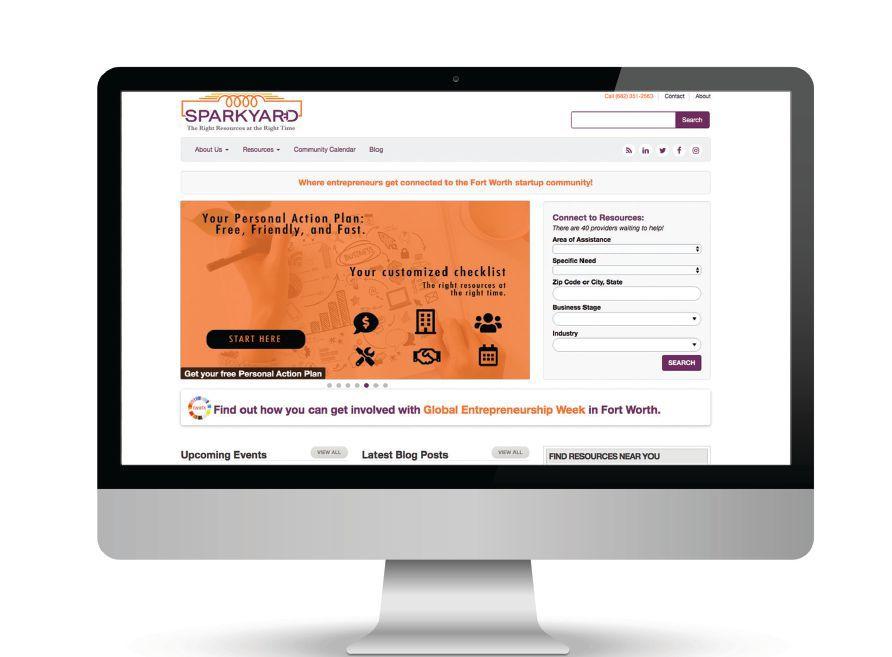
BY SAMANTHA CALIMBAHIN
The name “Sparkyard” has several meanings, according to Sparkyard Network Builder Marco Johnson. “Spark,” of course, is a reference to fire, ideas and movement. It’s also a nod to the Fort Worth Stockyards — one of the city’s earliest hubs for entrepreneurship — and the word “railyard,” a nod to one of Fort Worth’s largest companies, BNSF Railway.
“Plus, lots of great things happen in your front yard and backyard — places where people come together and ideas organically happen,” Johnson says.
So, what is Sparkyard? It’s a website (sparkyard.co), essentially, meant to serve as a one-stop resource for entrepreneurs and small-business owners. Soft-launched in mid-August, the site features a bevy of tools, from an event calendar to an online
directory of small-business service providers like coworking spaces, local chamber organizations and incubators.
The site was founded through a partnership among the City of Fort Worth, UNT Health Science Center and TCU Neeley School of Business. Johnson, former director of programming for the Accelerate DFW Foundation and now an assistant director of entrepreneurship at UNT Health Science Center, is spearheading the project on behalf of its founders. A hard launch is set for Nov. 14.
“If you’re an entrepreneur or business owner, you don’t have a clear path to figure out what’s out there — what do I need to start my business? What do I need to run my business?” Johnson says. “[There’s] not really a roadmap to what’s out there. Sparkyard is an attempt to address that.”
According to Johnson, the best way to start is to click on Sparkyard’s Resources tab. There, the website divides into three main sections with content directed toward entrepreneurs looking to launch or scale their companies:
Startups. Information on how to develop your product, write a business plan, register and license your business, etc.
Growth. Information on marketing, maintaining growth, hiring, etc. Funding. Information on business financing, finding investors, getting loans, etc.
• For a more personalized experience, entrepreneurs and business owners can utilize Your Action Plan. Fill out a form with your business information, and Johnson will create a customized plan for your company.
• Additionally, small businesses can access the Resource Navigator, an online directory of organizations that provide services to entrepreneurs and small businesses, from TechFW to the Cowtown Angels. Organizations can sign up to be part of the directory at no cost.
• A community calendar lists all business owner-focused events happening in Fort Worth/Tarrant County and beyond.
• The blog addresses topics from the Sparkyard Resource Navigator and guest bloggers, including resource partners and, Johnson hopes, local entrepreneurs/business owners.
• Johnson says the site will also add features based on feedback from entrepreneurs and resource partners.
Global Entrepreneurship Week
Fort Worth | Nov. 14 – 22
Sparkyard’s hard launch is Nov. 14 — the first day of Global Entrepreneurship Week Fort Worth. The event hosts competitions, networking opportunities, workshops and other activities at various local venues. Visit gewfortworth.com for more info.
VLK mastered the art of architecture; throughout the concept, design and construction process, without fail, VLK surpassed our expectations. Their commitment to detail, execution, and overall excellence made our process an absolute success.

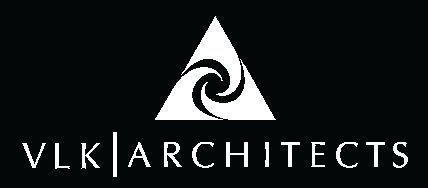
John Fucci, Vice President
Steelhead Capital Management & Bios Partners

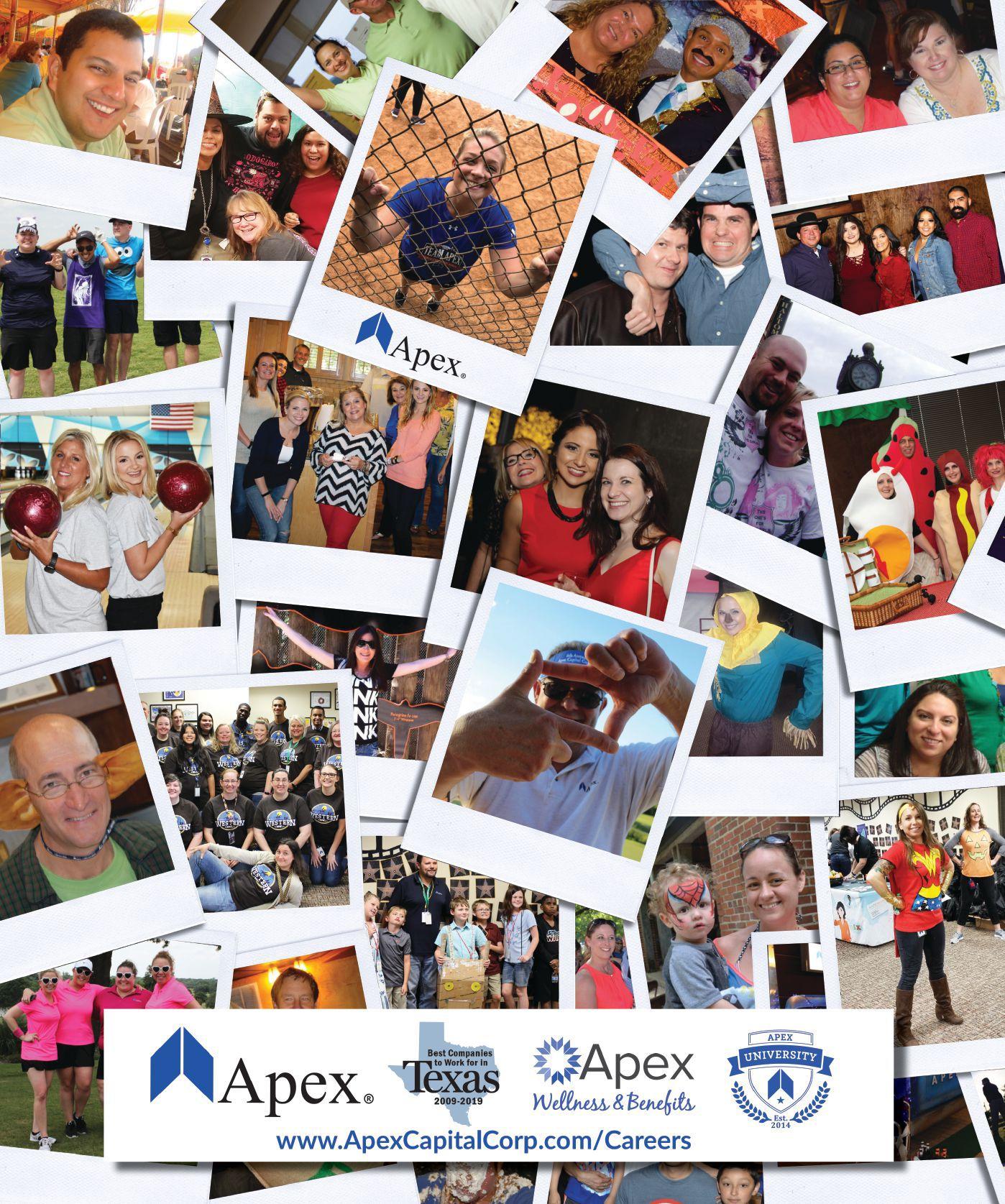



Honey, I shrunk myself. Find out where to create your own mini-me on page 20.

A Fort Worth Inc. writer’s experience with the mini-me makers of Camp Bowie.
BY MATT PAYNE / PHOTOGRAPHY BY OLAF GROWALD
Imagine looking down over a model of yourself, noting every tuft of hair and exactly how your belly curves into your waist. Better yet, picture that model compact enough to slip inside your coat pocket.
I’m here to tell you that, nowadays, it’s not just a thing of Joe Johnston’s “Honey, I Shrunk the Kids.”
A couple Fort Worth Inc. pals and I took a trip down Camp Bowie Boulevard and into the Doob workshop, a 3D tech company founded in Düsseldorf, Germany. Doob’s in the business of forging hyper-realistic figurines of people — from 4 to 14 inches tall — priced from $99 to $699. Each model is handled with care and internationally
shipped anywhere.
Since arriving in early 2019, Doob has always inspired our curiosity being just a stone’s throw away from our office and yards from us whenever we make java runs to Craftwork Coffee Co. So, we asked Rhonda Stepp Felton, partner and owner of Doob Fort Worth, if I could step inside the “Dooblicator.”
Let’s get down to brass tacks: It was really weird, but in the best way. No less than 66 cameras greet you walking into the doctoroffice white chamber, and you sort of feel like you’ve found yourself in a scene from “The Matrix.” Surreal might be an appropriate way to describe getting Doob’d. Ironically, I felt like an action figure myself as

Felton helped adjust my posture and posing to ensure a quality Doob.
And it was over in one-eighteenth of a second after we finally settled on my signature staggered stance. I stepped outside, and dozens of still images of my body were displayed across TV screens. “Is my hair really thinning that much in the back?” was an initial thought.
Turns out the finished product was pretty dang impressive.
Fast-forward to about three weeks later. I find myself grasping a mini-me in the palm of my hand. The thing is printed from ink-imbued resin and totally nailed my blue-and-plaid button-down, all the way to the subtle wrinkles. The scuffed-up Chuck Taylors on the little guy look true to life, and I keep earning gaping reactions from many of my coworkers.
I don’t think there’s any experience like it, and I’m heavily tempted to come back on my own time with my cat in tow since Doob Fort Worth will 3D print furry friends too. Moreover, Doob has the digital data stored for two years if you ever manage to break the figurine.
It’d make for a great team-building trip too. Felton says they’ve printed entire office rosters before and are happy to accommodate anybody looking to see themselves from a third-person perspective.
In a way, it was quite a Zen undertaking, albeit an odd yet effective way of getting to know yourself.





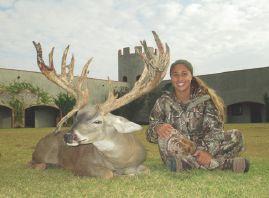



Relaunching her fashion line, Sheridan French embraces vulnerability with boldness.
BY SAMANTHA CALIMBAHIN / PHOTOGRAPHY BY OLAF GROWALD
Fashion designer Sheridan French recalls a time when life seemed to move nonstop. In 2013, three years after the launch of her namesake clothing company, she found herself juggling her growing brand — which had products at 50 boutiques during the time — alongside her family, with a 3-year-old, 2-year-old, 1-year-old and another on the way.
But even good things can take a toll, French says.
“I was too stressed, going 90 miles an hour all the time. It was too much; I couldn’t do it,” she recalls. “I got to the point of being okay with saying I couldn’t do it.”
So, she stopped, stepping away from her business to focus on being a mom, which French says was “the best thing I ever did. As soon as I made the decision, it was a huge weight off my shoulders — because I knew it was ‘pause.’ It wasn’t ‘stop.’”
But now, after a five-year sabbatical, it’s time to press play again. In March, French relaunched her business, focus-
ing on online sales through her website, sheridanfrench.com. Her new line, coming out in 2020, still reflects her signature aesthetic of bright colors and bold prints — but she’s also throwing in a few surprises, like sequined lips on a bright green dress.
“It’ll stay in line with my aesthetic, as far as bright colors, very wearable and classic,” she says. “But I definitely pushed the boundary a little bit to have more of an edginess that reflects me.”
French currently spearheads almost every aspect of her company, from hand sketching fabric patterns to working with manufacturers in India. While her line currently includes dresses, handbags and tunics, French eventually hopes to grow into a lifestyle brand that extends beyond clothing. Also on tap for 2020 is fabric sold by the yard, along with wallpaper. And, she hopes to explore pajamas and children’s clothing in the future.
“If the trend is going left, I’m 100 percent going to go right,” French says. “I love bright colors, being edgy, but being comfortable too.”




« Just a few of Sheridan French's patterns


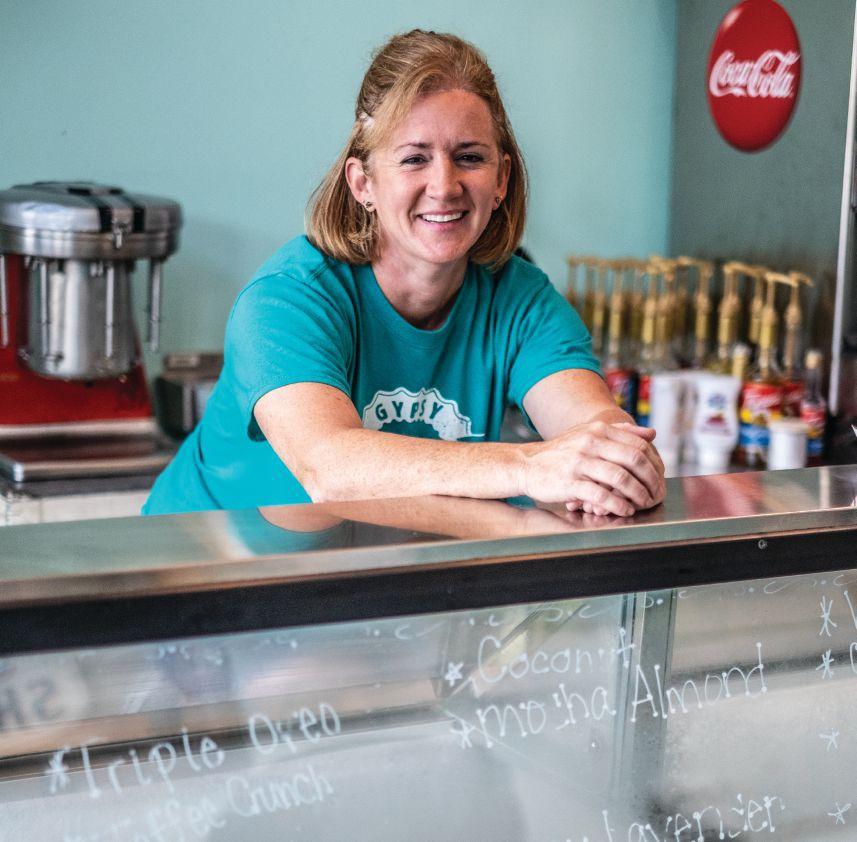
Success is sweet for a local ice cream parlor looking to make its mark on Fort Worth. BY SADIE
BROWN / PHOTOGRAPHY BY OLAF GROWALD
Gypsy Scoops feels like walking into a small-town ice cream shop. The parlor is bright, colorful and delightfully old-timey, with quirky, retro touches. Its Race Street location sports a piano on the porch and a collection of classic board games (minus a
few pieces). Its recently opened South Main location, though more rustic to match the vibe of the Near Southside neighborhood, carries the same character — both stores have a stash of assorted bottled soda and candies, complete with every flavor of moon pie available.
The classic, hometown vibe is what Gypsy Scoops owner Julie Markley aims for.
“When people come in, I want them to smile and leave thinking, ‘Okay that was a good value for my money. That was a good product,’” she says.
Markley has come a long way from pursuing ice cream as a side hustle before dropping out of corporate America to make Gypsy Scoops her full-time gig. One truck, two stores and mounds of sweet treats later, Markley is finding her place among Fort Worth’s small-business community. She attributes her success to the spirit of the parlor — family friendly, homemade and willing to travel. What’s more, Gypsy Scoops has recognized the importance of knowing its audience and listening to them. Her company doesn’t try to be “fancy-schmancy,” Markley says — this, more than anything, sets Gypsy Scoops apart from competitors like Magnolia Avenue establishment Melt Ice Creams, whose flagship sits just minutes away from South Main Street.
“I do my own thing — I don’t do artisan,” Markley says. “We continue to want to be more nostalgic; [Melt is] more modern. It’s a different style, a different type of ice cream.”
Even with fierce competition in the DFW ice cream scene, Markley shares her admiration for fellow frozen-food entrepreneurs. She says she “wants to see everybody succeed,” name-dropping other local brands like Milwaukee Joe’s, Beth Marie’s Old Fashioned Ice Cream and her South Main neighbor, Alchemy Pops.
Markley also believes her partnerships with other small companies have contributed to her own success. She’s worked with Panther Island Brewing and Hot Box Biscuit Club and recently collaborated with HopFusion Ale Works for a beer and ice cream pairing event.

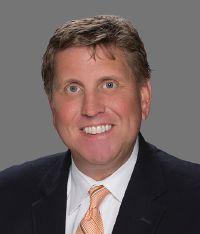





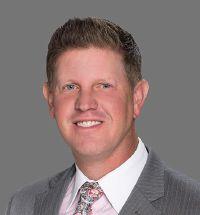
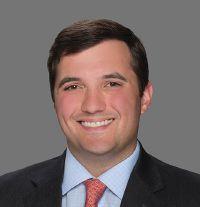
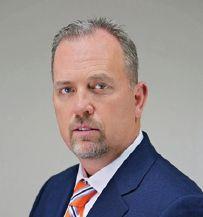
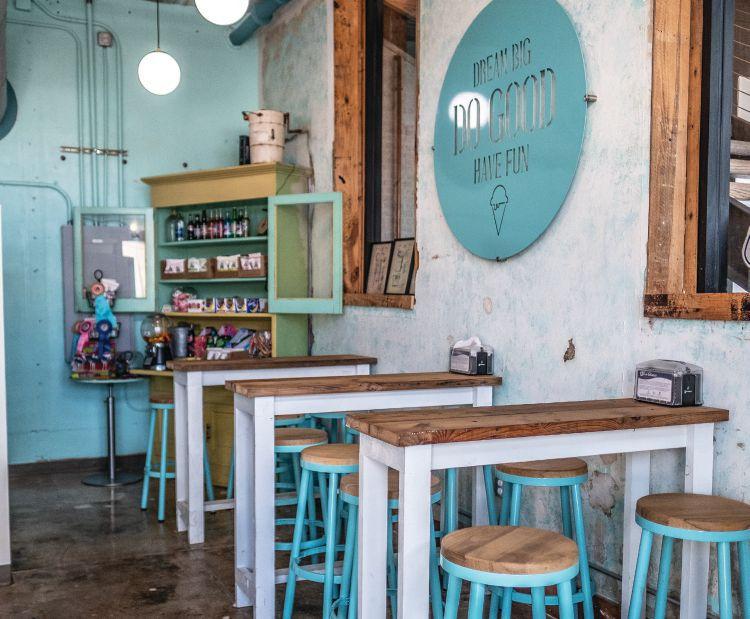

“People [in Fort Worth] like to support small businesses, and they like to see those collaborations,” Markley says.
The Cherry on Top Megan Henderson, director of events and communications at Near Southside, Inc., has watched Markley grow her business from its early days as a plucky yellow ice cream truck.
“She had been a really crucial part of [Near Southside] public events,” Henderson says. “It was there that you really started to see her dream of a brick-and-mortar.”
Markley says a lack of fun was what prompted her to ditch an inventory management career in favor of something sweeter. Inspired by her cousin’s mobile ice cream parlor in Ohio, Markley saw a need in DFW that she and her family could fill.
Originally serving Blue Bell and Henry’s Homemade, Markley and husband/chef, James, began experimenting with their own frozen creations and funky flavors. She laughs, describing the moment she
knew it was time to invest in an expansion.
“We started in the truck, lining up our ice cream makers and making more,” she says. “We had a gazillion of these little ice cream makers, and we were trying to make bigger batches and different flavors and experimenting. And those were the things that were selling out.”
A growing business has its challenges, however, due to the seasonal nature of ice cream sales and the fact that the workforce of ice cream scoopers is largely made up of high school and college students. Markley says she’s also learning the difference between being her own boss and being “the boss,” hoping to eventually step into the role of “owner” instead of “manager.”
“I can handle making the ice cream,” Markley says. “I can handle the business aspect of it and the inventory and all that. [Managing other people] and making sure that they’re doing what they’ve got to do is really the toughest part … I’ve just got to learn to delegate better to my people.”
For Markley, starting Gypsy Scoops was about having fun and being with family.
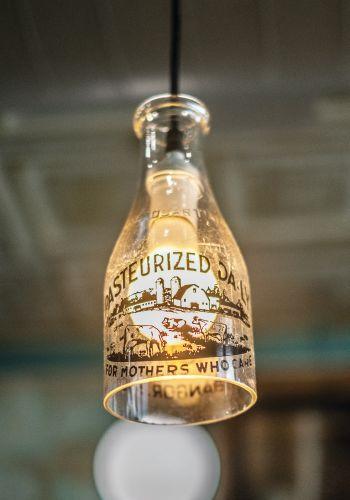
Her son and daughter work in the parlor during the busy season, and Markley says the family business plays a central role in their day to day.
“They love the fact that I’ve got an ice cream parlor, and their friends can come in and they get free ice cream and that’s awesome,” Markley says. “But if I don’t get to go to their volleyball games or football games because I’m in the day to day, that’s the toughest part.”
Still, while the business isn’t as smooth as her signature Honey Lavender ice cream, Markley says it’s worth it — and success tastes sweet.
“This [business] is the hardest thing, but we have fun every day, and I love doing what I’m doing,” Markley says.

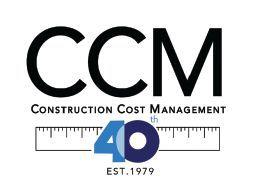




The
annual fundraiser draws out the inner artist of Fort Worth’s business and community leaders.
BY SAMANTHA CALIMBAHIN / PHOTOGRAPHY BY OLAF GROWALD
Go to work, go home, get lost in a hobby — like the rest of us, even the biggest names in Fort Worth’s business community need relief from their day jobs. For some, that relief comes in the form of making art — a therapeutic escape from the pressures of the corporate world.
Perhaps few organizations understand that better than The Art Station, a nonprofit that provides art therapy to struggling children, teens and adults. Every year, the organization calls upon community leaders and local celebrities — folks not necessarily known for their paintings or sculptures — to create artwork to be auctioned off during The Art Station’s signature fundraiser, Public Figures, Private Artists.
This year’s event, held on Oct. 15, showcased all sorts of pieces, from leather goods to metalwork — even surprising some participants who have just recently discovered their inner artisan.

Bob and Nancy Mitchell
Day Jobs: Executive Recruiter, WhitneySmith Company (Bob); Assistant Director of Safe Environment for the Catholic Diocese of Fort Worth (Nancy)
Art: Painting (Bob), sewing (Nancy)
Work sold for: Bob’s painting for $225, Nancy’s jacket for $1,750
The home of Bob and Nancy Mitchell — husband and wife and longtime supporters of The Art Station — is a bit like an art museum in itself, with décor ranging from abstract sculptures to blown glass.
For the Mitchells, art is a pleasant diversion from their day jobs. While Nancy has been sewing for years, Bob only discovered his knack for painting through participation with The Art Station.
This year’s event saw Nancy contributing a handmade leather jacket with Italian wool lining inside. Bob contributed a painting titled “Contemplation Above the Red Beach,” a scene from the couple’s trip to Santorini.
“My daily life is not generally quiet,” Bob says, “so swatches of time focused on a quiet process is calmingly impactful. Because I am creating in usually very pleasant surroundings, at home or in exotic places, the activity and the venues mutually reinforce an almost Zen state of mind.”


Mike Micallef
Day Job: President of
Reata
Art: Welding
Work sold for: $2,000
At first, Mike Micallef’s welding skills extended as far as making repairs on his ranch or building something functional, like a barbecue pit. The president of upscale Southern restaurant Reata, often seen in a button-up and cowboy hat, enjoys trading his typical uniform for a ratty long-sleeve shirt and red welder’s cap and sending sparks flying out from his garage.
Micallef hadn’t really thought of his hobby as an art until The Art Station approached him about submitting work for Public Figures, Private Artists. If he had an artistic side, Micallef says, it’s in photography, capturing scenes in the wild during hunting and fishing trips. But last year, Micallef saw his metal fish sculpture earn $1,250 for The Art Station.
“Going to the auction last year and seeing how my sculpture performed … it’s like affirmation that I created something that other people enjoy too,” he says.
This year, Micallef submitted another sculpture — a tarpon fish, complete with scales made of spoons and a fly in the fish’s mouth.
“The hardest thing for me is not trying to be too exact, trying to be a bit more artistic,” Micallef says. “My personality is being very exact and wanting it to be perfect. But you need to step back and say, ‘Hey, this is art’ … I try to make something that somebody would enjoy in their home, that lets them imagine.”
Jason Boone
Day Job: Asset Management QA Lead at DFW Airport
Art: Knifemaking, leatherwork
Work sold for: $375
Jason Boone makes knives — he just can’t bring them to work at DFW Airport. Yes, his coworkers know about his atypical hobby, but if anybody wants one of his knives, he’ll have to give it to them off-property.
“It’s funny because from the time I was 10 or so, [ever since] Dad gave me my first pocketknife, I had a knife in my pocket,” he says. “Then I worked for the airport. Guess what? I can’t carry a pocketknife anymore.”
It was Boone’s father who inspired him to start making knives, albeit posthumously. Not long after his father’s death about seven years ago, Boone found his father’s old toolbox full of metal files. With a little help from YouTube and the Texas Knifemakers Guild, Boone attempted to make his first knife. “It turned out decent,” he says, so he decided to make more for family and friends.
Boone continues to make hunting knives and leather sheaths, but he doesn’t take orders, saying he’d rather keep knifemaking a hobby — it’s more fun that way.
“I’ve been out there until 2 o’clock in the morning, and all of a sudden, I’m like, ‘Well, I’ve got to go to work in about three or four hours. Let’s go to bed,’” he says. “I just like being out there and making a mess.”
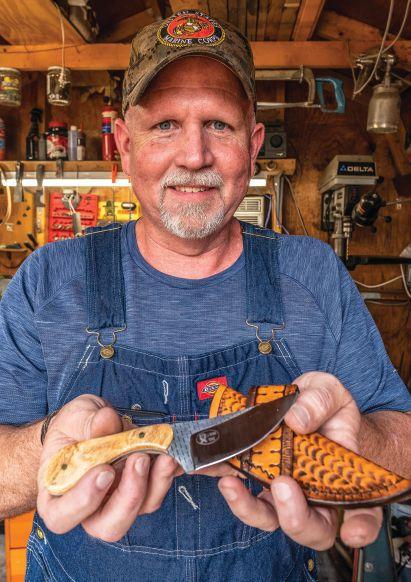

Beverly Powell
Day Job: Texas State Senator Art: Painting, singing Work sold for: $500
Politics is a tricky line of work, one often associated with conflict and divisiveness. State Sen. Beverly Powell says painting reminds her to keep her heart in the right place.
“That’s my philosophy working with people in the senate and people in our community,” she says. “If you can approach the work you do in leadership with grace and love in your heart, you will always get to the right decision about any issue.”
The “Lead With Love” series preceded Powell’s career as a state senator, with each painting defined by brightly colored brushstrokes that form the shape of a heart. For this year’s Public Figures, Private Artists event, however, she decided to throw in another not-so-hidden talent — her CD, “From My Heart to Yours,” which features Powell’s voice on tracks like “Amazing Grace” and “Wind Beneath My Wings.”
In December, she’ll be performing with an ensemble at WFAA’s Santa’s Helpers toy drive.

You may be out of the sun, but even office lights and computer screens can hurt your skin. Here’s what you can do about it.
BY DR. HEATHER REAGIN
Yes, work can take a toll on your skin — due to stress, certainly, but even if you feel that your work environment is pretty stress-free, there are still some less conspicuous stressors that may be harming your skin.
Skin is a major target of oxidative dam-
DR. REAGIN’S RECOMMENDED SKIN CARE PRODUCTS AND BRANDS
SkinMedica Total Defense and Repair tinted sunscreen. This product contains antioxidants and serves as a tinted sunscreen, so it’s a two-in-one. Another option
age, which causes DNA-damaging free radicals. There exists a strong link between this oxidative stress and premature aging of the skin (i.e., wrinkles, discoloration, abnormal texture, etc.). Smartphones, tablets, computer screens, and fluorescent and LED lights in the workplace emit visible light, known to cause reactive oxygen species
would be to pair an antioxidant serum such as niacinamide or vitamin C with a tinted sunscreen.
The Ordinary. If you are new to a multistep skin care regimen, The Ordinary is a good brand to introduce you to the process. It’s
which can damage the skin and eyes. Particularly sensitive to this type of exposure are people who suffer from melasma, a pigmentary disorder that causes dark spots on the skin.
Most people spend more than eight hours per day in front of these devices and light sources — a significant amount of time that can really take a toll on your skin — and unlike UV light from the sun, blue light is not blocked by normal sunscreen. Here are a few tips to decrease your exposure to the damaging light from these devices:
• Add a blue light-blocking screen protector to your computer screen and phone.
• On an iPhone, change the settings so the screen is always set to Night Shift on the warm setting.
• To protect your eyes, blue light-blocking glasses are available with or without a prescription.
• To protect your skin, use a tinted sunscreen that contains iron oxide and blocks blue light.
• Wear an antioxidant in the morning to help fight off the reactive oxygen species and prevent them from harming the skin.
Dr. Heather Reagin is a board-certified dermatologist at Sona Dermatology and MedSpa in Fort Worth (sonaskin.com).
affordable and is a good way to see if you are going to keep up with a regimen before committing to a large investment.
Next Steps If you have a concern about your skin, a chronic skin condition that has proven dif-
ficult to treat, or simply want to discuss developing a skin care regimen, you should schedule an appointment with a boardcertified dermatologist.


Red Productions' South Main office is rugged yet comfortable, defined by dramatic art, homey touches and nods to the building's history.
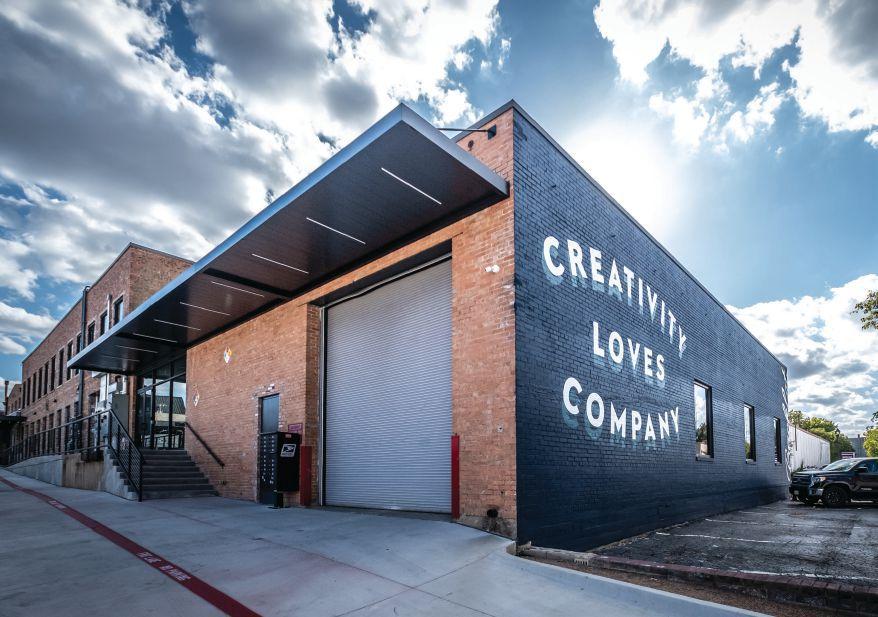
What’s more impressive than Red Productions’ swanky new office space — the stories behind the design.
BY SAMANTHA CALIMBAHIN / PHOTOGRAPHY BY OLAF GROWALD
Take a tour of Red Productions’ new office on South Main Street, and when your eyes land on an interesting piece of art or décor, chances are, there’s a story behind it. Like the American flag in the coworking space, brought home by a soldier who served in Afghanistan. Or the old trunk that sits among the staff desks, thrown off a bridge about 10 times during a shoot. Then there’s the aluminum art piece in the common area, titled “Truck Got Stuck.” More on that later. It makes sense, though, for a company in the business of telling stories. Red Productions, whose portfolio includes everything from marketing videos to feature films, moved its headquarters from Foch Street to South Main in
February. The company, along with its coworking space Backlot, occupies about 12,000 square feet in what’s collectively called MAIN+BROAD, a development by Kelly Capital Partners. And, as part of a bigger vision, Red Productions and Backlot are part of a Media Production Development Zone, created by the City of Fort Worth, that’s meant to serve as a hub for local creatives.
For the renovation of Red Productions’ space, the company called upon architecture firm 97w; and for interior design, Red Productions president Red Sanders called upon his wife, Jenny.
“To be able to have a piece in that and engage at home on that level was really wonderful,” says Jenny, whose day job is director of marketing and innovation at real estate company M2G

Ventures. “It felt like the whole family was a part of it.”
The building is a story in and of itself. Built in 1926, the building still had traces of its former life as a Crouch Dairy Supply. Gears from an old elevator remained in place on one end; and on another end, a conveyor belt — which Red and his 4-year-old son, Hank, would jump on while exploring the possibilities of what the space could be. (Hank’s handprint is in concrete on the floor in Red’s office.)
Red Productions would keep many of the building’s original elements during the renovation. The original brick, ceiling and concrete floor give the space a rugged character. And that leftover elevator hardware — a conference table now hangs from its cables, locked in place so it doesn’t move.
And yes, that conference table has a story too. Its wood comes from an old textile mill in South Carolina, left to rot after the mill closed. Woodworking company Legacy Timber then salvaged the wood and transformed it into a table for Red Productions’ office.
Of course, there are other practical elements throughout the space. One of the biggest is the approximately 4,000-squarefoot studio, oriented so the windows face
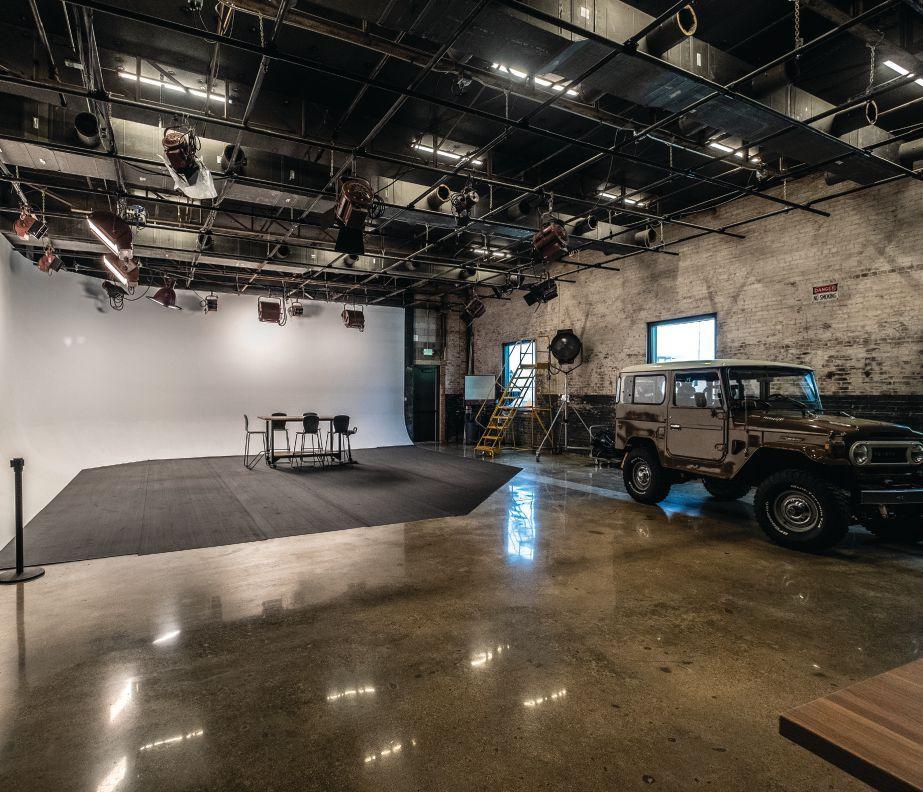
north so as to not allow light to enter the space directly. The building’s naturally thick walls, coupled with added sound absorption material and soundproof windows and doors, also prevent outside sounds from coming through, and the Overhead Door allows cars to drive in easily for shoots.
Another practical happenstance — a corner on the north end of the building, relatively devoid of windows’ natural light, works best as the post-production edit bay, lit more warmly to allow editors to focus on finishing touches like color correction. The area also features a sound booth for voice-over recordings.
Also part of the office is Backlot, a coworking space run by Red Productions that’s specifically tailored to those working in the creative industry. Most companies office in the jewel box at the
center of the building, designed with an emphasis on clean lines, glass and warm woods. To up the cool factor, lights illuminate beneath the box, creating an illusion of floating.
Much of the furniture comes from local shop Simple Things, while some pieces hail from other sources — like the director’s chairs in Red’s office, sourced from Casa Midy in San Miguel de Allende and made with raw leather and heavy iron.
The office is also rife with art, mostly by local artists, depicting candid moments that could easily be something out of a movie scene. There’s “The Last Conversation” by Jesse Sierra Hernandez in the green room, depicting three older men engaged in conversation while a fourth appears to be the odd man out. There’s also “Smoke and Stripes” by Riley Holloway in the kitchen, which illustrates a
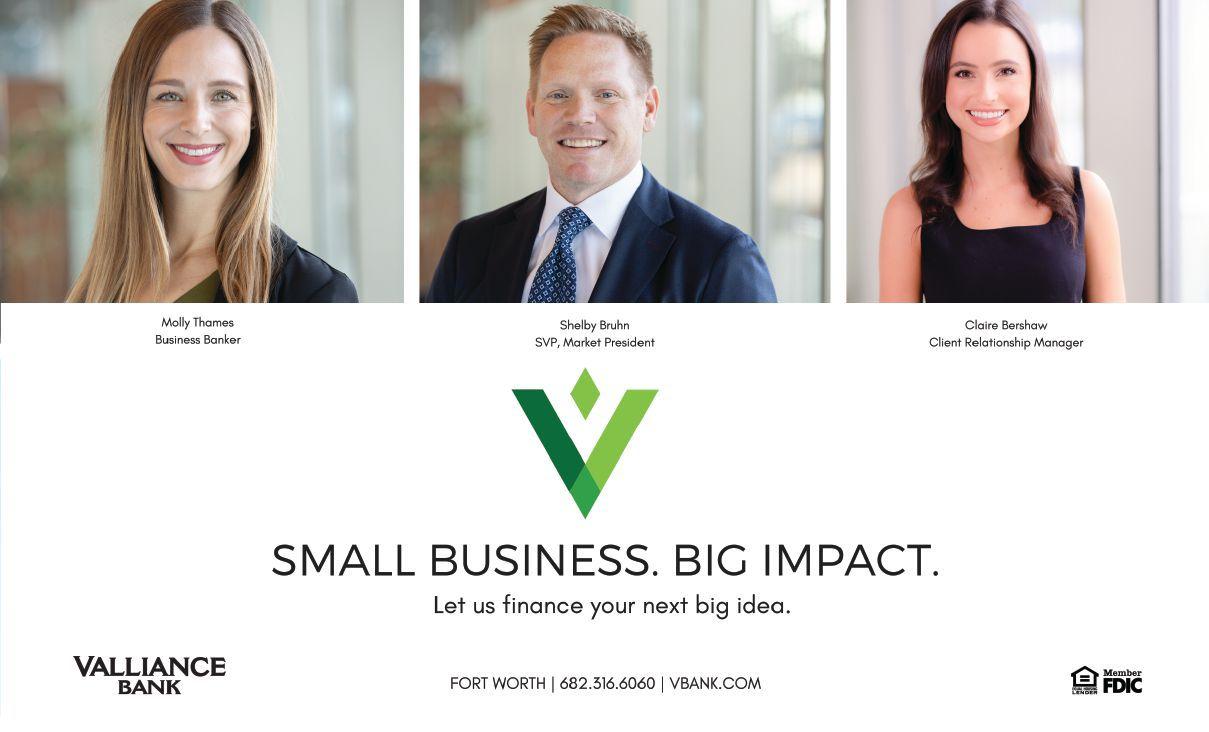





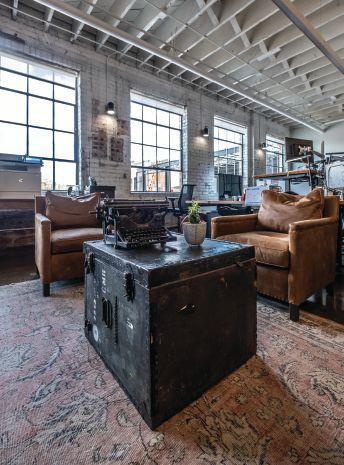
man lifting a cigarette to his lips.
And then there’s “Truck Got Stuck” by Tyler Germaine and Tom Diel — which was a bit of an accident. Germaine, a camera operator, was driving a truck to a shoot when it got stuck under a low bridge between Foch Street and Lancaster Avenue. The incident peeled the roof off the top of the truck (thankfully, Germaine was okay).
Some time later, the Sanders family found themselves on a trip to San Miguel to visit their friends at Casa Midy, where they came across an Aldo Chaparro art piece made from metal, bent in such a

way that it appeared fluid.
“I was looking at it, and I said, ‘You know, that’s a really cool piece. It reminds me of when the truck got stuck,’” Jenny recalls. Inspired, Jenny and Red sought to salvage the peeled-off roof from the truck. Red says, “We called the salvage yard and were like, ‘Oh, do you still have that truck there?’ They’re like, ‘Yeah.’ And we’re like, ‘Can we get the most bent-up piece off the top?’ He was like, ‘Yeah, that’s weird, but OK.’”
They then called upon artist Tom Diel to cut the jagged parts of the piece and paint it. Today, “Truck Got Stuck” hangs in the common area by the kitchen, complete with a label card listing the artist’s name and the unlucky driver who unintentionally formed the work.
And while the office has plenty more stories to tell, Red Productions simply looks forward to the ways their space will help them create more.
“There are some inherent challenges whenever you’re working to turn a former dairy supply into a living, breathing, working production office and studio,” Jenny says. “But the tradeoff is character — preserving a piece of the community that certainly has a whole lot of life left in it.”

The American flag by the hanging table in Backlot has special significance for Red Productions president Red Sanders. A family member in the military brought it home from Afghanistan and was carrying it on the day when one of his team members, Bradley Snyder, lost his eyesight due to an improvised explosive device. In 2012, a year after the incident, Snyder competed in the Paralympics as a swimmer — earning two gold medals. Sanders and his team are currently developing a movie about Snyder, titled “Alive Day.”
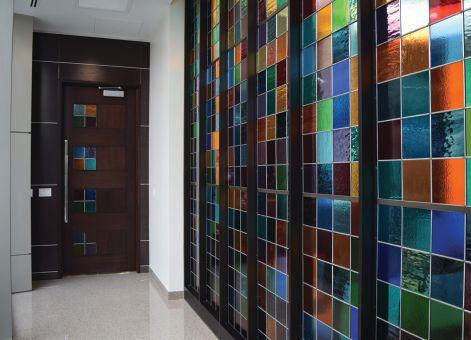


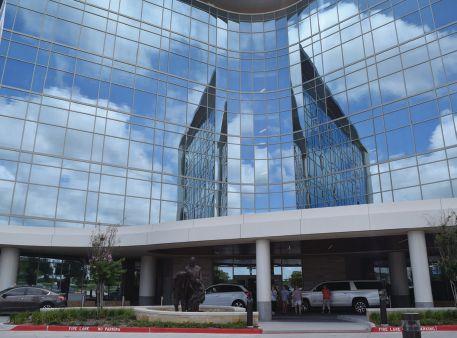
Providing Hollow Metal Doors & Frames, Wood Doors, Door Hardware, and Toilet Partitions & Accessories. We pride ourselves on getting the job done quickly, correctly, and on budget. With an emphasis on quality service and technical expertise. Thanks Fort Worth for 30+ Years of support!


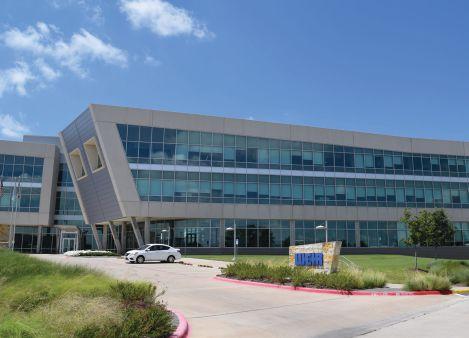
Building a legacy in Fort Worth:
¡ Dickies Arena
¡ Texas Motor Speedway
¡ Kimbell Art Museum
¡ Dorms & Greek Housing at TCU
¡ Clearfork, Westfork, Cassidy (Buildings around Sundance Square)
¡ Radio Shack/TCC Riverfront Campus
¡ Fort Worth area restaurants
¡ Huguley Hospital
What’s it take to make our 2019 Best Companies to Work For in Fort Worth? A lot more than pasting the core values on the wall and never revisiting them, CEOs of our 30 finalists tell us.
BY SCOTT NISHIMURA / PHOTOGRAPHY
Fort Worth Inc.’s annual Best Companies to Work For in Fort Worth issue — this is our fourth — is easily one of our most fun, because we get to visit CEOs who are thoughtful about what makes great workplaces, even if the tradeoffs they make are often complicated and expensive.
This year’s Best Companies, a contest independently run and judged each by the Best Companies Group, a research firm that runs more than 70 Best Companies programs worldwide, honors 30 private employers in the Fort Worth area and ranks them in the small/medium and large categories, with 250 U.S. employees being the dividing line. The rankings were announced Nov. 7 in a special luncheon and reception at The 4 Eleven in Fort Worth. Sponsors were Valliance Bank and the Better Business Bureau.
This year’s category winners were Gus Bates Insurance & Investments in the small/medium category and Legacy Mutual Mortgage in the large category. Bates has been a previous finalist in the competition, and Legacy won its category in last year’s contest.
Best Companies Group assesses entrants in the competition in two segments. The first is an examination of company practices in everything from benefits to diversity in recruitment; methods and frequency of employee reviews; training, education, and career development; leadership development and succession planning; communication and encouragement of employee feedback; employee recognition; and family-friendliness and work-life balance. The second segment is the result of confidential surveys of employees that the Best Companies Group runs. Contestants have access to detailed data on the employee feedback from the Best Companies Group. The magazine’s ownership, management and staff have no input into the results of the contest.
Several of our Best Companies finalists on this year’s list are making repeat appearances from prior years’ contests.
All of our finalists speak of the bottom-line benefit of treating employees well. Culturally, family, trust, respect and integrity appear often among our finalists’ values. “If we take care of people, they take care of the rest,” Nicholas Ward, CEO of finalist Koddi, last year’s small/medium company winner, says. And that means low turnover and less drama and cost that goes with having to replace employees.
In the tight labor market, our finalists spoke of beefing up benefits; coming up with innovative recruiting pipelines; using mentoring, cross-training and support of employees’ leadership roles in the community as a way of fostering employee growth and opportunity; creative ways to recognize employees’ performance; allowing flexible hours for family needs; and deploying technology to allow work from remote.
At Legacy Mutual’s Fort Worth office, all but one employee — the receptionist — work from remote at least part of the week. Well-being initiatives are big among our Best Companies. Gus Bates has an on-site gym with a trainer and scheduled fitness classes, open to employees, family and friends.
And working hard and turning results mean playing hard for our finalists. Topgolf outings are among the most cited by our finalists. Koddi, an advertising technology company for the travel industry, gives out gift cards to employees who post pictures of their travels on the #KoddiTravels Instagram feed and the company's internal Slack account.
Our favorite perk: the running tab at a popular Near Southside bar that the employer traded services for and that employees readily identify as one of their faves about working at the company. “Please don’t put that in the story, that we have a running bar tab,” the CEO pleaded. “Please.”
5
BatesFast-growing second-generation benefits company promotes a family-first atmosphere with flexible schedules, support for employees’ leadership roles outside work, strong benefits package, profit-sharing, on-site gym.
Growing benefits company builds around respect, “relatable leadership,” and opportunity for growth. Flexible hours for family, 100% company-paid medical and long-term care premiums.
Culture built on “Conscious Capitalism,” which argues shareholders are best served when the interests of all stakeholders are served. Biennial health screenings, generous paid time off, flexible hours for family needs, company-paid health benefits, regular well-being workshops, meditation before staff meetings, profit-sharing, daily chef-prepared meals in-office, regular sports massage and chiropractor visits in office, $1,000 annual allowance for fitness-related expenditures.
work schedules for family needs, opportunity to grow through ample cross-training, social culture that includes lake outings and fish fries, and company-paid health, long-term care, and disability benefits.
PowersSuccessful real estate company and developer of Fort Worth’s River District is moving its focus to investments and away from development. Investing in technology to make processes more efficient. Employees rewarded for hard work, including half-day Fridays twice a month, surprise extra days off and extended weekends. Opportunity to invest in Fort Capital’s deals.
of trust. Implemented seven suggestions from breakroom box: Half day from home the last Friday of the month; work from remote between Christmas and New Year’s, if not on vacation; Lunch and Learns; regular MineralWare Wheel of Fortune spins, where four employees vie to go to lunch on the company and take the rest of the day off; quarterly votes for nonprofit that the company serves with money and time.
7
Greg MorseFamily-first culture. 68% of staff is women. Company pays 80% of medical premium, 100% of life and short and long-term disability premiums. Flexible hours for family and paid time off to attend events like children’s graduations, field trips, and field days. 8
Doug BrileyTwenty-one-year-old agency runs on values of trust, humility, relevance, innovation, vision and excelence. 100% company-paid health premium after first year; 50% within first year. Bonuses of 2.5% to 10% of base pay, if goals met. Tuition reimbursement for full-time employees afer two years. Flexible hours for family.
Fast-growing, second-generation family-owned company. Steele & Freeman Way includes 23 fundamentals promulgated within the company and to clients and vendors, including blameless problem-solving. Built business off of repeat customers. End-of-year bonuses. Regular bonuses for client feedback. Flexible hours for family. On-site gym available to employees and families on weekends.
hard with 4 p.m. Friday “Freaking Awesome Happy Hours.” Benefits include 100% employer-paid health premium, “flex PTO” that awards employees a lump amount of PTO and lets them decide what holidays to take off.
offices give employees opportunity to transfer or do stints. Gift cards to
who share their travel photos on Instagram and internal Slack accounts. Annual offsite meetings at various destinations. Re-examining unlimited paid time off policy after finding employees weren’t using enough PTO.
Katy AbrahamSecond-generation woman and family-owned company. Casual workplace above a bar in the Fort Worth Stockyards, with free parking. Office dogs greet visitors. Familial culture among largely young staff, many of whom are from outside the U.S. Company has scant benefits, but it offers unlimited paid time off, because most of its staff is from outside the U.S. and travels home for extended periods.
Mike CoffeyFirm bills itself as for companies that can’t afford a bad background check. Continues to grow, recently acquiring a firm that specializes in nanny background checks. Staff 70% women. Flexible hours; 21 days paid time off after the first year. Twenty-four hours annual paid time off for community work.
Brent HobsonAs much as 50% of office staff hours handled by telecommuting. HVAC techs pick their schedules each month based on a hierarchy decided by customer and internal reviews, among other factors. Firm makes employees’ first payment on new homes and cars. Has own HVAC school, where it trains its own techs.
Willie DubuisFlex hours for family needs. CEO spends much of the day huddling with employees, gets much work done at night. Company pays 100% of employees’ health premium, much-anticipated annual profit-sharing.
CEO flew F-16s for the Air Force, brings “fighter squadron mentality” to his job. Installed new processes that set company up for growth. Family-first approach. Stores close 7 p.m., closed Sundays, paid time off to employees to serve in the community, cloud systems allow telecommuting where appropriate.
“Woo” czar in charge of advancing culture. Regular company-sponsored outings, lunches, dinners and happy hours are the norm, along with sponsored teams in events like mud runs. Extra PTO for performance, flexible hours for family needs.
Family-oriented workplace, approachable management. Softball team, regular outings, like bowling, Office Olympics, fishing. Big annual family fish fry. Flexible hours for family needs, 4 p.m. Friday office closings. 100% employer-paid health premium, Christmas bonuses, 75% discounts on Apple watches.
AlleyCompany re-engineering self to provide more opportunities to younger
unit looking at technologies like 3D, drone, virtual and augmented reality to differentiate the company.
Family-first office environment. Virtually everybody in Fort Worth office works from remote as needs arise. Legacy’s San Antonio office laid some employees off last year, but Fort Worth office executives have played their staffing conservatively to avoid layoffs. Benefits include medical, dental, short term disability and vision plan options, company-paid life and long-term disability. Up to $1,500 of employee health deductible paid by company annually.
Multifamily owner manages big portfolio of properties nationally, providing opportunities to relocate. Broad benefits package medical, longterm care, company-paid short- and long-term disability. Benefits partners provide financial planning, travel assistance, estate planning, tuition reimbursement plan for employees and dependents. Annual companywide Christmas party. Year-end profit-sharing to corporate office employees. Employees at properties share in profits if their
beverages in the office. Generous benefits, including $15,000 annual tuition reimbursement benefit. 360-degree reviews, where employees get to review the bosses.
hangs its culture hat on the fact that it’s been employeeowned — through an ESOP — since 1986. A%age of each employee-owner’s
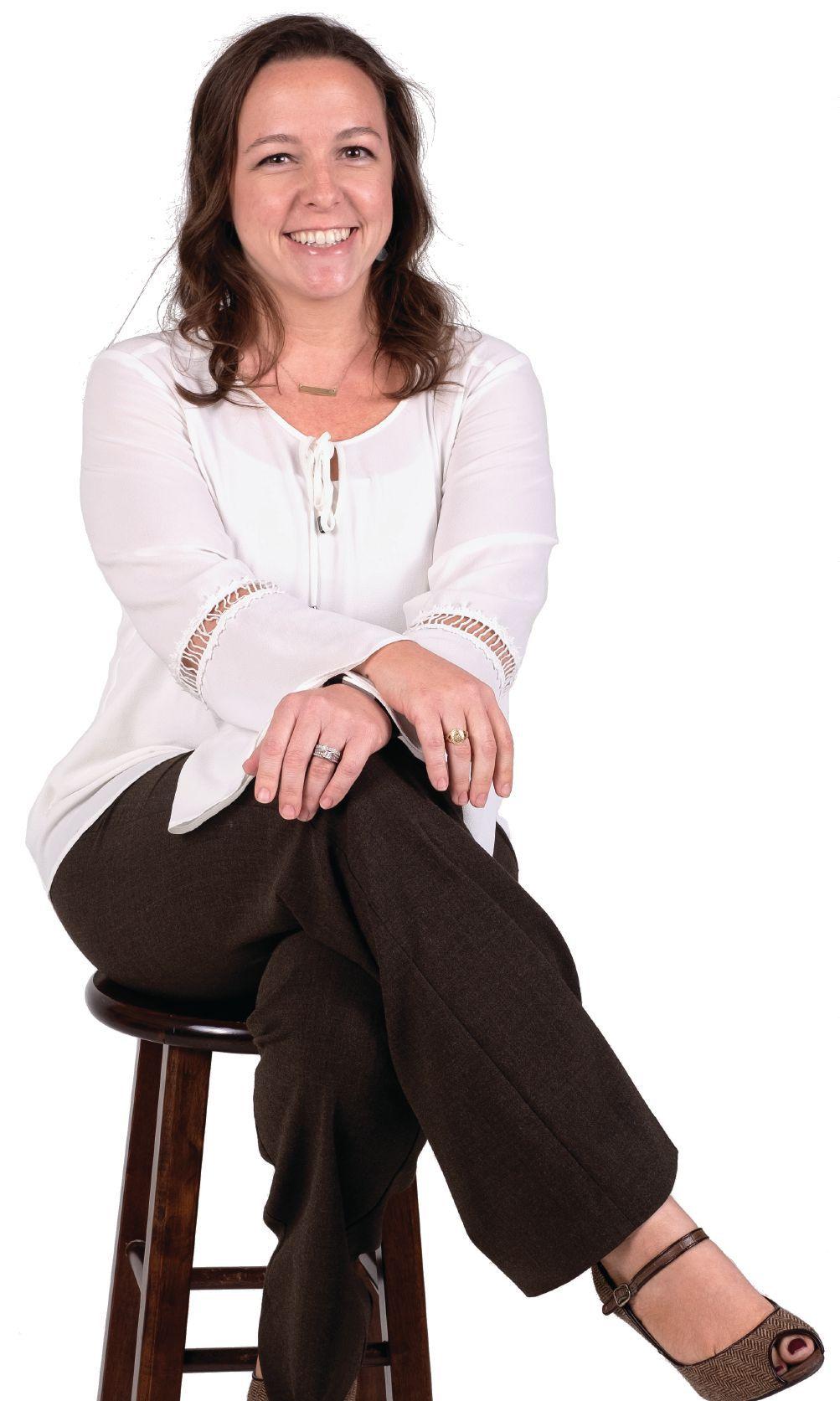
Fast-growing Fort Worth benefits company says its people “work hard, play hard.” But that’s not trite. Among the benefits: full on-site gym (see cover), flexible hours, and the bosses’ support of leadership roles in the community.
Gus Bates, a second-generation family-owned firm, has continued to nurture and sustain the family culture set by its founder, Gus Bates III. “We embrace it,” Gus S. Bates, the owner and founder’s son, says. “My dad has always told me [to] treat people the way you would like to be treated. Be humble and enjoy what you do. Be persistent.”
The firm, founded in 1966, has 58 employees today, 68% women, and
has grown conservatively and organically, Bates says. “We’ve always grown organically. There is so much business in North Texas, we can’t get to it all. There’s lots of people I can’t get to in my lifetime. I know the doctors; I know the hospitals. Fort Worth is a big, small town.”
Bates says it’s possible the firm may look for an acquisition. “Next year, I wouldn’t be surprised if we acquired a smaller agency. I would say a minimum of 10 employees next year.”
By focusing on its own base, Bates has been able to reel in a lot of employees — 23 currently — who graduated from TCU. The firm offers profitsharing. “Our philosophy is we share the wealth. We have a model that is skin in the game. If the company does well, we all do well.”
The company also supports charities — and its employees’ leadership roles in them — financially and through flexible hours. Bates estimates the agency supports more than 60 charities annually. “Each and every one of us has something that’s super-fulfilling,” says Bates, who chokes up in talking about one employee who asked the firm to support Special Olympics. “We want to help you support that.”
Bates credits the firm’s clients for many of the ideas it’s built into its culture. “I’m a copier of great ideas. We have the luxury of meeting many different business owners.”
On-site perks include a fully equipped gym and locker rooms — actually, across the street from Bates’ headquarters off of South University Drive near the Trinity River — with trainer and lineup
of scheduled fitness classes open to employees, family and friends. “I’m not the first person to come up with the idea of an employee gym, but ours is a lot cooler,” Bates says.
The office has an outdoor putting green. The agency caters in lunch once a week. Dogs are welcome. The firm can put on training in a modern 60-person seminar room. Celebrations and recognition include an annual service luncheon for employees who reach certain employment anniversaries, starting at one year.
Benefits include health insurance, short-term disability, company-paid premiums for long-term care and long-term disability, and 50% company match on employee 401(k) contributions up to 6%, and 15 days paid time off after the first year of employment.
Senior account manager-retirement plan services
Gus Bates Insurance & Investments
11 years with the company
“Gus Bates Insurance & Investments encourages employees to grow and thrive professionally and personally. All employees can bring in new business and are encouraged to be active members of community organizations. Employees are expected to work hard, treat everyone with respect, and always do the right thing. At Gus Bates, family comes first. Employees have flexibility with work schedules to be available for life’s most important moments. Each year, a Gus Bates Family Day is hosted and allows the team to come together and not only make memories with our own families, but with each other.”
What they do: Benefits Employees: 21
Forte, a Fort Worth benefits company, prides itself on empowering employees and entrusting them to do their jobs. “We’ve got really smart people,” Bill Hester, a partner in the firm, says. “We train well, and we let them loose. We don’t micromanage. Our leadership doesn’t have the time to micromanage. We don’t have time clocks. We don’t have office hours.”
Forte’s a “high-touch” firm, Hester says, helping, for one, users of its health plans navigate benefits in complex situations. Employees have to be effective communicators and advocates. “We triage everything,” Hester says. “You call our office, and we do that for you.”
Forte’s culture promises respect, “relatable leadership,” and opportunity for professional growth, and is built around values like encouragement, service, growth and integrity. The company offers mentoring, job-shadowing, cross-training, and support of employees’ leadership roles outside work.
Forte, whose office is 60% women, puts on quarterly team-builders and regular parties, like Summer Fun, Halloween, Thanksgiving potluck, and Christmas. Besides the flexible hours, benefits include 100% company-paid medical, long-term care, and long-term disability premiums, and 15 days paid time off after the first year of employment. “We would never advise our clients on something we wouldn’t purchase for our employees,” Hester says.
Sandy Buck Director,reporting,analytics Forté Benefits
6 1/2 years with the company “Coming to work on Monday mornings is never hard for me. We are not simply coworkers here at Forté; we are part of a diverse family of respected professionals who bring individual talents to our team. The long-term business relationships that we have attest to the fact that we work hard and place our clients first in everything. The positive atmosphere here begins with the partners who have set the scene for both a professional and relaxed environment in what can often be a hectic industry.”
What they do: Private equity, alternative investments,acceleration capital
Employees: 35
Satori — a private equity, alternative investments, and acceleration capital firm — has more than $1 billion in assets under management, but coCEO Randy Eisenman describes that as a “byproduct” of the Satori mission. “We’re not trying to build a large firm; we’re trying to create extraordinary outcomes,” he says. “The growth in assets under management is really just a byproduct. We are investors, not asset gatherers. We’re all dedicated to making great investments.”
Satori co-founders Eisenman and Sunny Vanderbeck have built the firm on the principles of Conscious Capitalism, which asserts that shareholders do well when all stakeholders are served and invests in firms that follow its values. “Profitability is a byproduct of creating great
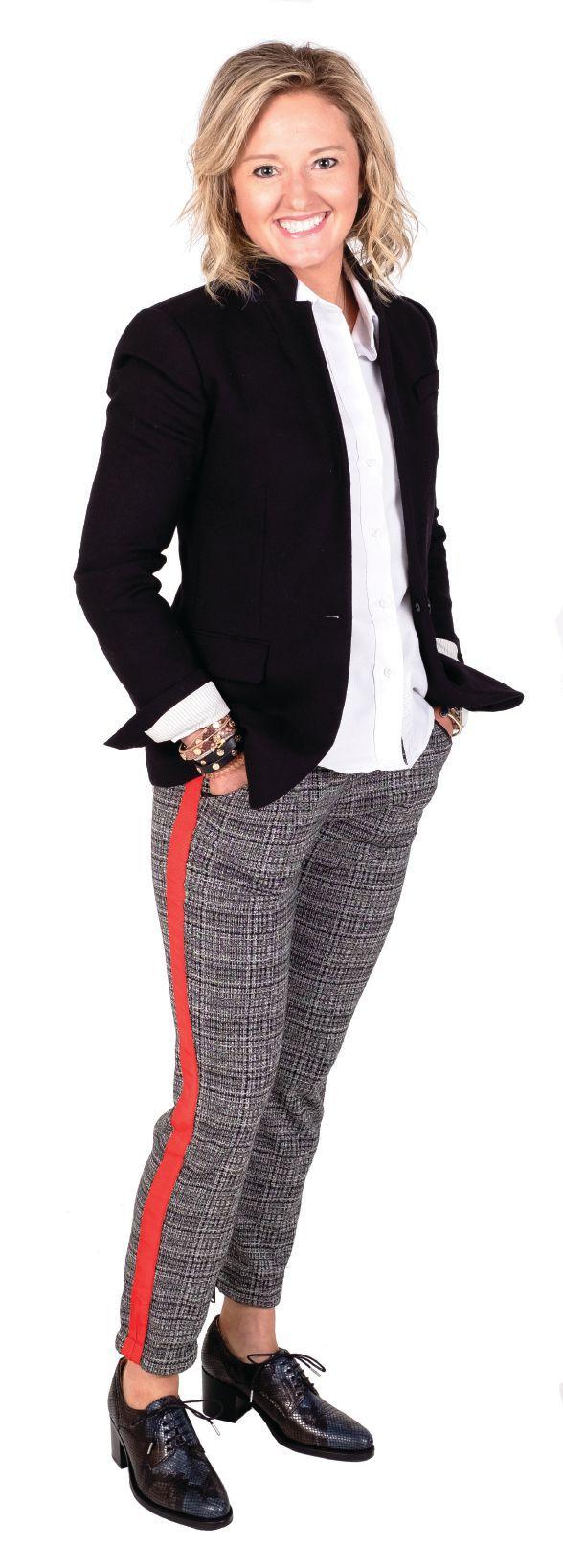
value for all your stakeholders,” Eisenman says.
Employees’ well-being is a focus of the firm. The firm allows flexible hours for personal needs. Satori provides biennial health screenings at $3,000 apiece. Staff members meditate before meetings. Health advisers, like Larry North and a chiropractor, make monthly office visits. Satori caters in daily chefprepared lunches, provides free flu and B12 shots, and a $1,000 annual allowance to purchase products related to fitness.
Executives and other staffers are known to work out together before the day’s start and to take walking meetings around the firm’s West Seventh offices. Employees receive 25 days of paid time off annually after the first year of employment. Satori, following a Never Stop Learning mantra, also offers tuition reimbursement for advanced degrees. Once a year, Satori treats employees to a Gratitude Dinner. Other benefits include health insurance, profit-sharing, and retirement plan.
“We’re in our second decade [as a firm], and we’re trying to build a firm that lasts in perpetuity,” Eisenman says. “We’re really in the first inning.”
Cami Miller Director,stakeholder experience Satori Capital
7 years with the company “Satori Capital’s purpose is to create, fund and inspire businesses that elevate humanity. As such, we want to lead the way by ensuring our own company serves all of its stakeholders well — and that certainly includes our outstanding team members. We do this by creating and nurturing a culture that supports the overall well-being of our highperforming team.”
What they do: Commercial construction
Employees: 40
Fort, a fast-growing construction company with 40 employees, does about $40 million to $45 million a year in construction projects and estimates it’s racked up about 100 projects, including recent ones for Cook Children’s, Lola’s Saloon, Fort Worth Camera, and a multifamily developer. Workplace flexibility is a big value for the company; CEO Scott Price notes he has three single moms among his employees.
“We encourage flexible hours so people can spend time with their family,” he says. Employees who need to take time off during the day to take care of kids can shift their schedules, completing work, for example, in the evening. “We don’t punch clocks. We get our work done. That’s how we do it.”
Relationship-building is a cornerstone of the company’s culture. The company provides opportunities for growth through cross-training, particularly with newly hired young employees. “They’re going to get time in estimating, field operations, project management, and field engineering. Then they can decide what field they’re most interested in.”
The company puts on regular social outings, including fishing trips and fish fries. It does a lot of work for nonprofits; recent work included a kitchen for Cuisine for Healing, nursery school for Lena Pope, and women’s health clinic. “I think people like to work on projects that help each other,” Price says.
Founded in 2005, the com-
pany has boosted its benefits in recent years. “We didn’t have health benefits the first four, five years,” Price says. Its lineup today includes 100% companypaid medical, long-term care, and short- and long-term disability premiums, and bonuses. “It’s the way to treat people,” Price says. “Our people get called on a weekly basis to go work somewhere else. It’s really competitive.”
Ashley Tinsley Marketing director/business development
Fort Construction
7 years with the company “It is an environment that promotes individualism, creativity, relationships and fun! Our leadership manages the company and staff with the utmost respect and pride. Another important factor is work-life balance. As a single mom of two boys, I can personally say this is one of the things I am most grateful for at Fort. I never feel as though I am being ridiculed or judged for needing to take care of personal things in life, and in turn, I don’t mind working after-hours or on the weekends whenever needed.”
5Fort Capital
Fort Worth
What they do: Real estate investments
Employees: 20
Fort Capital, the company that’s developing the River District — the West Side’s rapidly emerging urban mixeduse district off of the Trinity River — is moving away from ground-up development in the future. The firm and its investors have secured 28 acres near the River District and fronting the river and, this
Gena Attebery Loan administration officer Worthington National Bank
fall, are looking to bring on a developer as a partner.
“We are not going to do ground-up development” anymore, Chris Powers, the Fort Capital CEO and founder, says. “Our goal is to be a stew ard of the land and partner to a developer” that will put in retail, restaurant, office, townhome and multifamily development that comple ments the River District.
What’s Fort Capital interested in? Industrial, for one, with the continued growth of web commerce and the resulting need for warehouse and distribution space, Powers says. “The type of the devel opment we’re doing, infill, urban development, there’s people who do it very well. We’ve just found other ways to better use our time and investor dollars.”
Fort Capital, as it’s built momentum under the 32-year-old Powers, has built a straight-forward culture of accountability and ownership. Fort Capital has invested — $500,000 this year and likely the same amount next year — in technology that’s created better workflow and accountability and collects data on what’s working and what isn’t.
“We continue to put our peo ple first,” Powers says. “The more we give them accountability and ownership, the more the business moves forward.”
After two years of employ ment, all employees are eligible to participate in Fort Capital’s employee participation entity that offers equity opportuni ties in each project Fort Capital works on.
Fort Capital’s Leadership Team comprises rising entre preneurial leaders, and it meets bi-weekly and is mentored by the company's chief operating

officer. The team also attends a multiday, off-site retreat each year focused on leadership development.
Powers sends a weekly letter to the entire company, highlighting employees for performance. Fort Capital celebrates big team wins with company merchandise, catered breakfast and Friday happy hours. It throws surprise monthly recognition events. Fort Capital closes for an outing each quarter, such as the Colonial golf tournament, bowling, and a visit to the Fort Worth Stock Show & Rodeo. “For Fun” activities during the work day include sports brackets, health and wellness challenges and catered lunches three times a week. At year-end, the company throws a holiday celebration.
The company pays 100% of employees’ medical insurance premiums. It allows flexible hours for personal needs. The office has half-day Fridays twice a month, and Powers often announces surprise days off and extended weekends. The company also provides a concierge service that employees can use to coordinate services like dry cleaning, meal catering, child-care arrangements or automobile services.
Jenny Halford
Chief accountability officer
Fort Capital
2 years with the company
“Fort Capital’s company culture is unique in that it promotes a learning environment where it’s safe to fail. Employees are encouraged to fail fast, learn, grow and repeat — day in and day out. As someone who thrives in this type of environment, I have grown exponentially by being able to truly ‘own’ my work. The leadership team is always identifying
ways to enhance and add new employee benefits that encour age a balanced personal and professional life. The flexibility Fort Capital offers allows me to be the best employee, teammate, mom and wife I can be."
Fort Worth
What they do: Software
Employees: 23
MineralWare, a fast-growing software company, is so determined to win the Best Companies to Work For in Fort Worth competition by 2020, if not 2019, that it’s put a suggestion box in the kitchen of its new, airy, modern digs on the 12th floor of the Fort Worth Club Tower.
Suggestions the company has implemented so far: Xbox lounge in the office, to go along with the cold beer already on tap; half-day work from home the last Friday of each month; work from remote between Christmas and New Year’s, if not on vacation; lunch-andlearn sessions; spins of the “MineralWare Wheel of Fortune,” in which employees vie to go to lunch with three others on the company Fridays and then take the rest of the day off; logo merchandise; and office voting on nonprofits to be served with money and volunteer time.
MineralWare CEO and co-founder Ryan Vinson and chief operating officer Spencer Albright have nurtured a culture of trust and integrity in the company, which sells software and service that investors and institutions use to manage oil and gas interests. The company has 23 employees and expects to have 26 by year-end, up from 17 last year.

Briley CEO, founder Warren Douglas Advertising
The company’s core values are built on the acronym SERVE — service, excellence, relationships, virtues, and enthusiasm.
“The No. 1 reason why we’re successful is the level of service we provide to our clients,” Vinson says. “We’re here to serve our clients, but we’re also here to serve each other.”
The company, the Fort Worth Club’s largest tenant, is in its third downtown office, having outgrown the first two. The wide-open floor plan features lounges; “collaboration rooms”; “huddle rooms”; kitchen with bar; game room with Xbox, golf arcade game, and beer on tap; TVs throughout; and amenities like standing desks. The company pays for employees’ athletic memberships at the Fort Worth Club, it has four bikes that employees can use to move around downtown, and it offers group workout classes on Tuesdays.
Because it’s a software company, MineralWare ensures its employees are adequately equipped, handing a tool bag to each new hire containing a new laptop, AirPods, and MineralWare socks and water bottle.
Benefits include 100% health and short- and long-term disability premiums paid. The company’s also hit an incentive target it set in July 2017: reach $250,000 in recurring monthly revenue, and employees would be paid up to 50% of annual base salary. “We will be paying it out this year,” Vinson said. “We weren’t expecting to pay it out until 2020.”
Ian Withers ScrumMaster/developer MineralWare
1 year with the company
“As soon as I first set foot in the MineralWare offices, I knew I was in a special place. Every-
body made an effort to make me feel a part of the team from day one. I quickly learned this was the result of a culture that promotes teamwork, innovation and personal growth, while also encouraging a good work/life balance.”
Fort Worth
What they do: Community bank Employees: 55
In most companies, shareholders rank the highest in importance. “In ours, the employees are at the top,” Greg Morse, CEO of Worthington National Bank, says. Treat employees well, and they’ll treat customers well, he says. “We just treat our employees the way we want to be treated.”
Morse views the staff at Worthington’s four Tarrant County locations as a big family, with mutual respect a big value and an open line of communication to the CEO. “We run this place like a family.” One employee learned she had cancer and had a prognosis of six months to live. She went into treatment and stayed at home for several months, finally going into remission. “We still paid her,” Morse says. “If your kid’s sick, we want you to be at home with her.”
The bank works hard at maintaining a stable environment and not overheating during good times. “If we think we’re getting near the end of the cycle, we need to be getting ready for winter,” Morse says. “We try to be aggressive at being conservative.”
Benefits include a full slate of health, plus company-paid premiums for life insurance and
short- and long-term disability. The company gives time off with pay to employees so they can attend family events like school plays. The bank also pays for employees’ gym memberships, so long as they visited at least four times a month. Worthington’s also working on obtaining designation as a Blue Zones healthy workplace.
Morse is chairman and cofounder of Tarrant County Blue, which raises money for gifts to families of police officers, particularly when one has died in duty. The organization raised more than $70,000 for the family of the slain Fort Worth officer Garrett Hull.
Gena Attebery Loan administration officer Worthington National Bank 12 years with the company “In 2017, I was diagnosed with stage 4 cancer and not expected to live even six months. My coworkers at Worthington knew I needed their help to stay alive. They worked right alongside my family to help me recover and get back to a normal life. Two and a half years later, I am thriving at work and home because of the support from my coworkers.”
Douglas Advertising Fort Worth
What they do: Advertising agency Employees: 40
Doug Briley, founder and CEO of the award-winning, fullservice ad agency, describes the Warren Douglas culture as “high performance, but high trust.” Its values are built off of the acronym THRIVE: trust, humility, relevance, innovation, vision and excellence. “The advertising industry is not famous
for being humble or trustworthy,” Briley says.
The firm’s offices are in a historic building on West Seventh Street that once housed a Packard auto dealership. The company’s benefit package includes 100% employer-paid medical and long-term disability premiums; 401(k) match on employees’ contributions of up to 3%; and bonus of 2.5% to 10% of pay, both if the company meets goals; extra paychecks on certain work anniversaries; and tuition reimbursement. The company gives monthly stipends for employees to use on fitness classes, trainers or gym fees. And it gives paid time off to employees who volunteer during the work day.
The firm allows flexible hours for family and four-legged Fridays. Tuesdays and Thursdays, it brings in lunch for employees. The company throws parties for holidays and takes team outings, for one, to a Texas Rangers game. Every week, it hands out restaurant gift cards to employees for meeting or exceeding the core values. And it hands out an Employee of the Year Award annually during a holiday party at Briley’s home. Employees start with 15 paid days off and, depending on time with the company, can work their way up to 35 days. “The work in marketing is high-stress,” Briley says. “We try to make it enjoyable.”
The firm also allows employees to telecommute depending on their job. “If their role allows them to be productive by remote, then we will allow them to do so,” Briley says.
Doug
Briley
CEO,founder
Warren Douglas Advertising Founded: 1998
“Warren Douglas Advertising is an award-winning, full-service
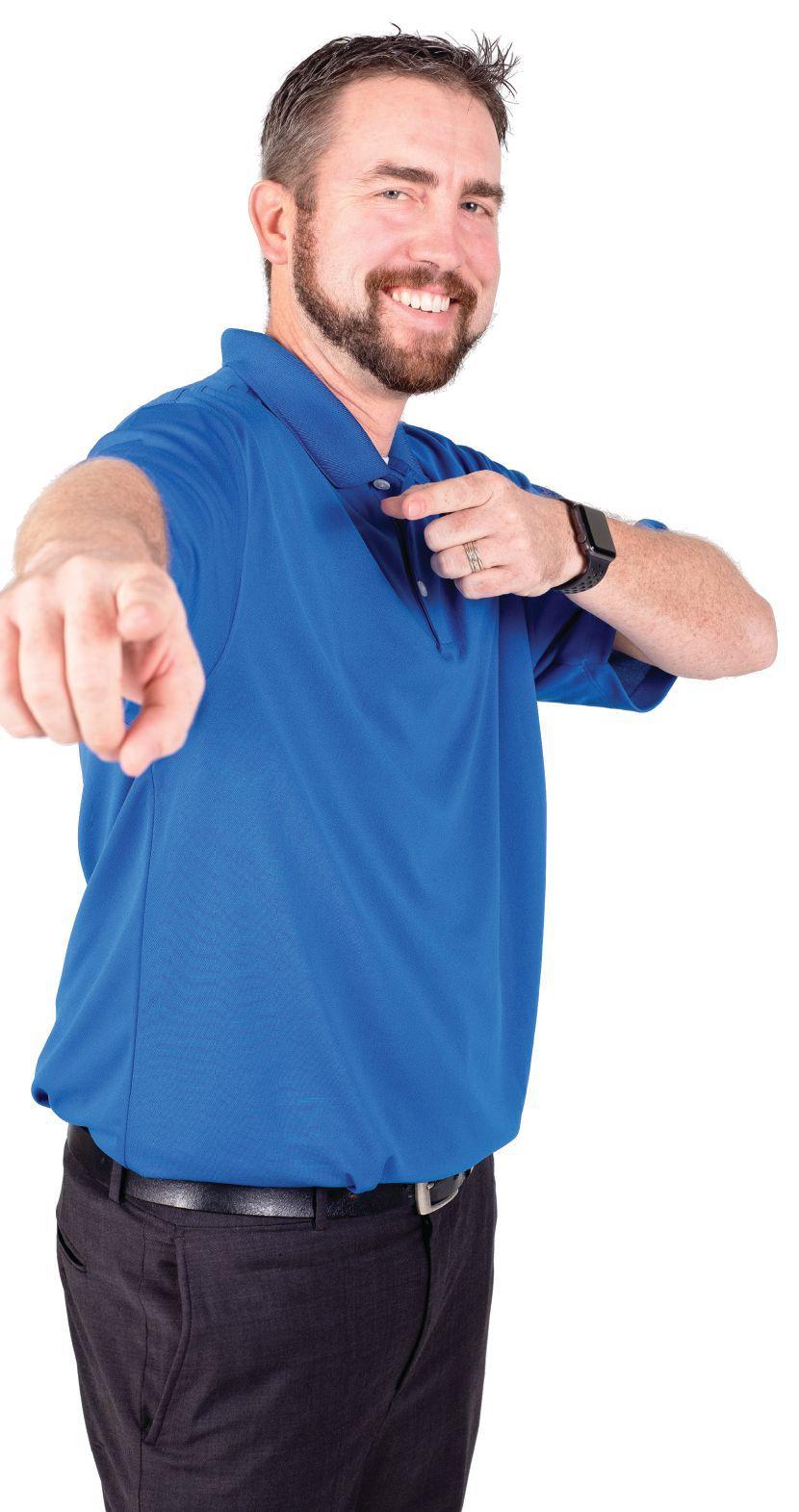
agency located in Fort Worth’s bustling West Seventh corridor. Occupying the building of the former Packard Automobile Dealership, the agency’s openconcept floor plan sits directly on the original showroom floor. This lends itself to a highly collaborative environment that encourages creativity and communication among people who share the same drive and passion for their work.”
Freeman
Fort Worth
What they do: Commercial and institutional construction. Recent project: Roanoke City Hall
Employees: 60
Steele & Freeman is one of several companies making a repeat appearance as a finalist in our 2019 Best Companies to Work For. The second-generation construction company, which does projects such as schools, municipalities, nonprofits, small retail and churches, doesn’t do bid work. Its jobs are fee-based and usually repeat business from satisfied clients.
Relationships are at the heart of the company’s success. The company operates from a set of 23 fundamentals that it pushes out to its clients and subcontractors. It pays its subs quickly to ensure their loyalty.
Steele & Freeman views its employees, clients, and vendors as parts of a big family. “We’ve got more work than we’ve ever had before,” Michael Freeman, the president, says. “It’s very important we keep that positive vibe going on.” The company has a $380 million backlog, and
“$190 million will roll in next March, May,” Freeman says.
“There’s so much work,” Freeman says. “You can easily go out and get more work than you can handle. We have a very high success rate of the projects we go after. The architects really appreciate our team. One of our fundamentals is blameless problem-solving. That’s what we do, problem-solving.”
The company has made room in the ownership for a total five shareholders, providing opportunity for senior leaders to take equity. The company offers flexible hours for family needs. Benefits include health coverage, a 401(k) match of 50 cents on the dollar up to 6% of pay, cash bonuses given out at weekly staff meetings for client feedback, end-of-year bonus, and a $300 annual voucher for company logo merchandise. The company’s on-site gym is available to family members on weekends. Employee socials include big fish fries, and outings include clay shoots and bowling.
Jared Jones
Senior project manager Steele & Freeman
Nearly 16 years with the company
“Almost 16 years ago, I chose to come to work for Steele & Freeman, Inc., and since then, I have not had to ‘work’ a day in my life. When I came for the interview, my first day and every day after, I have always had the feeling that this company was a family, but what makes this company great is that they care more about your personal family. Recently, we established 23 Fundamentals that our company wholeheartedly believes in, and one of our fundamentals is based solely around our family. Our Fundamental No. 9: ‘Family is Everything.' "
What they do: Sales training
Employees: 30
Jason Forrest believes there are three stages of development en route to becoming a great workplace. At a Stage 1 company, “an employee’s disposable” and can be easily replaced, he says. At a Stage 2 company, “we’ve got an employment contract. Every company has to have a Stage 2 foundational relationship. Most organizations don’t have that.” And in Stage 3 companies, “let’s create together. How can we work together?”
Forrest believes his own company, an Inc. 5000 fastestgrowing concern, is a Stage 2 company. “We have moments of Stage 3. Everybody here knows exactly what’s expected of them. You couldn’t be a Best Company if you weren’t at least a Stage 2.”
Forrest Performance Group provides proprietary sales training to industries like homebuilders, auto sales, furniture retail, luxury retail, technology, and commercial machines. Forrest estimates the company has $5 million in business it can count on for the next year. “I think we’ll end the next year at $5.6 million.”
He characterizes his company’s culture as “all-in,” inspired by military, college Greek systems, and church. “They all have the same characteristics: I’m here to do something bigger than myself.”
The firm provides extensive training and feedback to its employees and a structured roadmap to advancement. “We practice what we preach in our
sales training,” Forrest says. Accountability, trust, excellence, drive, and dialogue are what drive the company. “The mistake most companies make is they go on retreat, they come up with values, put them on the wall, and they never talk about them again,” Forrest says.
Benefits include employerpaid health insurance premium; long-term care and short- and long-term disability coverage; and 24 days annually of what Forrest calls “flexible paid time off.” Employees are given the lump sum of days off, and they decide how to use it, including what holidays they want to take off. “Create your own time-off experience,” he says.
The company augments its feedback with a 4 p.m. Friday happy hour dubbed “Friday Freaking Awesome Happy Hour,” where employees pour themselves a beverage and “validate” at least one other for good work.
Laurie McCullar HR and finance manager FPG
1 year with the company
“I’ve never worked for a company that’s so concerned for the growth and well-being of its employees. FPG manages to find the perfect blend between fun and challenge. The skills I’ve learned as a team member here have helped me grow not just as an employee, but as a person as well."
finalist in this year’s competition. The company continues its fast growth, making the 2019 Inc. 5000 ranking of fastestgrowing U.S. companies, with 2018 revenue of $27.3 million, up 1,409% over three years.
The advertising technology company, whose search platform helps direct web searchers to appropriate hotel sites, had 99 employees at the start of this year and has reached 150, Nicholas Ward, the company’s president, says.
The company, founded in 2013, has consistently remade its processes and systems as growth took off, Ward said. “It sounds painful, but it’s been fun.”
Along the way, the company has also begun developing its culture, settling on one of high performance and high accountability. “It also creates a very high-trust environment. We’ll power something like $20 billion in transactions this year,” about 2% of total global digital travel, Ward says. “That starts to sound really impressive.”
Values include integrity and empowerment. “We have to go beyond,” Ward says. “It’s the idea of constant improvement.”
The company now has six offices, in Fort Worth, Austin, New York, San Francisco, Ann Arbor, Michigan, and Dusseldorf, creating opportunities to employees to relocate or just try a stint.
company’s #KoddiTravels Instagram feed and the company’s internal Slack account.
The company’s expanded its family leave policy to allow 14 weeks maternity leave outside of the unlimited PTO policy and four weeks for dads. Ward counts 11 new babies born to Koddi employees this year, which he takes as an indication that employees are comfortable working at Koddi.
Caroline Bailey
Senior marketing analyst
Koddi
8 months with the company “Koddi surprised me – and it still does – because there are so many different backgrounds across the team: from former school teachers to social media influencers. The work is hyperniche, and we’re solving technical problems that haven’t been solved before.”
12
Sutton Frost Cary LLP
Arlington and Fort Worth
What they do: Accounting and auditing Employees: 42
Koddi Fort Worth
What they do: Ad technology for travel industry Employees: 150
Welcome Koddi, our 2017 small/medium Best Company to Work For winner, back as a
Koddi likes its employees to travel. It holds an annual employee retreat at popular travel destinations. It’s one of three Best Companies finalists on this year’s ranking with unlimited paid time off, but Ward says Koddi is rethinking that because employees aren’t taking enough time off. “You want them to take at least three weeks off,” he says.
Koddi gives gift cards to employees who post vacation photos of their travels on the
Sutton Frost Cary, an accounting and auditing firm, is big on providing work-life balance for its employees, being flexible for their personal needs, supporting employees’ leadership roles outside the organization, and helping its people grow personally and professionally.
One way the firm helps guarantee its employees can have balance: by staffing adequately, says Kim Crawford, one of the firm’s partners. Sutton Frost Cary has been growing 5% to 8% annually and recently added four new charter schools as audit clients. Nonprofit audits are a big
piece of the firm’s business.
“We’re really business, but we try to keep our staffing levels to where we can keep our overtime minimal,” Crawford says. “We try to keep our staffing levels up to provide a good work-life balance.”
She describes the Sutton Frost Cary culture as empowering, well received by the firm’s younger employees. “The biggest differentiator is our culture,” Crawford says. “We’re very much hands-off. [Employees] feel they have ownership. Young people really like that.”
The firm’s Fun Squad is in charge of planning social activities. In October, for one, the firm participated in a softball tournament, University of Texas at Arlington Accounting Society Chili Cookoff, and a community service day, where the employees split into teams and worked on a Habitat for Humanity project, at a food bank, and a school. “It’s great for team building,” Crawford says. “It’s my favorite day of the year.”
Benefits include companypaid health coverage, a 3% 401(k) match even if the employee doesn’t contribute, and six-weeks paid maternity leave.
The firm supports its employees in organizations such as Leadership Arlington and a Dallas arts leadership program to help its employees grow and get connected. Employees receive a 10% referral bonus if they bring in work. “We encourage them to build their networks,” Crawford says. “We encourage them to be involved in what they’re passionate about.”
Jennifer Guse
CPA, tax manager
Sutton Frost Cary, LLP
5 years with the company
“The field of public accounting can involve long hours and
lots of deadlines, but working at SFC is so much more than that. SFC genuinely cares about their clients and the people who work hard to meet the clients’ needs."
Haltom City
What they do:
Digital marketing Employees: 80
Qualbe, a digital marketing firm that sells dental insurance, has built an Inc. 5000 business by nurturing what CEO Randy Meinen calls a “No Drama, Mama” culture around “teachability and humility.”
Employees have grown to 80 today from 53 a year ago. The office runs like a big family, from the free healthy daily snacks available in the expansive kitchen to the encouraging notes pasted on the walls, game room and pickle ball court; Book Wars contests meant to encourage continued learning; and occasional all-hands building of bunk beds for the Sleep in Heavenly Peace charity. Some employees eschew standard office chairs for exercise balls.
Meinen describes the culture as “very intentional,” quoting the late Southwest Airlines chairman Herb Kelleher: “Hire for character, train for skill. You can’t train for character.”
Hiring is deliberate at Qualbe. It starts with a “3D” online assessment tool Qualbe developed and now sells called Talent Insights. “We really try to find out what kind of person you are,” Meinen says. Not that Qualbe is looking for identical personalities, but the information helps the company communicate and manage. “I would rather have an empty seat than the wrong person. We would rather go
slow. Once you become a best workplace, you have some come and seek you out.”
Qualbe seeks to nurture and encourage, handing out Rock Star cards to employees for performance, sponsoring an Idea Monkey contest for ideas, and holding book reading contests. The kitchen, stocked daily with fresh fruit and vegetables, is a meeting place, as is the game lounge where Qualbe holds pickle ball tournaments. The company runs events that bring everybody together, such as a family carnival with pie smashing and a Christmas party where employees plan the entertainment, like Battle of the Bands. The company’s benefits include health, short- and longterm disability and long-term care coverage.
Nick Krueger Product manager Qualbe Marketing Group 2 years with the company “As a midsized, privately held, founder-led company, Qualbe provides the opportunity to work directly with company leaders in the near-constant drive to innovate. A cultural touchstone is to never stop learning. Our cultural ‘mojo’ is a direct function of Qualbe’s founder and CEO, whose daily presence serves to inject the business with vision, enthusiasm, energy, and fun.”
14 Frank Dale Construction Southlake
What they do:
Commercial construction Employees: 30
Frank Dale’s office is filled with memorabilia from the days he coached his kids’ sports teams. He wants the same for his employees, and that’s the
kind of recruit he looks to hire. “I want the guy who comes to me and says, ‘I’ve been on the road for years, and I’ve got two teenage kids at home and my wife needs me,’” Dale says. Surest way to have your resume hit the round file is to tell Frank Dale you’re ready to leave your family to supervise construction jobs, he says. “If he’s not loyal to them, how is he going to be loyal to me?”
The company has 30 employees, consistent for years, Dale says. In recent years, he and his partner have brought in new key employees who set the company up for the future, Dale says.
The Southlake company takes commercial, health care and senior living, industrial and manufacturing and church construction jobs, and focuses on projects around the Metroplex that don’t require crews to stay overnight in hotels.
Dale makes sure his employees know they can take time off for family needs. “Our people come before the bottom line,” Dale says. “We challenge our group to be scout leaders, coordinate their youth leagues, be leaders in the church youth group. If they’ve got to leave work early, we want them to leave work early.”
Dale’s is one of three companies in the 2019 Best Companies to Work For that offer unlimited paid time off. Dale says it’s possible the company might have a vacation policy somewhere, but he doesn’t know where it is; the company doesn’t track vacation days, and he doesn’t care. Having said that, the work still has to get done. “We’re not going to close the job; we work it out,” Dale says, of staffing to cover work for employees who, say, want to
vacation with their families over the summer or holidays.
“We don’t have a vacation policy,” Dale says. “This is a long-hours business. Our field supervisors work 60 hours a week. I’m not going to let them get down to Christmas and not be able to take time off because you’ve already had your eight days.”
The company works to keep things light, with a fantasy football league, quarterly celebrations, in-office putting tournaments, clay shoots, and Dallas Cowboys game-watching parties. It also supports a charity that helps the families of construction workers who’ve died on the job.
Dale’s benefit package includes company-paid health premiums for employees and dependents, and companypaid short- and long-term disability premium. The company also has profit-sharing and tuition reimbursement.
The company operates in a highly-competitive market for labor, Dale notes. “We’re spending as much time finding people as we are work, which is a challenge,” Dale says. “Because all the good people have work.”
Fort Worth
What they do: Cancer support and navigation
Employees: 30
Everybody who works at Cancer Care Services, the only nonprofit among our 2019 Best Companies to Work For, knows their “why,” Melanie Wilson, the agency’s CEO, says. Nestled in a historic building in the Near Southside’s Medical District, the agency assists cancer patients, caregivers and survivors with
Mitchell Colston Research analyst Imperative 1 year with company
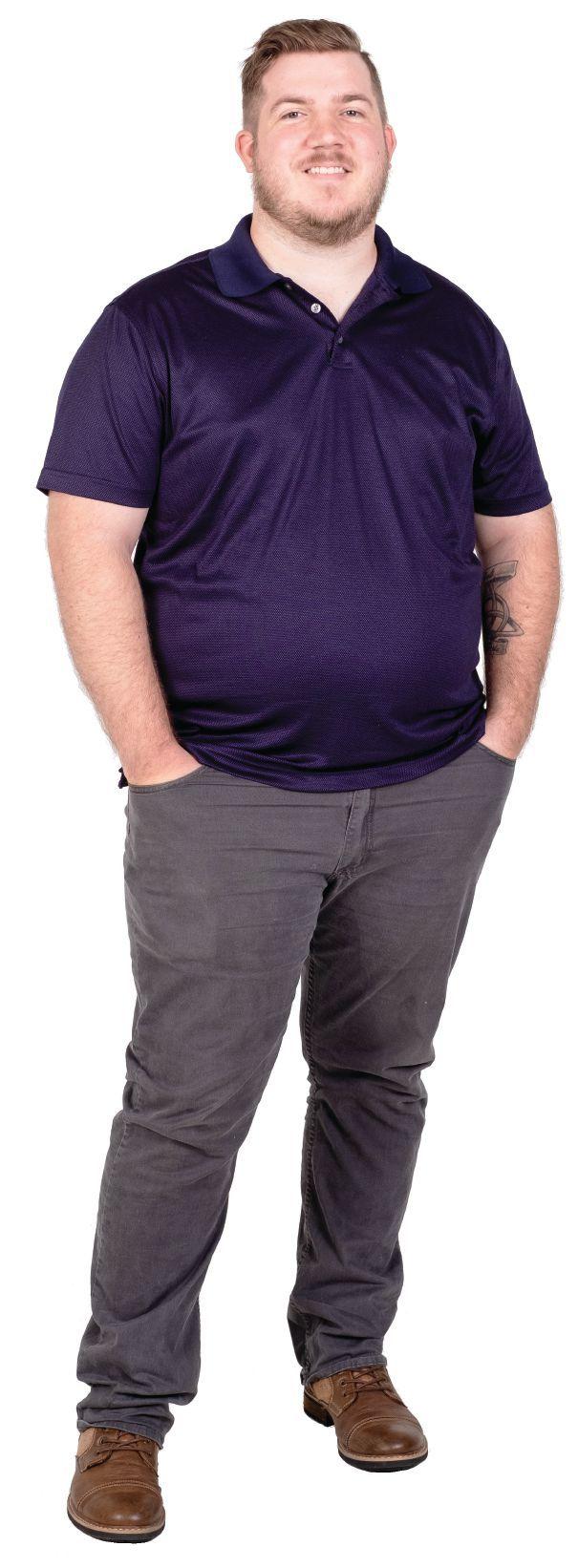
financial gifts, navigation services, counseling, wellness programs, and social support.
“Most of our staff has a personal connection to the mission,” Wilson, herself a cancer survivor. Wilson lost a daughter to cancer, and her husband and their other daughter are survivors. “Many of us are cancer survivors. Many of us have been caregivers. Everyone here knows their why.”
Cancer Care has 30 employees, including part-timers, and plans to launch an initiative soon to increase the social work staff by six, Wilson said. With the fragmentation of cancer and support, many patients, caregivers, and survivors don’t know where to turn for help. “We want to be the resource for cancer navigation and resources in the community,” Wilson says.
The agency, founded in 1946, has a $2.9 million annual budget, all funded by private gifts. Last year, Cancer Care served more than 4,200 people. “We’re on track to serve at least that number, if not higher, this year.”
The agency provides financial assistance to people who qualify for items such as supplies and equipment, medications, transportation, health insurance premiums, and nutritional supplements; case management support to help with estate planning, navigation for local and financial resources; counseling for individuals and families and play therapy for kids; wellness, including meditation, yoga, exercise, massages, and other education; and social connections.
Wilson structures the workplace to help relieve employees’ stress. Staff members work 30 minutes longer each day so they can leave at noon every other Friday. “Saturday and Sunday, they can recharge,” Wilson says.
“This is hard work.”
The agency’s benefits include health, long-term care coverage, short- and long-term disability, and a 401(k). The agency pays most of the premium for employees’ medical coverage and short-term disability, and 100% for long-term disability. The agency also provides yoga, meditation and massage therapy to the staff.
15 years with the company
“As someone who has experienced multiple cancer diagnoses and who is now a survivor, I know all too well the financial burdens and family stressors that cancer causes. Despite cancer, I was able to continue my education and am now the full-time counselor for Cancer Care Services! Working here has been a calling since the beginning.”
Fort Worth
What they do: Architecture Employees: 202
VLK’s principals spend a lot of time working on ensuring employees are happy, balanced in their lives, and challenged personally and professionally by their work. “We want people to do what they’re passionate about,” Sloan Harris, one of the firm’s partners, says. “We focus on that a lot.”
Every employee is assigned a fellow mentor/mentee from another department to work with throughout the year. “It really builds strong bonds with people who may not be interfacing with each other,” Harris says. VLK hosts regular chats between the agency’s
leaders and employees, including a monthly staff-wide Friday breakfast called the Fireside Chat. Its monthly VLK University meetings with staff revolve around conversations of lessons learned. The company regularly sends staff members to conferences. The agency ties everything to its core values, which include integrity, continuous improvement, honesty, quality, and personal growth. “There’s a constant dialogue from the top layer of leadership throughout the entire company,” Harris says.
The company has 202 employees, 62 hired this year. It has five offices, including the Fort Worth headquarters and offices in Houston, Plano, Austin, and El Paso. The geographic spread has broadened the pool of potential recruits and allowed opportunities for transfer, Harris said. The firm opened its Austin and Plano offices in early 2018, and both are tripling in size. The Fort Worth office has 85 employees, the largest. The Plano office has 34, including five who transferred from Fort Worth after the opening. The firm will likely reach 250-300 employees within the next two years, Harris says.
The company allows flexible schedules for personal needs.
“It’s an unspoken informality,” Harris says. “People have personal obligations that come up, and we will always be flexible if we can.” The company’s investments in technology ensure “you can do almost anything remotely that you can do here.”
Socially, the company uses vehicles like team and office happy hours, ice cream socials, Breakfast Fridays, and company softball teams to build esprit de corps. It puts the skills of employees to use on community service projects; employees in the Houston office, for one, par-
ticipate in a sandcastle build for charity.
Benefits include 100% of health and short- and longterm disability premiums paid, bonuses, and a $150 annual allowance for company logo merchandise.
“This is not just about generating architecture for VLK,” Harris says. “This is about happy lives. You only have one.”
7 1/2 months with the company
“I am a team member within a diverse group of talented, fun, responsible and supportive people who truly care for each other. I experience on a daily basis servant leaders empowering young and not-so-young new employees by taking the time to teach, encourage and affirm tomorrow’s servant leaders.”
Fort Worth
What they do: Construction cost estimation
Employees: 16
There’s something about an office where guests may be greeted by the two office dogs — Sunny, a yellow

lab, and Piper, an Australian cattle dog — before a human comes up. Such is the case for Construction Cost Management, a 40-year-old cost estimation company based in a historic building over the popular PR’s Saloon in the Fort Worth Stockyards.
Besides the dogs and the location, the 16-employee company is distinct for a diverse workforce that includes a growing number of staffers who aren’t from the U.S., the result of a recruitment pipeline the company has built with a program at the University of Texas at Arlington.
That’s meant a lot of employees who are young and don’t know Fort Worth, and who want to travel home for extended periods, or spend time with family who travel to the U.S., says Katy Abraham, the CEO and owner, who purchased the company in 2012 from her father. The company doesn’t have health insurance coverage for its employees (it gives a $500 stipend annually to subsidize employees’ related spending and covers flu shots), but it’s one of three firms on this year’s 2019 Best Companies to Work For that offers unlimited paid time off, a nod to the population of expats on the staff, Abraham says.
“Everybody has to work really hard to be gone for that period of time,” Abraham says. But the benefit is worth it, she says. “It’s important, especially for these young staff members. It’s also important if some of their families come here. You have to be flexible. We’re a small company, and we can be flexible with things like that.”
The company works for architects and engineers on major projects like justice, government, health care, science and technology, education, commer-
cial, industrial airports, historic restoration, water, railroad, utilities and civil infrastructure, and national parks. It’s often called in to consult on bids that require an independent estimate outside of the architecture and engineering firms.
The office dress code is decidedly casual. “It’s summer; we wear shorts,” Abraham says. Even though it’s at the clogged intersection of North Main and Exchange streets, it offers parking behind the buildings for employees.
The firm has a strong stream of business and is certified as woman-owned, a help on pursuing government contracts. “These certifications help market the team, but you still have to provide the best service,” Abraham says. “You can’t keep jobs with your certification.”
The firm puts on Fort Worth “bucket list” contests, monthly Taco Tuesdays, and pizza party contests for employees. It hosts a toastmaster’s club that employees can use to improve their speaking and presentation skills. With its ability to put documents in the cloud, employees who need to can telecommute.
The firm hands out bonuses based on performance, and at the end of each year, it makes a gift to each employee’s charity of choice. “When we do well, you do well,” Abraham says. “We’ve been able to give really nice bonuses the last couple of years.”
Construction Cost Management
2 years with the company
“My story started with CCM three years ago when I was searching for a summer internship. CCM is the first place where I was
introduced to the American work culture, and I cannot be more thankful to our president, Katy, for giving me this opportunity and start living my American Dream. As an international student, the CCM work culture was new and exciting. An open-door policy, direct access to senior management, continuous guidance and support from the team members have helped me become more than a cost estimator.”
Screening
Fort Worth
What they do:
Background screening Employees: 20
Mike Coffey, founder and CEO of the private investigations firm Imperative, likes to say he’s the background screening firm for anyone who can’t afford a cheap background check. Imperative works for a range of clients, from energy and health care firms to high net worth individuals.
“We cater to a specific client,” Coffey says. “We cater to clients who expect to get it right and make the right hire, and they want a certain level of service. We haven’t abandoned the human touch in the process. Most companies are using what they call AI. It’s not AI. They’re using screen-scraping software. In the margins, there’s all kinds of errors that a human would see.”
“Risk-aversion is the thing,” Coffey says. “And [clients] want it done white-glove, which goes back to the kind of employees we have to have here. If I miss 2% of the records out there, that 2% is as likely to be felony murder as misdemeanor.”
Imperative has 20 employees, and adds one to two per year,
Coffey says. The company last year purchased a new growth vehicle, a competitor that does background checks for clients seeking to hire nannies. “Most people in the industry don’t want that business,” Coffey says. “It’s high-risk. Nationwide, she was the nanny background check company.”
In the last two years, Imperative has brought in full-time information technology and marketing staffers. “My goal is to get rid of all these hats I wear,” he says. “Ultimately, all I want to do is think big thoughts and do the fun stuff I like to do.” Coffey is a frequent traveler on the HR speaking circuit, presenting on topics such as being a “Second Chance Employer” of people with criminal backgrounds. Imperative fosters a culture of teamwork, compassion and respect, and leads its job postings with its values. The firm cross-trains its employees in all disciplines, giving pay raises to employees who reach competence in different disciplines. Employees organize celebrations such as birthday parties and game nights. It gives employees flexibility to leave work to pick up their children and lets them make up the hours elsewhere.
Benefits include health and long-term care coverage, 24 hours paid time off per year to do volunteer work including chaperoning children’s school trips, 21 days paid time off after the first year of employment and accruing during the first year, 401(k) match up to 3% of employee’s contribution, payday catered lunches, and employerpaid self-defense classes.
The firm runs weekly gift card drawings for employees who achieve performance goals, weekly team meetings where employees can recognize each other for their work, and quar-
terly luncheons where employees are recognized. At Christmas, the firm makes donations to a needy family.
Mitchell Colston
Research analyst Imperative
1 year with the company “Everyone genuinely cares for each other and about their work. The management and senior staff care for the clients and employees equally, encouraging and creating respect from the employees. It perfectly encompasses the company’s core values of acting with integrity, working as one with compassion and respect, and acting in the best interest of the client.”
Weatherford
What they do: Air-conditioning and heating installation and service
Employees: More than 100
The 57-year-old, secondgeneration company, founded by Philip Hobson and now headed by his son, Brett, goes out of its way to treat employees as family. Company makes the first payments when an employee buys a new home or car. While Fort Worth Inc. was visiting one recent afternoon, the company presented four employees with ceremonial first payments on their new cars and another employee with the first payment on his new home.
“This is going to sound corny, but I take more pride when our employees buy something like that for themselves than if I bought it for myself,” Brett Hobson says. The company extended the celebration a little longer to accept an award from
a veteran’s organization for Comfort Experts’ lengthy track record in recruiting and retaining vets and current National Guardsmen.
It’s another passion of the company. “When you hire a veteran, you know they’re going to say, yes, sir, or no, sir, and if they say they’re going to show up to work on Tuesday, they show up on Tuesday,” Hobson says. The company makes substantial use of telecommuting and flex schedules to help employees manage obligations outside of work.
Hobson estimates 30% to 50% of office hours annually are put up by employees working from home, including all of accounting. “In accounting, there’s deadlines for everything we do,” Hobson says. “They may work hard for two days, and then they don’t work. I don’t care.”
The company headed in that direction when a valued employee put in her notice, Hobson says. “She had 10 reasons. I said, ‘What if we can work around five of those.’ It’s the best compromise we know of to allow them to fulfill two roles.”
The company also works a four-day week. Its HVAC techs go online to pick their own schedules every month, based on a formula that includes customer reviews, internal reviews, revenue and other factors. The highest-rated tech each month picks first, and so on. Comfort Experts’ benefit packages include 75% company-paid health premiums for employees, short-term disability and partially paid long-term care premium.

Jennifer Guse CPA,tax manager Sutton Frost Cary, LLP
The industry is short on labor, with HVAC techs making $50,000 to $100,000 per year, Hobson says.
“My real job here is recruiting people,” he says. That becomes more and more important as Comfort Experts, up 30% this year in revenue, continues to expand. “If we accomplish our goals, we’ll finish next year with about 165 employees.”
What they do: Distributor of commercial doors, frames, hardware, toilet stall partitions and doors.
Recent client: Dickies Arena Employees: 35-40
Willie Dubuis readily acknowledges the fact that the main reason he’s worked so hard to make his company a great place to work since he bought it a few years ago, beyond wanting it to be a positive place, was that recruits weren’t banging down the door.
“We’ve got to be good to our people,” he says. “We’ve got make sure they’re happy and content. Here’s some small companies that do a good job for their employees. You don’t need to go to work for a big company.”
The company also has its own trade school, training its own techs and ones for other
HVAC companies, another tool in its recruitment box in an industry where a candidate paying for his own HVAC education might pay up to $25,000.
Dubuis’ recent client list has included high-profile projects like the new Dickies Arena and Greek houses at TCU. Those kinds of relationships help project the sort of workplace that draws employees. “If you build those relationships, you don’t necessarily have to be the low-price guy anymore.”
Dubuis promotes a family atmosphere. The company’s
gone on a team-building outing to Topgolf and brought in a hot dog food truck for a company party. Dubuis’ door is never closed. “I’m here to help you do what you need to do. I get much of my work done at night.” But he maintains he doesn’t micromanage. “I don’t micromanage anything. If people trust their people, they’re going to trust you back.”
Dubuis also promotes flexibility in employees’ schedules. “I tell our people don’t ever be afraid to do something with your family,” he says. “Just go and spend time with your kids when they’re out of school.”
The company pays profitsharing bonuses, 100% of employees’ health insurance premiums, a substantial piece of short-term disability premium, and a 50% 401(k) match up to 3% of an employee’s pay. “It’s a lot of money, but you’re going to have to supplement pay somehow,” Dubuis says. “People are not banging down the door to come to work here.” Dubuis supplements the staff with temps, often hiring full-time help from the temp staff.
Elena Flores Sales University Building Specialties
6 years with the company
“I am proud to say I work for our company and am honored to be part of the family. I feel respect and valued for what I bring to this company. There is flexibility to attend to family matters if necessary. I get the freedom to make my own decisions and not feel pressured to conform.”
Haltom City
What they do: Distributor and retailer of safety footwear and related merchandise Employees: 85
Coleman McDonald flew F-16s for the Air Force for 11 years and was out of the service and a consultant for PricewaterhouseCoopers when the opportunity to take the helm of Work Wear surfaced. “My cousin was in the space and heard about the deal,” says McDonald, who took over as CEO in 2016 after financing the purchase through partners he organized. His cousin is co-owner.
McDonald entered the company and, using what he calls “fighter squadron mentality,” established a culture and mission where none was stated, based on integrity, selfless service, excellence and respect. “Everybody knew it in their heart,” he says. “They just hadn’t said it out loud.”
Work Wear’s target customers are employers that are required by the federal government to supply safety equipment to their employees.
Work Wear has 10 superstores in Texas, Arkansas, New Mexico and Colorado, and it also deploys trucks containing mobile showrooms to major work sites to sell to employees on the spot.
McDonald and his team have worked to deepen relationships with its employer clients, starting a fit camp to better train the Work Wear staff, and establishing processes to help partner companies understand what they need and what Work Wear can do for them.
Work Wear staff are in regular contact with the company’s
clients to schedule mobile visits, sometimes annually after the start of a new budget year. “They can just cross that item off the list of the sales director,” McDonald says.
Work Wear has added flexibility for employees, closing stores at 7 p.m. weekdays. The stores are also closed Sundays. Work Wear now

has a cloud-based information system, which makes work from remote possible, McDonald says. McDonald hosts regular dinners with employees, and the company hands out Wow awards for recognition. Benefits include health insurance, and short- and long-term disability.
The firm awards paid time off for employees who spend it volunteering. The company sponsors charities such as Hire Heroes, a veteran’s organization, and Operation Clean Slate, a charity that aims to help the homeless. But McDonald encourages employees to “go serve where they’re living.”
Renee Wright
Key accounts manager
Work Wear Safety Shoes
4 years with the company
“Work Wear Safety Shoes is a place where we all gather and do work that matters. It’s a big responsibility to make sure that workers return home safely to their families and not a task we take lightly. Like all jobs, some weeks we may see our coworkers more than we see our own families, so we like to make it fun. Being a part of something bigger is rewarding.”
22 Ardent Creative
Fort Worth
What they do: Graphic and web design,digital marketing
Employees: 26
Much has changed since David Carington and Brad Ball founded Ardent Creative in 2005. For one: the culture. Carington and Ball have worked to promulgate a fun, lighthearted work culture understanding of family needs, so much so they’ve assigned a staffer to be “culture girl” to be “champion for the company”
and infuse the wow factor into everything the company does. “We do not take ourselves too seriously,” Carington says. “It would be a stressed environment.”
That’s a change from years ago, Carington and Ball say, when they founded the company and weren’t forced to think about culture for a while later. “You learn how to have the culture you want by having the culture you don’t want,” Carington says.
“When you say family, you mean family,” Ball says. “If there’s something with family, they come first. You only have so much time with your kids. We want that for ourselves; we want that for our families as well.”
Employees also praise the bosses for going to bat for them with combative clients, to the point of giving up a client. “If a client yells at one of our employees, we have a conversation with them,” Carington says. “We don’t talk to our employees that way. If we don’t, you don’t.”
A number of the agency’s employees are in their 30s. The company allows flexible hours for family. It sponsors regular outings, including happy hours, dinners, lunches, and charity runs. Benefits include health insurance, retirement plan, and gifts of paid time off for performance.
Anna Lossau
Art director Ardent Creative
4 years with the company
“Ardent focuses on having a strong culture. We hire fit over talent, and we make an effort to make sure that people love being here. We are team-oriented and


strive to find the joy in our work because we really believe in what we do. From team-bonding activities like escape rooms or bowling to staff meetings that turn into a massive game of “Family Feud,” there is never a dull moment. We are one big family that lives on company-wide Chipotle orders and movies on Friday afternoons.”
Fort Worth
What they do: General contractor.Recent project: Seventh & University mixed-use Employees: 63
Principals Harold Muckleroy and Max Falls reached a point several years ago when they had to decide whether to steer toward their retirement or set the company up for a new round of younger principals, including Muckleroy’s son, Zach.
They chose the latter. The company today has a $120 million backlog, its largest ever, Muckleroy says. Three years ago, the firm was taking projects worth $1 million to $5 million. Today, it’s pursuing projects of between $5 million and $30 million. That’s created new opportunities for the firm’s younger employees. Two years ago, the firm had nearly 50 employees; today, 63.
“Large projects bring on new challenges but also bring on new opportunities,” Muckleroy says. “That’s a great opportunity for a young person to work with a more experienced person.”
To handle the growth, Muckleroy & Falls have purchased a building at 3200 Riverfront Drive
fronting the Trinity River, west of South University Drive, and expect to move out of their Clearfork headquarters next April or May. The firm will occupy about 10,000 square feet in the new headquarters, compared to the current 8,000, and the floorplan will be open, compared to the current more traditional. The new offices will feature a locker room and shower, so employees can use the Trinity Trail and shower and change in the office. The firm will retain ownership of their Clearfork building.
The firm promotes a family atmosphere, with regular events such as cookouts, cookoffs, and fish fries with bounce houses. Company outings include Texas Rangers games. The firm offers flexible hours for family needs. “We are understanding of others who need to do what they need to do,” Muckleroy says.
The company caters in breakfast for a monthly employee appreciation event. Employees receive a $250 annual credit for company logo Patagonia merchandise and 75% discounts on Apple watches through a partner. The firm recognizes birthdays, employee anniversaries and other milestones with a $250 merchandise credit at the company’s online store. The firm also throws a big annual Christmas party with gifts and bonuses.
Benefits include employerpaid health insurance premium for employees, long-term care coverage, short- and long-term disability coverage, and 401(k) match up to a 3% employee contribution.
Dustin Vardeman Project manager Muckleroy & Falls
3 years with the company “Muckleroy & Falls stands out as a great place to work due to the
‘win together’ mentality across the organization. The leadership team embodies our core values of loyalty, honesty, leadership and work ethic. As the company has grown, these values have remined intact.”
What they do: Construction contractor and real estate services.
Recent project: Texas Live! Employees: 70
Gerald Alley, who founded ConReal in 1979, has been working hard at setting his company up for its future. “Seventy-five percent of the employees were not born when we started the company,” he says. “The way we think, the way we do, we have to be a little different.”
The company, which partnered with Manhattan Construction on the Texas Live! project in Arlington, has set up an innovation technology department, looking at technology such as 3D, drone, and virtual and augmented reality to improve construction processes.
“Find something that makes us unique and something that makes us better,” Alley, the company’s CEO, says. “That’s where we’re trying to cultivate young people.”
Alley wants to apply those innovations to the company’s core construction business.
“What are we doing in our core business that we could make better?” says Alley, who recently directed the company project superintendents to give up their company pickups in favor of using rideshare services such as Uber and Lyft to move between jobs, reasoning the advertising exposure provided by the trucks
was insignificant. Con-Real split the savings with employees.”
In the case of using rideshare, superintendents can work on their laptops while in the car. “The byproduct is you get a more productive employee.”
One of Alley’s favorite core values: Be agile and willing to change.
The company offers office employees the flexibility to work from home. “We tell people you know what your assignments are, the goals of the project,” Alley says. “If you need to do things that require you to be at home, we’re very flexible in allowing you to do that."
Con-Real has 70 employees and works with 20 consultants. It offers cross-training and mentoring. Benefits include health insurance, short- and long-term disability coverage, 401(k) match of up to 2% of an employee’s contribution, tuition reimbursement plan, summer work hours, and annual family picnic.
Ashley Haley Con-Real
Building information modeling coordinator
1 year with the company “Con-Real is a great place to work because of its unique genetic makeup. We are an African-American-owned firm that embodies four different divisions. Program management, real estate, construction and the newly added innovation and technology division are what separate Con-Real from the rest. We have completed projects all over the United States. That will only grow extensively through the technology advances we are making.”
Legacy Mortgage, with generous benefits and a conservative style that’s preserved jobs in the competitive mortgage industry, is our top large company for the second straight year.
Let’s say this for Legacy Mutual Mortgage: It’s been highly flexible with workplace flexibility. It started when a staff member’s husband was transferred by his employer to Austin. She asked to be able to work from remote.
“She set the whole thing up and has been working from home for five years,” says Gary Linville, the Fort Worth office executive and former owner of a mortgage company he sold to Legacy, creating its local office.
Today, every staff member but one – the receptionist – works at least part of the week by remote. It’s a tradeoff the firm accepted given its business. “The nature of our business is calls on weekends, calls after-hours,” Linville says. “We’ve got to be connected and available. People are working contracts, and they need pre-qualification letters.”
Linville asks that every employee at least start the week on Monday in the office. “I think it makes a good kickoff to the week,” Linville says. “There are synergies everywhere.”
Legacy has 17 employees in the Fort Worth office. The
company’s San Antonio headquarters took some layoffs a year ago. “We were just too fat,” Linville says. But not the Fort Worth office. “I’m just pretty conservative by nature. We haven’t lost anyone out of this office for budgetary reasons. I try to do everything I can to avoid the shrink, grow, shrink. That’s a terrible problem in the mortgage industry.”
Work by remote requires trust. “To have a stable familyoriented environment, we have a lot of people who work from home,” Linville says. “It takes the right person to allow that.”
Legacy, for the research period covered by the 2019 Best Companies to Work For contest, had no turnover the prior year. “I think that flexibility is something that really helped with retention,” Linville says.
Legacy has a strong benefits lineup, including health insurance, company-paid long-term care premium, short- and long-term disability coverage, life insurance, bonus plan, retirement accounts with 100%
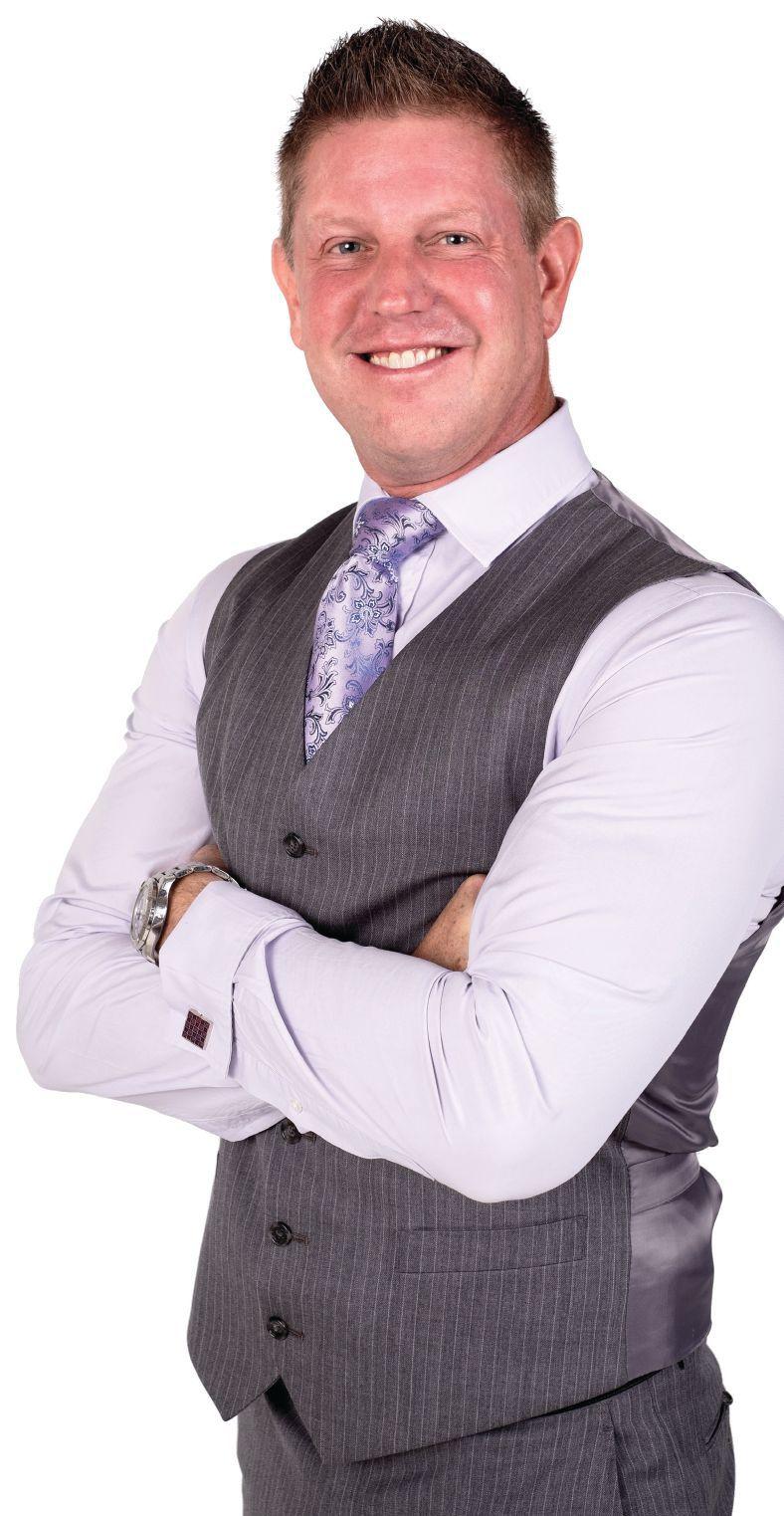
company match up to 6% of an employee’s contribution, home loan discount, discounts on merchandise and services available through a partner, $1,500 annual reimbursement to offset insurance deductible, and a $500 health savings account contribution to employees who choose high-deductible health plans.
Troy Turner Senior loan officer
Legacy Mutual Mortgage
8 years with the company
“Legacy has been my home away from home for a little over eight years now, after merging [with another firm] in 2011. I have been in the mortgage industry for a little over 20 years now and have had the privilege to work with many of my colleagues here in the Fort Worth office for almost 18 of those years. I consider everyone here my friends. The culture and atmosphere we have truly makes it a joy to come to work every day. As a company, we have some of the best benefits and perks, from a 6% 401(k) match to flexible work-from-home hours if you need it. I am asked all the time, what makes the loan officers at Legacy more successful? It’s simple. The mentorship, coaching, and willingness to help a fellow colleague in any way possible.”
What they do: Multifamily investments and management
Employees: 422, 125 North Texas
Aisha Hamilton has worked for OIympus for 15 years, first as a leasing manager and more recently as an operations specialist who helps consult property managers. “My job is to help out,” Hamilton, a Fort Worth-based employee who more recently has been working at an Olympus property in Tulsa. “You’ve got to have a heart for this, for helping people.”
Olympus, founded in 1992 and which owns and operates apartment properties in 10 states, nurtures a family atmosphere at its headquarters and properties. “Our first employee is still with us,” Chandler Wonderly, a principal, says.
Olympus brings all of its employees together for an annual holiday party. It shares corporate profits with its headquarters employees and shares profits from the proceeds of sales with employees at those properties. “Every employee is a de facto owner,” Wonderly says. Olympus is an active buyer and seller. “The portfolio is shifting to newer properties,” Wonderly says.
Benefits include health insurance, long-term care coverage, company-paid short- and long-term disability premiums, and college tuition reimbursement, including a benefit for employees’ dependents. Olympus partners offer financial planning, travel assistance and estate planning. The company sponsors an annual leadership conference to encourage

stated in the word ‘family’.”
growth. It recognizes employees through periodic shoutouts and rallies.
Aisha Hamilton Community manager Olympus Property
15 years with the company “Olympus promotes an amazing culture that embodies its core values. These values are the foundation which yields an amazing support structure, teamwork and professional development. For me, the concept of team is insufficient to describe what we have at Olympus; it is better
Apex Capital Corp. Fort Worth
What they do: Financial services for trucking industry
Employees: 286
Apex CEO David Baker is intent on providing a fun, inspiring workplace, so much so, he sought out and won an audience with the Southwest Airlines founder Herb Kelleher before Kelleher died. “It was an affirmation from somebody who
who counted,” says Baker, who met Kelleher at an Italian restaurant near Dallas Love Field, where he watched as Kelleher downed a glass of his favorite Wild Turkey and lit up a cigarette, even though the restaurant was no smoking. “I said, ‘I get my energy by coming into work.’ He knew exactly what I was telling him.”
Baker was 37 in 1995 when he founded Apex the day after Thanksgiving. He’d watched at a previous workplace as it cut 25% of its workforce and survived, but eventually left.
That’s part of what Baker considers his backdrop for learning why culture is important. “Work and having fun are not mutually exclusive,” he says.
At Apex, “we’ve got the having fun down,” he says. “But we’ve got to get the work done. The business we’re in is not a no-risk business. It’s a very competitive business. It requires a lot of energy, and you’ve got to operate at a very high level.”
Baker likes to manage by “walking around. You never know when I’m going to pop into a meeting or just sit down and talk to someone about what’s going on in their lives.” Apex does 360 reviews, where employees and the bosses review each other.
Apex celebrates its people in numerous ways. Benefits include health insurance, company-paid short- and long-term disability premiums, quarterly profit-sharing, and a $15,000 annual tuition reimbursement offer. The company sponsors family events, holds an annual Employee Appreciation Week with movies and free snacks, and offers lunchtime yoga and chair massages in the office. Baker calls it all “connectedness. It’s about the people.”
Mayra Tavera-Ledesma Auditor
Apex Capital Corp.
9 years with the company
“I was 19 when I started at Apex, and from my first moment, I knew that Apex was more than just an average company. One of the owners volunteered at my high school. He truly represented an important aspect of the core values of Apex, which is giving back to the community. He supported Junior Achievement, one of the many local organizations Apex actively works with. When I started at Apex, I thought, This is too good to be true. I enjoy coming to work — everyone is very optimistic, energetic, and I truly feel the meaning of teamwork!"
Burns & McDonnell
Fort Worth office of Kansas City company
What they do: Full-service engineering,and architecture
Employee owners: 7,000 total, FortWorth, 240 DFW
Burns & McDonnell, making a repeat appearance as a finalist on our 2019 Best Companies to Work For ranking, is enjoying another strong year in its DFW market. “We’ve sold $160 million of work this year,”
Scott Clark, vice president and general manager of the region, says. “We’ll eclipse our previous record” set in 2015. “We’ve got a really strong backlog.”
That’s all good for the 7,000plus companywide employeeowners of Burns & McDonnell, a company whose principals converted it to employeeowned under an Employee Stock Ownership Plan in 1986. A percentage of all employeeowners’ compensation goes toward stock gifts. The company also has a 401(k) plan.
“That creates a great culture where everyone works together,” Clark says. “We don’t have a lot of employees working past 55, because they don’t need to work past that.”
Burns & McDonnell’s clients notice, he says. “What we hear from our clients is no matter who we send out on a project, everyone we see on a project just seemed to care more. They run towards problems and get them solved. That’s what we hear from our clients.”
The company gives back through a $30 million foundation that throws off dividends that are distributed to each office, where locals decide what charities and initiatives to support. “We support a lot of STEM initiatives” in schools and science and history museums, Clark says. “We volunteer time. We try to bring sort of a practical application of what does an engineer look like.”
To foster camaraderie, the Fort Worth office sponsors happy hours, bowling tournaments, and Topgolf outings. It’s just installed a shuffleboard in the office. “We’re going to have a shuffleboard tournament,” Clark says.
Maria Ferraro Environmental scientist Burns & McDonnell
8 months with the company “Our employee-owned culture at Burns & McDonnell creates an entrepreneurial atmosphere where everyone has a chance to make a positive impact for our clients. I’m proud to work for a firm that delivers innovative solutions, invests in its employees and gives back to our communities.”
Fort Worth
Employees: 350
Freedom Powersports is about to put the finishes on what CEO Kevin Lackey calls “its best year ever,” seeing growth in revenue and earnings before interest, taxes, amortization and depreciation, even with margin pressure.
The company a few years ago slowed its aggressive growth of new stores to layer in needed infrastructure. Lackey’s still working on that. “We’re trying to get a lot of stability in the organization, investing in our people.”
The company’s been working on transparency and selling its vision. “We really have been working on explaining why we do this.”
Freedom’s in the process of refinancing its corporate debt. Additionally, Freedom this fall broke ground on a 35,000-square-foot store in McKinney that will replace an existing one. “It’s going to be a world-class facility,” Lackey said. “We’re leasing one to the south, but it’s old and worn out.” Also this fall, Freedom bought a competitor in Burleson and will merge a dealership in Cleburne into it.
Lackey has resisted opportunities to acquire other businesses to add to its 21 stores in Texas, Alabama and Georgia. “We have ignored opportunities to acquire other businesses,” he says. “We do want to grow again. We are teed up to grow again.”
Freedom has focused significant resources on training employees and building its pipeline of potential store managers. The pipeline was empty and one of the reasons the company halted its growth, because Freedom likes to promote from within.
Freedom is promulgating a

culture of individuality, entrepreneurship, discipline, no nonsense, fun, caring and people. It also wants its employees to know it’s a flexible workplace, particularly to the single moms who work for the company.
“We want to be a company of flexibility,” Lackey says. The stores are closed Sundays and Mondays. The company caters in lunches on Saturdays.
Nathan Hull
General manager
Freedom Powersports
11 years with the company
“I’ve worked in the powersports industry since 2006, and having worked with Freedom Powersports for over 10 years, I have been able to learn and grow in a great environment. The potential for growth within the company is unlimited and will continue to grow.”
Fort Worth branch
What they do: Banking and mortgage
Employees: 1,290 total, 51 Fort Worth
First Financial Bank Fort Worth is changing its marketing focus under new President Marcus Morris, and Morris is testing the changes’ impact on the office culture. The bank has ditched its pursuit of big customers, and the marketing expense that went with it, and instead is focusing on smaller community banking targets, Morris says. “Going head to head with Chase on downtown business, I’m not going to win that battle. Let’s find new groups of people who were not marketed to by everybody else and do well at those.”
One such group the bank is
pursuing: nurses, for deposits and home and consumer loans. The bank promoted two open houses with lunch this summer.
“We can directly point to business that day and the following days,” Morris says.
Women in business is another target the bank is interested in. “Let’s put on some events and let them tell their story as a woman business owner.”
Community service is another area the bank is rethinking.
For its annual fall service day this year, the bank was set to align itself with an elementary school on the Near Southside.
A bank employee with children at Western Hills High School on the West Side pitched Western Hills as in need of the help. Bank employees painted hallways and the concession stand at the school. And the bank is asking community partners it supports financially to also support Western Hills High School.
First Financial’s benefits include health insurance, generous profit-sharing, and tuition reimbursement for advanced degrees. The company has a number of employee recognition programs, including its Shining Star awards.
Courtney Cumbie Personal banker
First Financial Bank Fort Worth
1 year with the company
“The main reason I like working here is because I feel appreciated and valued as an employee. My coworkers really do a good job of letting me know when I am doing well, and they’re always offering assistance if needed. My branch manager lets me know that I am appreciated. It also helps to know that if anything unexpected comes up in my personal life, I can come to them and work something out.”







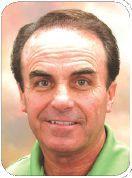

How the Better Business Bureau® protects consumers and fosters business growth.





Fort Worth was established in 1936 and has grown to be one of the largest membership organizations in Texas. Member businesses are referred to as BBB ® Accredited Businesses, meaning they have been vetted and meet the Standards of Trust required for accreditation. The iconic BBB seal shows consumers a business has been checked out and is a trustworthy business.
Much has changed since BBB first came to Fort Worth in 1936, but BBB’s mission has not. BBB continues to pursue the goal of being the leader in advancing marketplace trust. Though Fort Worth’s population has increased during that time — from under 180,000 to more than 785,000 — BBB has always partnered with business leaders in the community to highlight trustworthy businesses and expose those not playing fair in the marketplace.
With 83 years in the Fort Worth area, our roots here run deep — and are growing deeper. BBB purchased a building in the historic Near Southside, and we are thrilled to join the other businesses bringing new life to this neighborhood.
In the 1930s, Fort Worth’s economy relied heavily on the Stockyards. While cattle no longer dominate the Fort Worth economy, the spirit of Cowtown carries on through entrepreneurs running businesses big and small. And that’s where BBB comes in; we are here to support those businesses and help them grow with the city.
If someone could magically transport themselves from 1936 Fort Worth to 2019 Fort Worth, they’d see that much has changed. If that same person talked to BBB in 1936 and again in 2019, they’d see that, at its core, little has changed. BBB still holds fast to the values of excellence, integrity, teamwork, trust, and respect. We still stand shoulder to shoulder with community leaders and business owners to build trust. We envision a Fort Worth where buyers and sellers trust each other.
Of the 4,200 Fort Worth-area BBB Accredited Businesses, nearly 200 have been accredited for 25 years or more, which confirms that standards and ethics are important to the people of Fort Worth.
For us, excellence is an expectation. We are dedicated to continually evaluating the marketplace and adapting to changes so we can continue to provide valued services and benefits to businesses and consumers. From adding new benefits for Accredited Businesses, to educational programs, to competing for industry awards, we are committed to excellence.
We are proud and honored to be YOUR Better Business Bureau and neighbor in Fort Worth. We invite you to visit our new office at 306 W. Broadway. To engage with local events and learn important consumer and business information, follow the BBB Fort Worth Facebook page or reach out to our regional director, Amy Rasor. We’re here to help Fort Worth entrepreneurs build better businesses.
Respectfully Submitted,

Carrie A. Hurt, President/CEO BBB serving the Heart of Texas
With offices in Austin, Bryan, Corpus Christi, Fort Worth, Midland, San Antonio and Waco

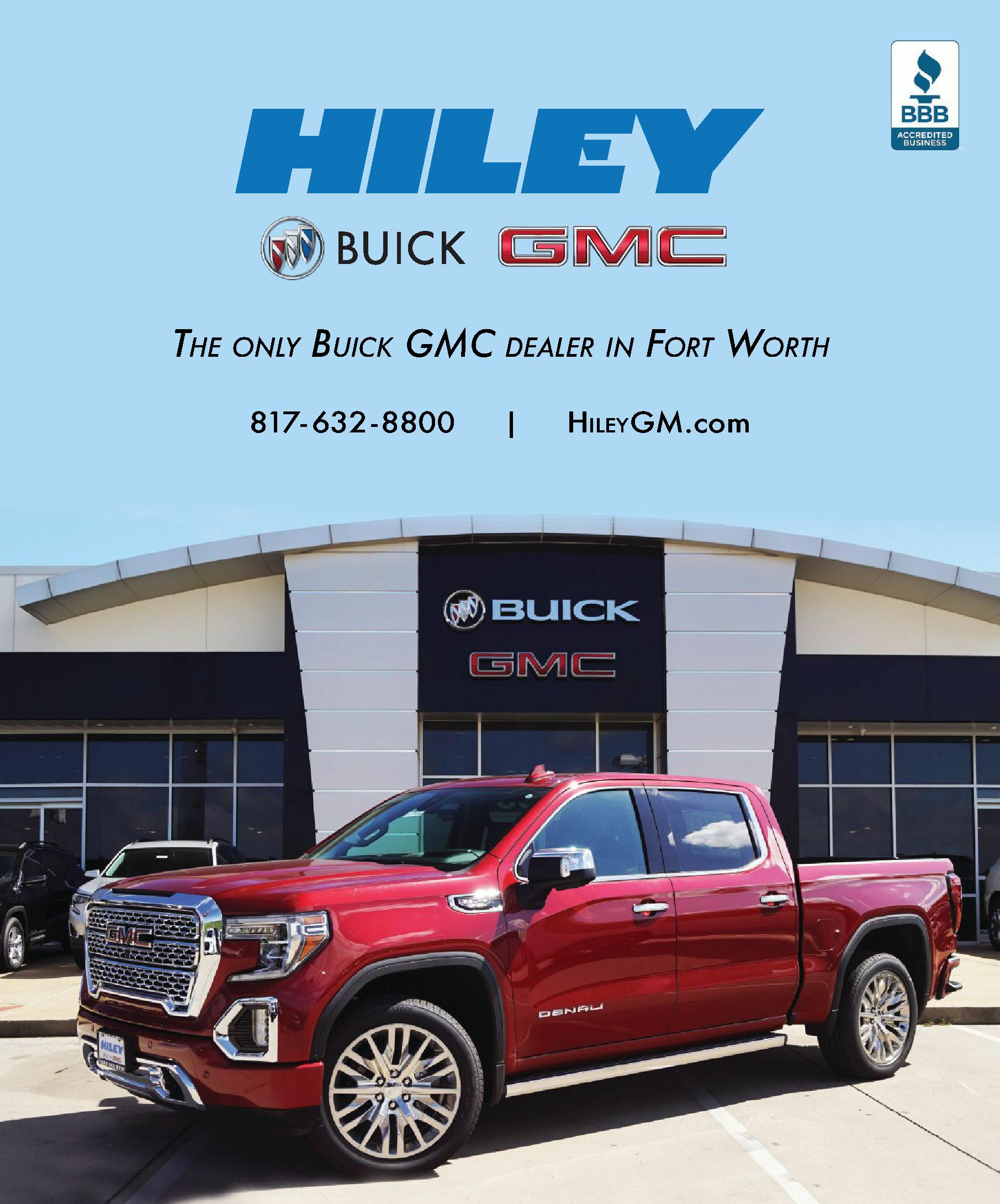

Programs and services offered by BBB have changed dramatically — especially over the past 10 years — and now include such cutting-edge business services as:
¡ BBB Business Profiles include reviews, letter grades, and that iconic BBB logo that Accredited Businesses can use on their own webpages and social media channels. Videos, photos and blogs can also be added to Accredited Business profiles. A strong online presence can boost business by making company information and services easily accessible to potential customers. BBB business profiles are a one-stop-shop for consumers and developing an informative profile can set a company apart from the competition.

¡ Request-a-Quote is a service that connects prospective buyers with BBB Accredited Businesses via text or email. Prospective buyers can request quotes from specific Accredited Businesses or from a random sampling of Accredited Businesses. The businesses are sent the prospective customer information as a lead for them to follow up with to provide a bid.
¡ The Review Solution App allows Accredited Businesses to ask customers for reviews via text message that gives customers the opportunity to provide immediate feedback. The review is then posted to the Accredited Business profile for other potential customers to
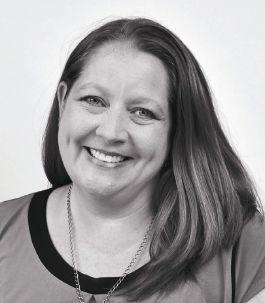
Amy Rasor, Fort Worth Regional Director
see. There is also an option for Accredited Businesses to elect for those reviews to be pushed out to other review platforms.
¡ Health insurance options through a new partnership with Aetna exclusively available to BBB Accredited Businesses with two to 50 employees. With savings of up to 25% compared to similar ACA plans, small businesses can offer benefits comparable to those offered by larger companies, which increases their ability to compete for the best talent.*
These are just some of the newer benefits of BBB accreditation, said Amy Rasor, regional director for the eight-county area, which includes Tarrant, Hood, Erath, Johnson, Parker, Palo Pinto, Somervell and Wise counties. “Since 1936, we’ve been part of this community,” Rasor said. “BBB Accredited Businesses know that they are accountable to meet and maintain BBB Standards for Trust and that’s something BBB hopes all businesses strive for.”
Rasor estimates there are currently 4,200 Accredited Businesses in the Fort Worth region. The cross-section of businesses represents the Fort Worth business community. You will see many major companies represented along with thousands of mom and pop shops. Among the region’s larger Accredited Businesses are familiar names like Colonial Savings, Alcon and Justin Brands. “We have businesses in this community that have been accredited for 45, 50 and even 65 years!” Rasor said.
At the same time, the regional BBB continues to grow, adding almost 400 new members between March and July of this year alone. Most new members are smaller companies, including the Appliance Repair Squad, Ramsey Roofing Co. and Teresa’s Event Staffing. “The entrepreneurial spirit is stronger here than anywhere I’ve ever seen,” Rasor said. “There is such a sense of community and taking care of each other here — and that includes the support of our local BBB office.”

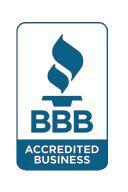

Accreditation with BBB, which can cost as little as $48 a month for a small business, includes a laundry list of benefits. Among them:
Use of the BBB Accredited Business Seal
This is the widely recognized, 107-year-old symbol of marketplace trust that Accredited Businesses can display on everything from company vehicles and storefronts to printed materials, websites and social media channels. It shows the community that your business has been reviewed and researched for adherence to the eight-point BBB Standards for Trust.
BBB helps businesses with their advertising by providing code of ethical principles, including transparency and honesty. Truth in Advertising is the foundation upon which BBB was built and promotes lasting and trusting relationships between businesses and consumers. BBB helps identify misleading, deceptive or untruthful advertising, enabling Accredited Businesses to compete on a fair playing field.
Last year, the local office added staff to act as one-onone customer engagement specialists assigned to each Accredited Business to help build better businesses. These team members help Accredited Businesses learn how to market their BBB Accreditation, set up and edit their BBB Business Profile, sign up for on-demand reviews with their customers, and help connect them with resources for all kinds of questions.
Here updates can be made to information displayed on the BBB Business Profile. Accredited Businesses can add videos, photos and blog postings — as well
as track your BBB activity and generate code for buttons that link your profile to your own website. BBB Business Profiles can also act as a website for smaller businesses that don’t have an online presence. BBB Profiles underwent a design enhancement this year that optimizes the user experience on mobile devices and makes them easier to find on Google.
BBB provides Accredited Businesses with a comprehensive look at the traffic received through bbb.org. These analytics show what consumers are interested in while viewing your BBB Business Profile. This is a great tool, especially for smaller businesses, because it helps them better understand their online footprint.
BBB provides professionals and field experts to speak to organizations at no cost and monthly lunch-andlearns cover a wide range of relevant business topics. BBB’s next lunch and learn features Best Practices in Digital Marketing, presented by Fort Worth-based, BBB Accredited Business Magik Digital. Follow the BBB Fort Worth Facebook page to find locations and times for upcoming speaking engagements and events.
A publication sent to Accredited Business mailboxes twice a year. It covers relevant business topics such as workplace health and safety, branding, automation and other content designed to help build better businesses.


BBB surveyed Accredited Businesses across the United States and Canada to find out why BBB Accreditation is important to them and the impact of accreditation on their communities.
Being accredited shows customers you care and:
Builds TRUST with customers
Increases the CREDIBILITY of my business Shows that we CARE about our customers
Adds PRESTIGE to my business
Supports the importance of BBB’s MISSION of advancing trust in the marketplace




The Fort Worth region is part of BBB serving the Heart of Texas. Headquartered in Austin, it has a service area of 105 counties in Austin, Bryan/College Station, Corpus Christi, Fort Worth, Midland/ Odessa, San Antonio and Waco. By merging with BBB serving the Heart of Texas, BBB Fort Worth got the best of both worlds – the ability to maintain its local presence with a growing local office while streamlining processes in human relations, accounting, IT and marketing. In fact, BBB recently purchased a permanent home for local operations. The move enables BBB Fort Worth to own rather than rent office space for its employees. “The decision to purchase a property after years of renting is our way of making a permanent investment in a community we care about and want to continue to be a part of as it grows and changes,” Rasor said. “Our eight-member, local advisory board wholeheartedly supported this investment.” The office is located at 304 W. Broadway and will host an open house for the community when renovations are complete.

In the past two years, BBB, serving the Heart of Texas, won multiple Outstanding BBB Awards in the areas of Retention, Dispute Resolutions, Accreditation Growth, Outreach, and Marketing. Additionally, it has won the Marshall A. Mott Award, which recognizes the BBB with the best overall communications, more times than any other BBB, including a win in 2019. The team has been recognized with numerous external awards as well, with recognition as one of the Best Nonprofits to Work For in the United States by the NonProfit Times among the most meaningful.
Other programs from BBB include outreach to military service members and young adults with education programs to teach about such things as scams that target service members and ethics discussions and video contests for students.
The BBB also educates local business owners on how to avoid scams targeting their companies. Here are some of the scams Rasor has seen impacting local businesses:
¡ Bank/Credit Card Company Imposter Scam: Scammers pose as your bank or credit card company and ask for personal information to verify your account.
¡ Directory Listing/Ad Scam: Solicitors attempt to sell ad listings you don’t need. Some listings are real but not widely circulated. Others don’t even exist.
¡ Fake Invoice/Supplier Bill Scam: Scammers send a bill for supplies never ordered. This is easy to fall for if you don’t pay close attention to invoices.
¡ Fake Check Scam: Scammers send a check and ask you to wire back part of the money. The checks look real but are fake.
¡ Tech Support Scam: Scammers call and pretend to be from well-known companies. They claim there are problems with your computer and ask you to pay for unneeded services.
¡ Social Engineering/Phishing Scam: These scams start with a phishing email that seems to come from a trusted source and then they trick the target into giving up confidential information.
¡ Charity Scam: Scammers choose a name that sounds similar to a reputable charity and convince you to donate, then disappear with your money.
¡ Worthless Problem-Solving Service Scam: Scammers claim to be able to fix problems many businesses have and charge up-front fees for their services, then disappear.
¡ Government Agency Impostor Scam: Scammers posing as government agents threaten your business, and trick people into paying them for non-existent problems.
¡ Vanity Award Scam: Small businesses and nonprofits receive emails saying they’ve won an award and are asked to pay for their personalized plaque.
Source: BBB Fort Worth



Consumers are the other big benefactor to a healthy, active BBB, said Amy Rasor, regional director for the eight-county area BBB.
A BBB Business Profile provides consumers a plethora of information, which includes a rating grade from A+ to F, a grade that depends on several factors but mostly involves complaints and how businesses respond to them. The profile shows customer complaints and the company’s response to any complaints if provided. In addition, the BBB Business Profile includes contact names, phone numbers for the business, customer reviews, years in business and other facts about the business and its services.
years it has been an Accredited Business. In addition to providing basic company information for consumers, BBB works to root out bad apples in the local business community by handling complaints by consumers for no cost.
“In the Fort Worth area, we were able to verify about 7,600 complaints in 2018,” Rasor said. BBB only accepts complaints between businesses and consumers. BBB does not address complaints about the workplace, wages, employment or other issues not related to the purchase of goods or services, she said. “Our goal is to help businesses see complaints as opportunities
For consumer convenience, a Requesta-Quote feature is on the page. Consumers can outline what service or goods they want and request a contact by that company via email, phone or text.
The Business Profile also designates which companies are accredited with BBB. Currently, in the Fort Worth area, there are about 4,200 businesses that have earned accreditation. This designation allows consumers to know if the business has been through the rigorous accreditation process by BBB’s team and how many
to make improvements to their processes,” said Rasor. “There is a good reason consumers, businesses and regulators respect BBB. We have earned the trust of the marketplace by working cooperatively with all parties to reinforce good business practices and assist people in finding solutions.”
Of the Fort Worth area total, only 12 complaints went to the highest level of BBB customer service — mediation or arbitration. That means most complaints were settled and closed long before reaching that level, Rasor said.
Among the complaints that can’t be easily solved are scams rather than a direct marketplace interaction between a business and consumer. All told, BBB complaints indicate that Fort Worth-area consumers lost more than $20 million to scams in 2018.

Among the complaints received about businesses in the Fort Worth area, 78.46% were resolved, Rasor said. The most common complaint categories were:
1. Car Sales
2. Banking & Loans
3. Insurance
4. Builders
5. Property Management
6. Roofing
7. Auto Repair
8. Movers
9. Furniture
10. Restaurants
To file a complaint with a local business or check out their BBB Business Profile, go to bbb.org/us/tx/fort-worth or call 844.222.4968.
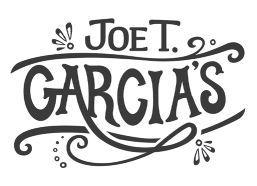





We reached out to some local BBB Accredited Businesses to learn why accreditation is important to their business. Different types of businesses often find the benefits valuable in different ways, and we wanted to hear from three very different industries about their experiences with BBB.
Mark Titus learned why people joined the BBB from friends at a business event.
“When I asked them about the BBB and why they thought it was important to their business, they shrugged their shoulders and said with a laugh, ‘That’s what had always been done,’” Titus said. “I have since found out the BBB has changed with the times to keep their programs and services relevant; it is not your father’s BBB anymore. The BBB has recognized that their new customers are the sons and daughters of the businesses seeking accreditation many years ago, and they are creating new ways to support the next generation of businesses.”
The vice president for Fort Worth-based Telesys Voice and IT Services, a network and technology management company, Titus said his company joined the local BBB in 2009 to strengthen their brand. “We wanted to align ourselves with a standard of trust in business. The BBB is an organization that has been upholding the standards of trust in business for over 100 years.
“In our business, transparency and trust are important. Customers need to have a trustworthy partner for their IT and technology needs,” Titus said. “Our company values these things, and we found we could identify with the BBB brand.”
Started while in college in his parents’ garage, Gary Hunt built his tech support company from the ground up, Titus said. Now, Telesys Voice and IT Services has more than 2,000 clients in Texas — from floral shops to law firms — as well as several national clients. The company is now a partner for Dell, AVAYA, Netgear and Microsoft, as well as a carrier consultant to help clients find the best telecom, Voice over IP (VoIP) and broadband provider for their business needs.
After a company completes the accreditation application, BBB experts get to work to ensure the company meets BBB Accreditation Standards, which include a commitment to resolving complaints and advertising honestly. After becoming accredited, BBB continues to scrutinize the businesses to make sure they are living up to the organization’s standards. “It holds you accountable,” Titus said. “We want our customers to know that.” Not all companies qualify, and for those that don’t, BBB works with them to improve their practices to foster an ethical marketplace.
Beyond the seal, Titus said the BBB has helped his company reach new clients. On the company’s BBB Profile, Titus can easily upload photos, videos and blogs to help his clients understand their technology better. “We can upload a tutorial on why to have a recovery plan for your files or how to use our IT help desk,” Titus said.
Another new BBB feature he uses is an app that will send a link to his customers enabling them to write a review that is placed on their BBB Business Profile. This can then be populated to the company website and added to other social media platforms like Yahoo, Facebook, Google and Yelp. “It adds to our presence online,” Titus said. “It’s a terrific resource for a service company.”

Joe T. Garcia’s list of previous patrons reads like a who’s who of celebrity diners. They’ve served four presidents, Bob Hope and Elvis, Cowboys’ quarterback Dak Prescott and golfer Tiger Woods, Willie Nelson and Van Cliburn, and Barbara Walters and Dan Rather.
But don’t let the list intimidate you; this Mexican Restaurant is a Fort Worth icon that opens its doors to all, sitting on an entire 1 1/2 city blocks off Main Street near the Stockyards. Next Fourth of July, the restaurant will celebrate its 85th anniversary with, what else, a giant party open to the public at the massive restaurant that seats 1,300. A family restaurant lasting this long and being passed down through generations is rare in today’s marketplace. Values and ethics are at the center of great service. The BBB Standards of Trust are alive and well at this popular establishment.
E. Kory Stafford Founder/President & CEO
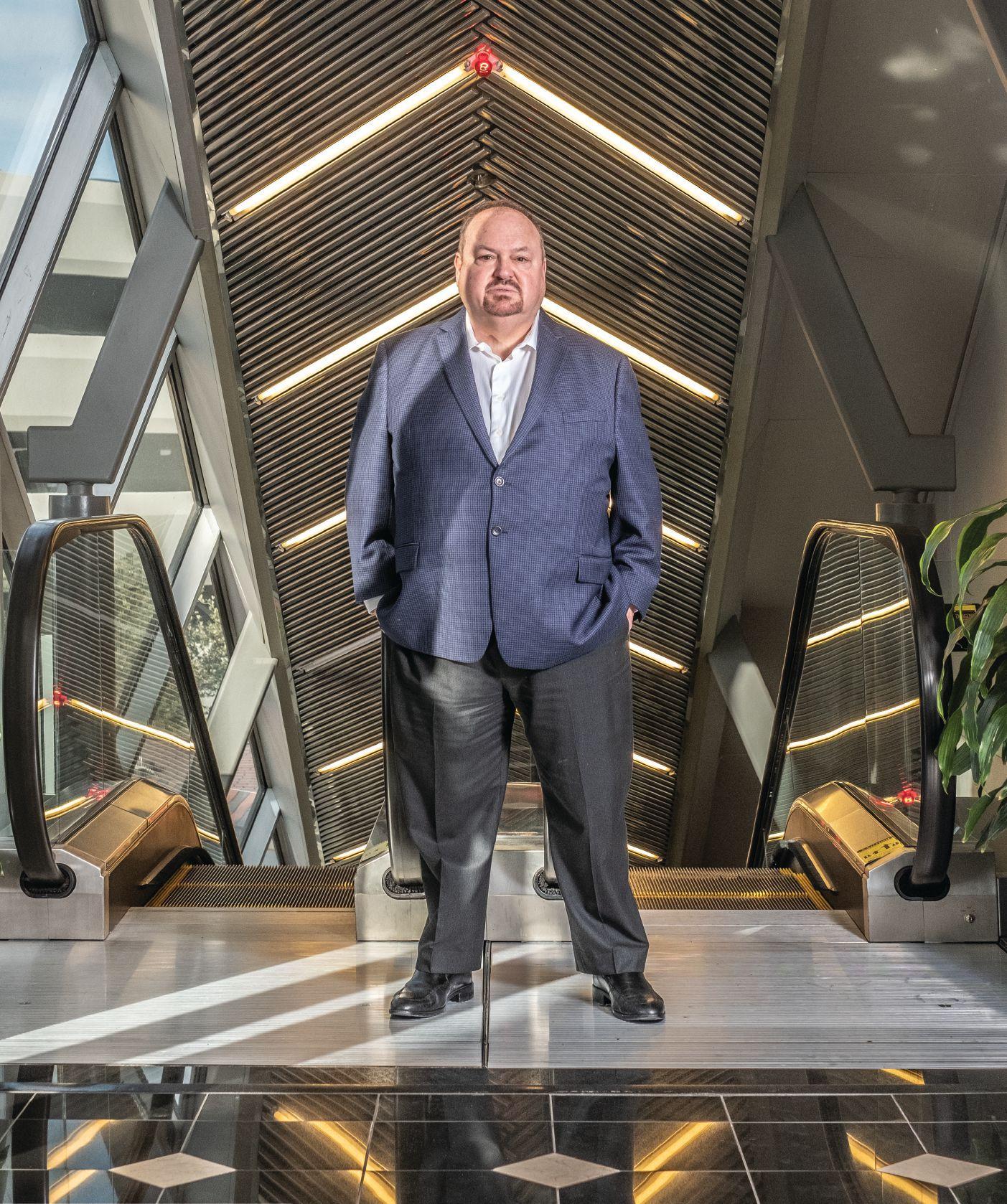






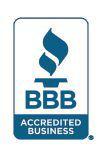

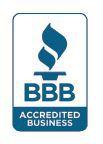
“The restaurant business is tough — we shouldn’t be open,” laughs Jody Lancarte, great-granddaughter-in-law to the founders Joe and Jesse Garcia. “We don’t take credit cards; we serve two items at night; 60% of our seating is on a patio in Texas.”
Jody’s husband, Lanny Lancarte is third generation to Joe and Jesse Garcia and co-owns Joe T’s, as the public affectionately calls the restaurant, with his five siblings, Elizabeth, Joe, Phillip, Jesse and Zurella Lancarte. Jody attributes some of the success of the restaurant to family participation from 1935 onward. “The family has always been so involved,” she said. “We now have the fourth generation working here and family from ages 18 to 70.”
In 1935, Joe T’s was one small dining room that seated 16. In the 1940s, a back dining room was added that seated 60. Then, in the 1970s, Lanny expanded the restaurant to the spacious restaurant it is today, including that huge patio. The wait to get in can last up to 2 1/2 hours during the busy spring months, Lancarte said.
The 1970s also brought lunch and a second dinner item to join its enchiladas — fajitas. “With this big a production, we had to keep the menu simple,” Lancarte said. The restaurant employs 240 to keep it promptly serving and great service is essential in this industry. Joe T’s has been a member of the Fort Worth BBB for 43 years. “I love the people that work there,” Lancarte said. “They are so easy to work with. If they get a complaint, they are on top of it. You feel good about having them there.” When a Fort Worth destination like Joe T. Garcia’s is an Accredited Business for so long, it shows they value accreditation and are an example for other businesses in the industry to aspire to.
The BBB accreditation for the Original Mattress Factory on East Vickery is dated 2012 on its BBB Business Profile, but president Peter Duncan Jr. is pretty sure when his grandfather ran the company, he was a member as well. This company goes back — way back — in Fort Worth, starting in 1896 when Duncan’s great-great-grandfather, Harry Keeten Sr., began selling mattress supplies and upholstery products at the same address Duncan owns today. Fast-forward four generations, and Duncan has turned the thriving wholesale business on its ear by offering mattresses built at the Vickery factory directly to the consumer with prices around half of what mattresses typically cost going through a retail middleman. The concept spread like wildfire, and Original Mattress now makes more than 10,000 custom mattresses a year, shipping them as far away as Alaska and Canada.
Nothing surprises the TCU graduate anymore about his avid
customer base. “We had a doctor who flew in from New Orleans to purchase a mattress from us. He came to the factory, picked out what he wanted and flew out later that day,” Duncan said. Great service and ethical business practices build loyalty with customers. Values like this are what set BBB Accredited Businesses apart from the competition.
Anyone who has spent any time mattress shopping knows it is usually an onerous process. It’s difficult to know whom to trust and how to pick out an item you may use for up to 15 years. Reviews help consumers make decisions about which businesses to choose.
A review by Mary Robb on Original Mattress’ BBB Business Profile can help give shoppers peace of mind: “The Original Mattress Factory offers exceptional customer service with no sales pressure like other mattress stores I have experienced. My husband and I were blessed to deal directly with the owner, Peter Duncan, think thirdor fourth-generation owner. No wonder it’s been so successful for so long as prices and service are great!”
Another benefit Duncan provides is adjusting the firmness level if the original product doesn’t work at home in its first 90 days. “People love that warranty,” he said. Being transparent and honoring promises are requirements for BBB Accreditation and warranties are a perfect example of how to follow through on those promises. Having the BBB seal on its door and website shows people can trust his company, Duncan said. “We have a very confused industry as far as the public is concerned,” he said. “The internet isn’t making it easier, with young people wanting to buy sight unseen a bed in a box. The BBB seal helps us distinguish ourselves from the rest.”
BBB helps people find and recommend businesses, brands, and charities they can trust. People today are overwhelmed with choices – and often unsure about where to find verified, unbiased information. There are more than 30 million businesses in North America alone; and hundreds of thousands of sites around the world where people shop online. There are thousands of free and subscription websites that offer a range of information, including reviews, reports, directories, listings, and gripe sites. BBB is the one place you can find it all. Connect with your local BBB office to learn how to be a better business and to find businesses you can trust.




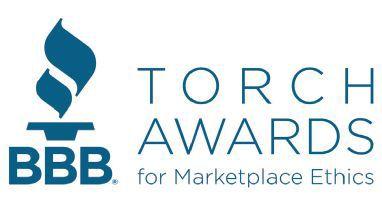


1-10 employees category: Scan Mailboxes, Austin region
11-20 employees category: PentaVia Custom Homes, Fort Worth region
21-40 employees category: LAM Technology, LLC, Fort Worth region
41-60 employees category: Ascend Marketing, Fort Worth region
61-99 employees category: Comfort Experts Inc., Fort Worth region
100+ employees category: Jon Wayne Service Company, San Antonio region For more info, go to BBB.org
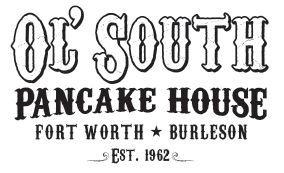
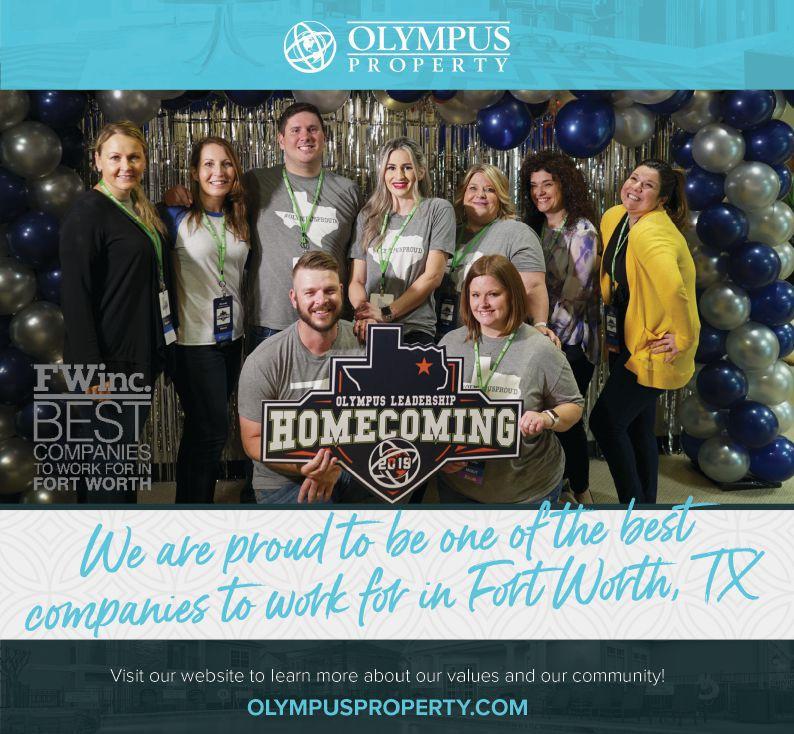



We are looking for those entrepreneurs whose vision, creativity and integrity have made Fort Worth the premier place to do business. Fort Worth Inc.’s Entrepreneur of Excellence Awards showcase and honor the contributions of exceptional entrepreneurs in the following areas:



Frank Starr, maverick North Texas oil man, faced down his big challenge when prices plunged in 2014. How? Perseverance and ability to weather the storm.
BY JASON FORREST / PHOTOGRAPHY BY OLAF GROWALD
For Frank Starr and Crimson Energy, 2014 was both the best and most-trying year of the company’s now 21-year history. Starr is one of the true maverick oil men of North Texas, and he helped build the Fort Worth-based Crimson Energy on daring risk-taking. Since founding the company in 1998, Starr has created and then sold three different oil companies for what he estimates to be a total of somewhere between $250 million to $300 million. But as any oilman can tell you, the ability to turn those companies into profit-driving machines is dependent on a few critical factors.
Perseverance and an ability to weather the storm of fluctuating oil prices are chief among them.
Starr was well established in North Texas by 2014 when he sold a company built from the ground up for a third time that year. Starr’s business model has been
How did Frank Starr survive plunging oil prices? Please watch Jason Forrest’s video interview at fwtx.com/business
as simple as it’s been successful: Put in capital up front, drill wells in lucrative areas, multiply the value of the business, sell high after three to five years, rinse and repeat.
Even within a model that’s never yielded less than 2.4 times the original investment, 2014 was a bumper crop. The sale yielded more than three times the initial investment in the company, and Starr was riding high.
Then, around Thanksgiving 2014, oil prices plummeted from $90 a barrel to $24 just as Starr was building the fourth iteration of Crimson Energy. All of a sudden, Starr and his group were faced with a true run-towardthe-roar moment.
“The oil industry is an incredibly capitalintensive business,” Starr said. “Every well we drill is $5 million to $5.5 million. You have to make sure you can get a return on that. And you’re looking for something where you can grow it and get multiples on your money. It just takes work. It’s constant work to improve your processes and your business.”
doesn’t represent the real danger. Likewise, humans sometimes have an instinctive desire to shy away from pursuits that look and sound scary. But often, running toward those challenges and conflicts is the best (or only) way to grow and meet our goals. In business, those who run from the deafening noise never reach their full potential, while those who turn and face the fear thrive.
In 2014, Starr was faced with that moment, one of many since he stepped out in faith in 1998 to create a company with a business model that had yet to be widely adopted in the field.
“The oil industry is an incredibly capital-intensive business. Every well we drill is $5 million to $5.5 million. You have to make sure you can get a return on that. And you’re looking for something where you can grow it and get multiples on your money. It just takes work. It’s constant work to improve your processes and your business.”
– Frank Starr
Sometimes the safest place to be is the one that feels the scariest. Lions — with their intimidating teeth and deafening roars — are designed to provoke fear. But the real danger lies with the smaller, quieter lionesses. In the animal kingdom, the lion’s job is to roar and send prey scattering away from the startling noise — right into the path of the waiting lionesses, the true hunters. If gazelles knew to run toward the frightening sound, they would have a better chance of survival. The roar
So, Starr and his group started pouring their own money into the company as investors let the market stabilize. It took them two years of effort, faith and perseverance before Vortus invested in 2016 and the company got back to a normal pace. Since then, Crimson Energy continues to pile up momentum as they look toward the future, which always seems up in the air in the oil and gas industry.
“It’s all a team effort,” Starr said. “It’s all of us together that makes it work. I had a dream, and I had faith to accomplish my dream. There were some really dry spots. You just keep working through it and make good decisions, and treat people fairly and be honest with people. If you work hard and pursue your dream, things work out. We’ve gone through cycles of oil prices being high and low, and when it’s low, you hope you’ve got an equity partner that stays with you, and you do
your job of going out and drilling wells and persevering.”
One area where Starr is most proud of Crimson Energy is the workplace environment. Crimson Energy employs 14 full-timers and 10 contract workers in the field, making it a smaller, more agile company in an industry with multiple billion-dollar behemoths. The leadership team takes pains to make sure everyone is celebrated and rewarded, even in the more difficult moments.
Starr believes that workplace intimacy is what has made Crimson Energy so successful over its more than two decades of life. Even in a slightly depressed market, as it is now, Crimson Energy continues to make waves in the industry and has firmly established itself as a serious player in a crowded field.
“It’s just about treating people properly and well,” Starr said. “I learned all that from my father. I worked for his business from the time I was 9 years old, cleaning toilets. I just worked my way up. A lot of the things I have are things I learned from my dad. You look back at your life and the people that have touched it, and things you learned at the time you didn’t even realize you were learning until you had to go deploy them, and you realize the importance of all those people.”


Teneo’s Hana Laurenzo, taking advantage of increased globalization, offers translation in 150 languages through a network of 1,500 freelancers she runs out of her Fort Worth headquarters.
BY TERESA MCUSIC / PHOTOGRAPHY BY OLAF GROWALD
Thanks to globalization, the business world is shrinking. That’s good news for those who translate like Hana Laurenzo, owner and CEO of Teneo Linguistics Co. in Fort Worth. The Prague native moved here to follow her husband in 1999 after she had created a successful translation company in the Czech Republic. She re-started her business in 2007. Today, her company employs 12 people in Fort Worth and 1,500 freelance translators, reviewers and terminologists around the globe. Teneo Linguistics offers more than 150 languages and grew 40 percent last year. Laurenzo, 48, speaks five languages: English, Czech, Russian, German and Slovak.
Always a Challenge
Out There “We offer 150 languages, but we’re always adding new ones. We had a customer call and say ‘I called everywhere, and I can’t find anyone to do this language.’ I’m thinking the way entrepreneurs think — oh, challenge! So, I ask him the language, and he says, ‘Dhi-
vehi.’ It’s spoken in the Maldives [the island nation south of India]. So I said, ‘Let me see.’ It was an agency of the federal government that mitigates risk. They needed the translation for user manuals for airport scanning equipment and training manuals. We found the five translators in Dhivehi. I tracked them down through a newspaper story and emailed the journalist to find them.”
Texas Speak More than Texan “There are only about 300 languages where you could buy a textbook and learn from them. The Census says North Texas alone is home to over 70 different language minorities. People have the impression it’s Spanish or nothing else. Think about if you’re an employer in the area, you have workers who speak other languages, and you need to translate things like training manuals, safety instructions. Our largest customers are international, but there’s enough going on in our own backyard here for me to provide translation and interpreting services.”
Pharma Sweet Spot “Life sciences is a huge vertical for us; we even have a separate life sciences division. Let’s say you have a new X-ray machine, and you get a customer in Germany you want to sell it to. Nowadays, by law, you have to translate everything about your product into all languages of the EU in order to be approved to sell. You’re talking more than 20 languages you must translate in. It needs to be done well, and there’s always new versions, new editions.”
I'm
much more likely to buy and be interested in your product. Even if they speak excellent English.”
thinking the way entrepreneurs think — oh, challenge!
Google Translate “I would not use it in business in general. We had a client selling a conditioning product online in Germany, and Google translated it to air conditioning. After we fixed it, they began selling. Another problem with Google Translate is everything you put in the search window ends up in the public domain. It can be reproduced, used and modified.”
Why Translate? “We in the U.S. have somehow been conditioned that traditionally English should be the language of business around the world. Today, there are still people who wonder why they should even translate. So here is why: Psychologically, the sweetest sound to anybody’s ears is the sound of their mother tongue. If you present your information about your company service or product in someone’s mother tongue, they are immediately
Accelerator EO Member “I started about five years ago as an accelerator member of EO. Accelerator is the program in EO intended for people who had not yet broken the $1 million revenue mark. So, they need to have more than $300,000 in revenue, but not yet $1 million. The purpose is to help them get to the $1 million level. I graduated from the Accelerator program 1 1/2 years after that and became a full member.”
If your business isn’t ready for sale to an ESOP, it might not be ready for sale at all. BY
CHRIS LUCAS, OWNER, LUCAS VALUATION GROUP, LLC
Great wealth has been lost by business owners who built successful businesses but failed to prepare them for sale. Selling to a company-sponsored ESOP creates many advantages for small-business owners, but the most important may be that it requires extensive preparation. These preparations solve problems that jeopardize sale to an ESOP and ones that jeopardize any business sale. Whether the owner sells the business to an ESOP, the reduction of business risk that results from preparing the business for sale to an ESOP increases its value.
Common risks that jeopardize successful business sales include:
• The owner is too integral to the operation of the business;
• The customer base is too concentrated;
• The business’s financial statements are in poor condition;
• The business has unresolved tax issues;
• The owner has unrealistic expectations regarding the value of the business. These problems are so common that 70% to 80% of businesses are unsellable. When
a business closes after a failed sale effort, its value is lost forever.
Reinvesting Business Income in Management to Create Business Value
It is normal for business owners to be very involved during the early stages of their business’s life cycle. When the business has matured, excessive involvement of the owner in day-to-day operations is less good because 1) it may distract the owner from pursuing opportunities for growth or other value creation and 2) it reduces the owner’s quality of life away from the business. And it increases the likelihood no successor has been groomed to take over the business. Without a viable management succession plan, sale to an ESOP is impossible, and sale to a third party is also likely to fail or will be made at significantly reduced value.
and
In the game of running a business, financial statements are the scoreboard that tells whether the business is winning or losing. If a company’s financial reports appear unreliable, prospective investors may lower the value they might otherwise have
been willing to pay or even walk away. Reliable financial systems are critical to optimizing a business transition.
I recently appraised a business for a seller who failed to invest in a good accounting system. As a result, he was unable to document the discretionary nature of certain expenses that he had run through his business. He had created a valuable business and was able to sell it for a significant sum, but his inability to document the discretionary nature of these expenses cost him $1 million from the initially proposed sale price.
Taxes also require significant consideration in a business sale. If the business is sold to an ESOP, the sale transaction will involve selling the owner’s equity interest to the ESOP. If the business is sold to a third party, it is more likely that the buyer will purchase the assets of the business rather than its equity. The difference between these types of sales can have a significant impact on the amount of federal income tax the owner is required to pay as a result of the sale.
I recently appraised another small business that was organized as a tax-paying corporation. The owner did not seek tax advice prior to agreeing to sell the assets (not the stock) of the business to a third party.
The business owner was horrified when he realized that the transaction resulted in significant tax bills to his corporation and to himself. As a result, his federal income tax bill was double the amount that it would have been had he performed careful tax planning prior to the sale.
Selling a business requires extensive preparation and good counsel. Consultation with CPAs, with their specialized knowledge of tax, accounting and other financial disciplines, should be the starting point in the sale planning process. Ideally, business owners should start this conversation two to three years prior to the target sale date.









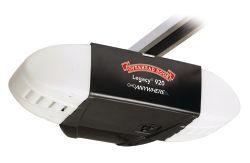

Success in real estate is not about luck. Have a plan.
BY LEAH DUNN, MEMBER, BOARD OF GOVERNORS, SOCIETY OF COMMERCIAL REALTORS
Having owned a successful brokerage since 2005, I am often asked by less-experienced agents how to become a top producer in real estate. I wish there were a simple one-sentence answer. Unfortunately, I cannot produce one. Success is different for all of us, in both our professional and personal lives. Some individuals define success in terms of status and wealth, while others believe it to be advocacy in support of their community.
No matter how one defines success, if you are going to survive in this very unpredictable and ever-changing business climate, there are several fundamentals that one must come to understand.
Success is a mindset.
Napoleon Hill, author of Think and Grow Rich, says, “The starting point of all achievement is desire.”
Reaching your goal requires a deep yearning to make your vision of success manifest itself.
• Define your vision of success in your own
mind. Be detailed. Declare a time frame for completion — reaching your goal.
• Purchase a journal. In the first half of the book, write down your vision and all the details — including dates, times, names and contact information. Include positive affirmations such as “I am happy because success comes to me now in various ways through multiple sources on a continual basis.” In the second half, write down all your successes that have manifested. Read your journal aloud every day, as often as you can.
• Create a vision board. Clip pictures, words and symbols that represent your vision and post them to a cork board or poster board. Place it somewhere where your subconscious mind sees it every day.
• Share your vision with another person who is willing to hold your vision in his or her mind. There is great power when two or more individuals concentrate together on a shared vision.
Success is a verb, not a noun.
No matter your definition of success, you must be willing to take action. I have
never once witnessed a top-producing agent sitting on the sidelines, waiting for something to happen. Plan your work — and work your plan.
• Be consistent. Top producers do the same things every day with little exception — lead generation, meetings and follow-ups.
• Be sensible. Build your sphere of influence around people whom you know and whom you can help and, in return, can help you. You are creating customers for life — not for a moment in time.
• Be prudent. Block your time — it’s your most precious commodity. Make sure every activity or task you perform is moving you closer and closer to your vision. Organizing your office, checking emails, and surfing social media are not income-producing activities. A “busy” agent — is a broke agent. Do not be delusional about hard work.
• Be kind. This is a tough business, but it doesn’t have to be heartless. “Doing unto others as we would have them do unto us” should always be our motto. Successful agents treat everyone who is a party to the transaction with kindness and empathy.
• Be courageous and self-assured. Not every day is a win, but it doesn’t mean that you’re not winning. You cannot have success in real estate without inevitable failure and rejection. However, how you handle these situations is critical. Don’t be afraid to fail but rather, embrace it and learn from it. And know this for a fact: You will experience rejection. It’s not personal; it’s just part of the gig.
Here’s some timeless advice — Thomas Jefferson was frequently quoted, “I’m a greater believer in luck, and I find the harder I work, the more I have of it.”
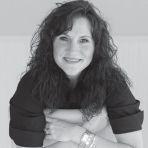
Leah Dunn is writing this column for the Society of Commercial Realtors, a regular contributor to Fort Worth Inc.
CEO on KERA invites you to the table as renowned journalist Lee Cullum interviews prominent chief executives from North Texas and beyond. Go to explore leadership styles and ethics. Go for insight into what makes companies successful. Go for the engaging conversation. Go Public.
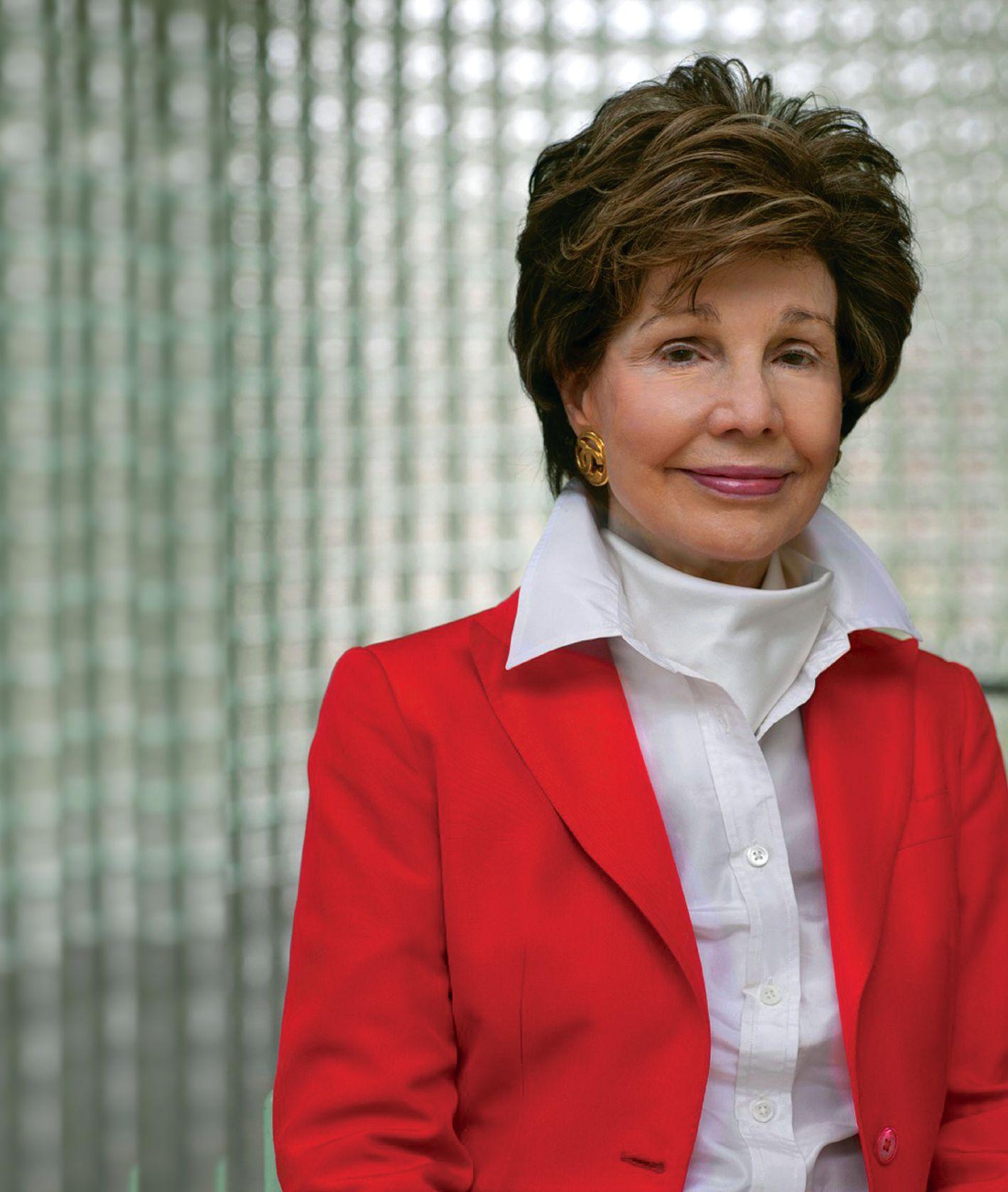
HOSTED BY LEE CULLUM
FULL SCHEDULE AT KERA.ORG/CEO
BY JARRED HOWARD, SENIOR VICE PRESIDENT, FORT WORTH CHAMBER OF COMMERCE
Fort Worth’s venture capital ecosystem has nurtured, grown and yielded spectacular results.
One quick example recalls how entrepreneur Bill Burns received $4 million from local investor network Cowtown Angels, Bios Partners and eight other local investors to help launch Encore Vision at the business incubator TechFW in 2008. Burns’ work on an eyedrop to treat a vision problem, presbyopia, which affects over 1.8 billion people worldwide, caught the eye of Swiss giant Novartis AG. In 2017, Novartis bought Encore Vision for $465 million. Some observers estimated a payout of roughly $800 million. The drops are expected to hit the market soon.
a blip on the venture capital ecosystem’s radar: startup microenterprises and small businesses with fewer than five or 10 employees, counting the owner, and focused on a wide array of pursuits from restaurants to boutique retail and small manufacturing.
There’s one business sector that’s too small to create a blip on the venture capital ecosystem’s radar: startup microenterprises and small businesses with fewer than five or 10 employees.
There are many examples of how local angel investors are fueling entrepreneurs’ advances in fields ranging from consumer products to medical technology and life sciences. But there’s one business sector that’s too small to create
Microenterprise and the gutsy dreamers who create and run them comprise much of the business community in Fort Worth and across the U.S. Nearly 90% of U.S. businesses employ fewer than 20 employees, according to the Small Business and Entrepreneurship Council. They create millions of jobs and collectively deliver major economic impact. They can find help in locating capital for their startups and expansions from numerous resources such as Small Business Development Centers, Women’s Business Centers, SBA and other lenders, etc. But finding those resources, taking first steps toward learning whom to approach, acquiring capital and then
wrestling with how to launch and grow their ideas can be a confusing and frustrating challenge.
Those are some of the reasons why microenterprises are on the Fort Worth Chamber of Commerce’s radar in a refreshed commitment to small business.
We’re working on a new resource for them. We haven’t named the resource yet, but we essentially want to help microenterprises find resources as expeditiously as a Burns-like idea can find venture capital for huge and potentially highly lucrative deals. In either case, obtaining capital is a tough and exacting exercise, but we want to help improve the odds of success for microenterprises.
Last year on a chamber fact-finding mission to Kansas City, Missouri, we found an excellent and highly successful model at work in a small-business environment similar to Fort Worth’s.
There, KCSourceLink fields a network of more than 240 “business-building organizations across the 18-county bistate” metro area. “Thousands of entrepreneurs and business owners are able to gain access to the right resource at the right time to start, grow and accelerate their businesses.”
As they note: “Some 135,000 entrepreneurs in Kansas City own microenterprises, small lifestyle businesses with fewer than five employees, that require less than $35,000 in capitalization” while creating jobs and fueling economic engines. They comprise about 75% of all businesses in the Kansas City area, and they have great help from KCSourceLink.
The Fort Worth Chamber wants a similar resource for our microentrepreneurs. And for the same reasons: jobs and increased economic vitality.

Jarred Howard is senior vice president of Small Business and Entrepreneur Support at the Fort Worth Chamber of Commerce. Link to SBEC stat: sbecouncil.org/ about-us/facts-and-data.

BY TONY FORD, CEO, SUCCESS FORT WORTH
It has been said, “The ultimate purpose of any company is to grow.” Consequently, every step of growth requires planning, hard work and sacrifice. So, how do we accelerate our company’s growth without risking an employee rebellion, cash flow crisis or owner burnout? Having experienced the realities and demands of high growth in my own companies (and as a coach/mentor to dozens), I have discovered many tools that support growth while keeping the leadership team from rebelling along the way:
1. Effectively communicate your highgrowth mindset: If you are a visionary owner/leader, thinking big may be second nature. Your challenge then is to find effective ways to translate your vision into understandable ideas, plans and actions that motivate (rather than intimidate) fellow leaders and employees. Most people don’t share your ability for big-picture thinking, so slow down when you are introducing a concept designed to stress the company into higher performance. It is much better to invest extra time bringing others into the conversation than simply making them a part of implementation.
2. Continually monitor your highgrowth environment: Creating and supporting a high-growth culture can be tricky. On the one hand, you recognize and reward people for innova-
tion and aggressive actions. On the other hand, it is easy to lose sight of the company’s value for people over progress in the high-growth process. Gains created by growth can be canceled out by employee dissatisfaction and turnover. Installing consistent, creative employee feedback systems (performance reviews) will help leaders stay in touch with attitudes and allow for adjustments to maintain a healthy culture.
3. Choose a high-growth goal-set: When we as owners/leaders overreach, we risk losing credibility with our people. When we become complacent and settle for lesser performance, we send a message that mediocrity is acceptable. The key here is to become serious students of our own performance history, capacities, market opportunities, and relative energy level of our employees. When taken together, these key indicators will help us choose a growth goal that requires a reasonable level of healthy self-sacrifice on everyone’s part, while also offering commensurate rewards for achievement.
4. Identify high-growth-oriented employees: Do we take the time to really use the best predictive tools available to determine their real potential? These days, we have a host of tools that allow us to identify employees and candidates who best
fit our high-growth culture. Three of my favorites are Culture Index, DISC and Ideogram.
5. Select a high-growth market niche: It’s critical to focus on a market niche and be the obvious choice to customers. By taking a hard look at the kinds of customers, product/service offerings and processes that combine to maximize profitability, we take a major step in securing long-term growth. As owner/leaders, we must resist the pull of more is better, because, in most instances, it is not. More is only better when it fits squarely in our lane to produce it.
6. Apply a high-growth marketing strategy: There has never been a time when consumers have been more bombarded with competing marketing messages. Selectivity and focus are the keys to high growth. By choosing the most laser-focused messaging methods available, we capture our target market’s attention. One such methodology (story branding) is proving to be quite effective at communicating a company’s benefits to targeted customers. This process makes the consumer the “hero” of the story and empowers them to choose what works best for them.
7. Provide a high-growth reward to stakeholders: Our fellow leaders, employees, vendors and community all have a stake in how we achieve our growth goals, but we often underestimate their needs. Ultimately, they will determine our success or failure. By always considering their individual and group needs, we can create an ongoing win-win company culture. Here, everyone understands exactly how they will be rewarded for their contributions to high growth and profitability.



•
• Reduced Sex Drive
• Loss of Skin Elasticity
• Poor Sleep
• Loss of Mental Focus
• Weight Gain
• Erectile Dysfunction
• Age-related Diseases

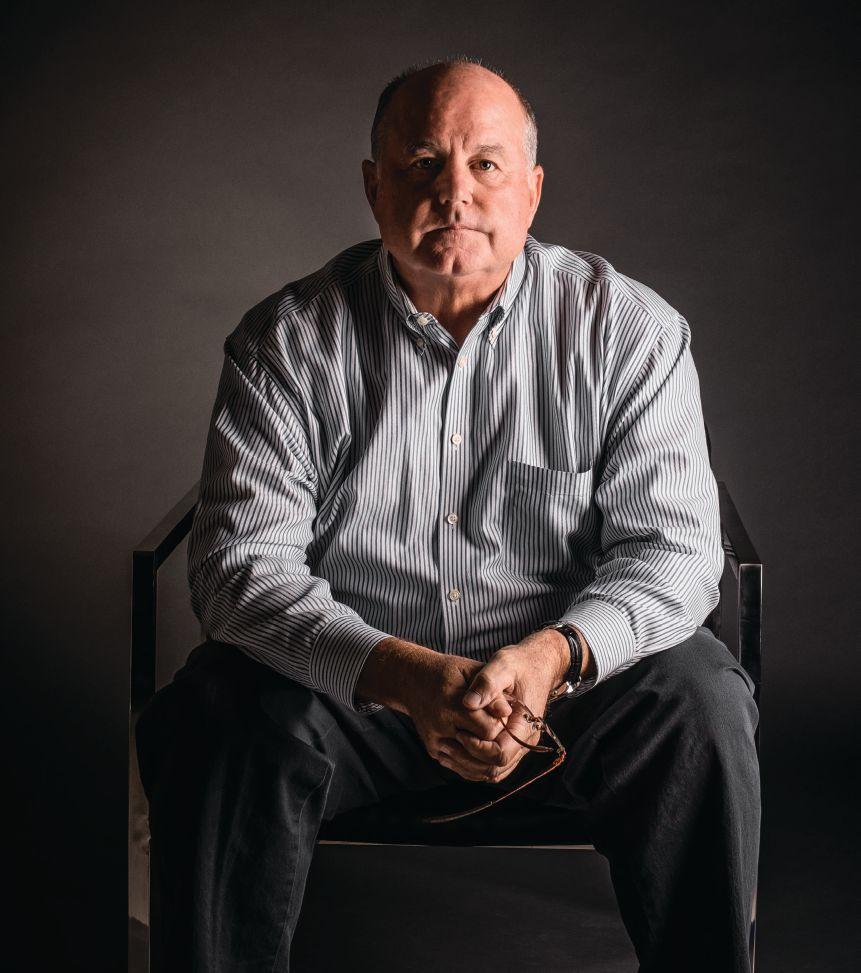
Seven years after Stuart Balcom bought out his partner, developed succession planning, and recruited five new principals, the firm continues to thrive. One thing: It’s outgrown its headquarters building near downtown.
BY SCOTT NISHIMURA / PHOTOGRAPHY BY OLAF GROWALD
Balcom Agency, the 39-year-old ad and marketing firm in Fort Worth, knows a thing or two about strong workplaces. The agency has won a slew of awards for best place to work. The Fort Worth Chamber of Commerce, in naming Balcom among the Best Workplaces for Women in 2016, noted more than half of management is women
and lauded the agency for CEO Stuart Balcom’s care for employees’ high ethical standards and focus on productivity over “clock-punching.”
The agency, in another award conferred by the chamber, was named a best workplace for employees aged 20-40, judged on criteria including benefits, community involvement, and recruitment and recogni-
tion of young professionals. “Everybody’s worked for somebody,” Balcom, 62, says. “Either really great bosses or really lousy bosses. You take all those great learnings and put them to work.”
Turning point: Balcom bought out his partner seven years ago and brought in five principals who today own 23% of the firm (Steve Cantrell, Carol Glover, Ashley Freer, Alan Parchman and Toni Stuard). In 2019, Balcom had 24 employees; today it has more than 60.
Culture: The agency’s core values are B nice, B responsible, B collaborative, B curious, B creative, B brave. Balcom describes the firm as “collaborative and transparent,” with strong doses of serious combined with fun.
Succession planning and nailing down a business valuation en route to recruiting new principals and creating a path to ownership for new ones in the future: “The idea was to create a sophisticated succession plan. When I’m gone, I think the brand will continue.”
Nonprofits: The agency gives a significant amount of pro bono services annually to nonprofits such as Presbyterian Night Shelter, a Wish with Wings and others. “Every executive serves on two or three boards. Everybody is involved in something here. ”
Some of the perks: Flexible hours for family and other personal needs; Blue Zones-certified healthy workplace; monthly B day celebrations for birthdays and employment anniversaries; “mother’s room” in the office; office closed between Christmas and the New Year; employees get $2,000 a year for continuing education.
Who thrives at Balcom: “If you’re really a professional, you’re going to be very successful in this company. If you need a lot of direct telling of what to do next, you’re not going to make it here.”
Outgrowing the building CEO Balcom owns near downtown: “We can’t put any more people in here. I’m really not sure what we’re going to do.”
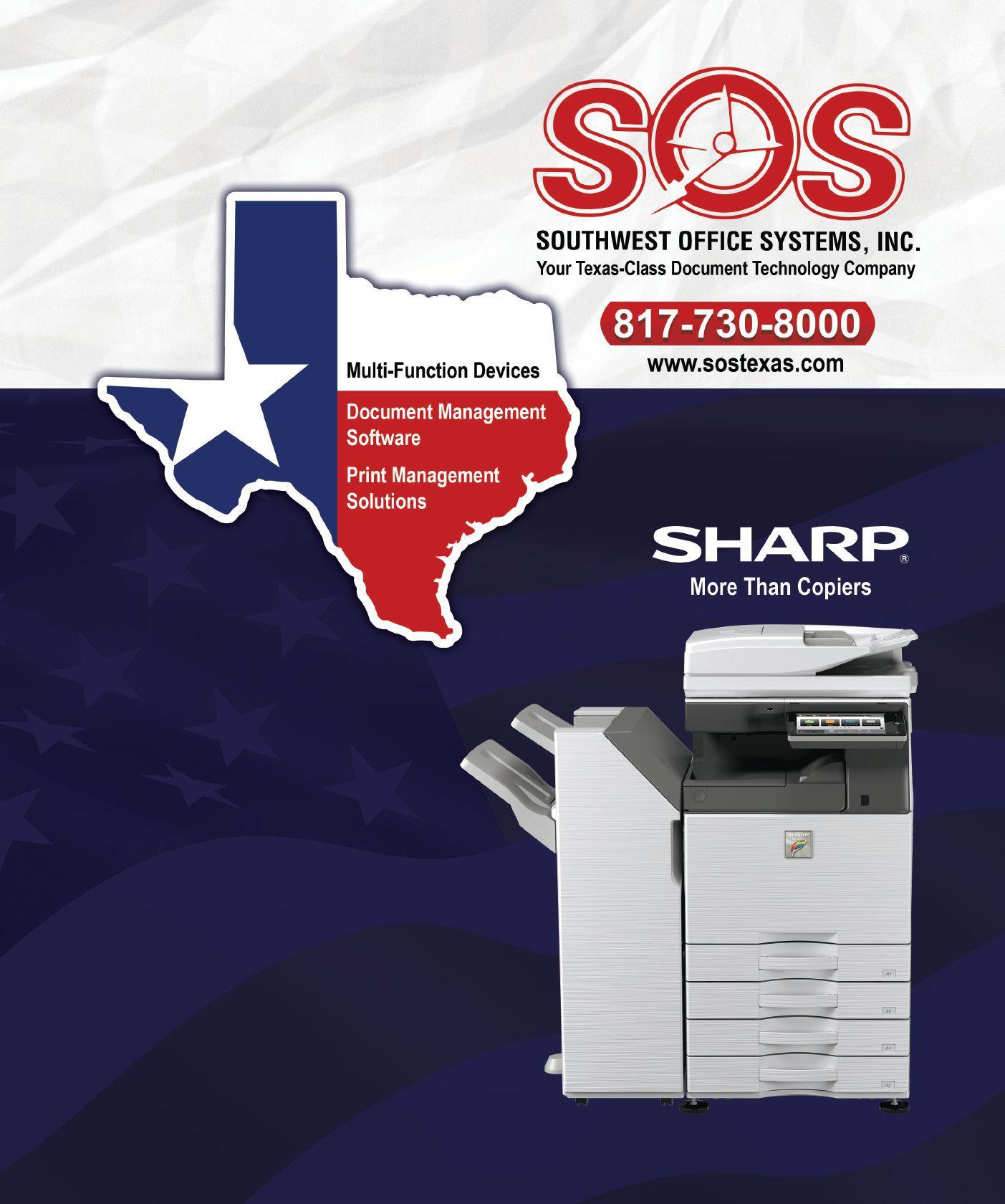
U.S. Chamber of CommerceMinority-Owned Business Achievement Award
FW Inc - Top 400 Most Influential People
FW Inc - Entrepreneur of Excellence Finalist
Dallas Business Journal
North Texas’ 13th Largest Hispanic-Owned Businesses
ENX Magazine - Elite Dealer
Just a few of our 2017 Awards & Recognitions
Fort Worth Chamber of Commerce2017 Small Business of the Year
North Dallas Chamber of CommerceNorth Dallas Business of the Year
Fort Worth Business Press - Minority Leader
Dallas Business Journal - Minority Leader
Euless Award Program - Best of Euless Award
Vistra Energy - Gold Star Legacy Award
SHARP - Platinum Level Service Provider
ENX Magazine - ENX Difference Makers




